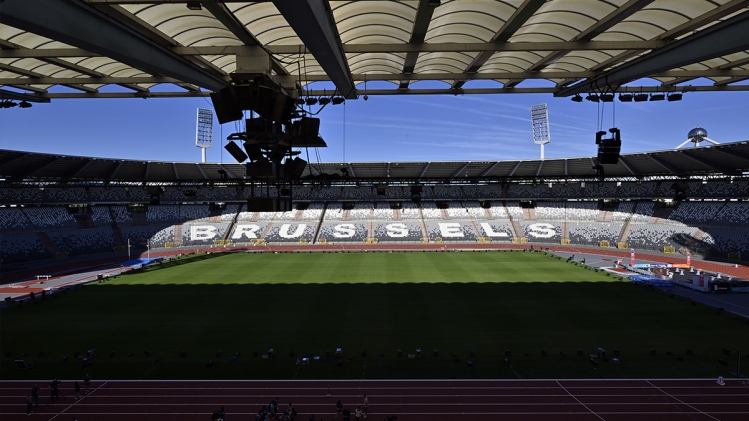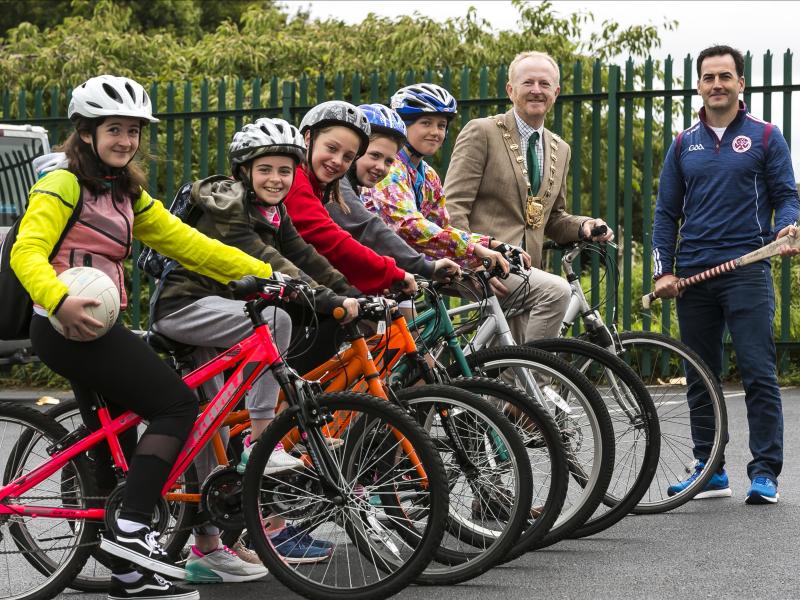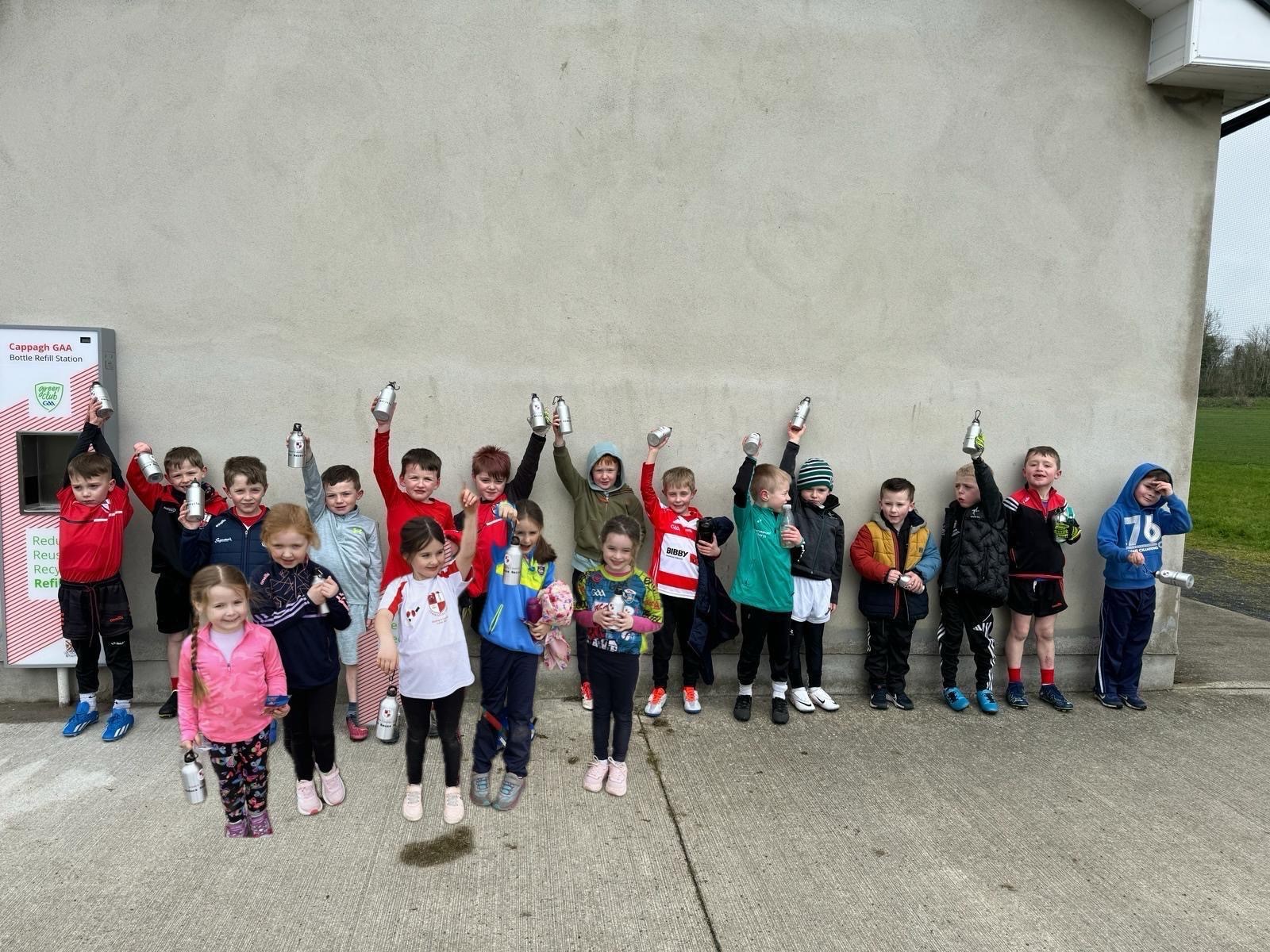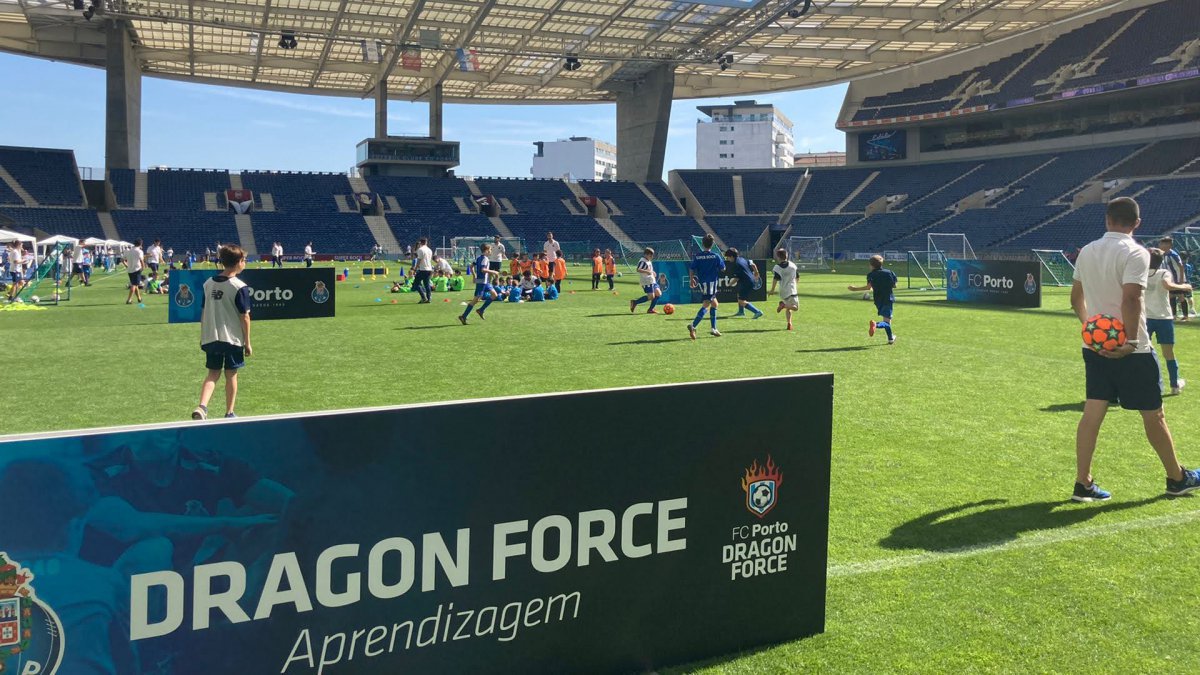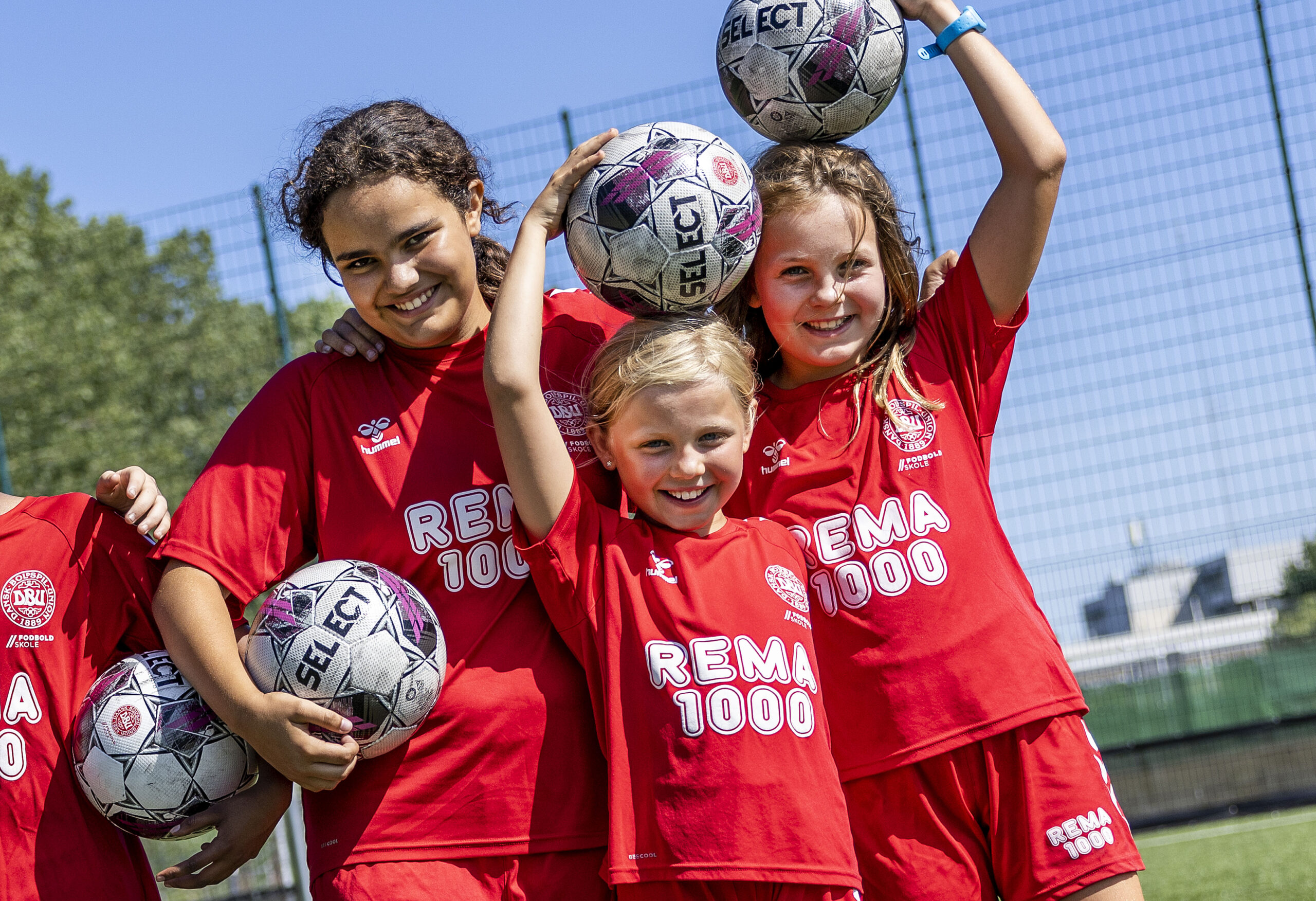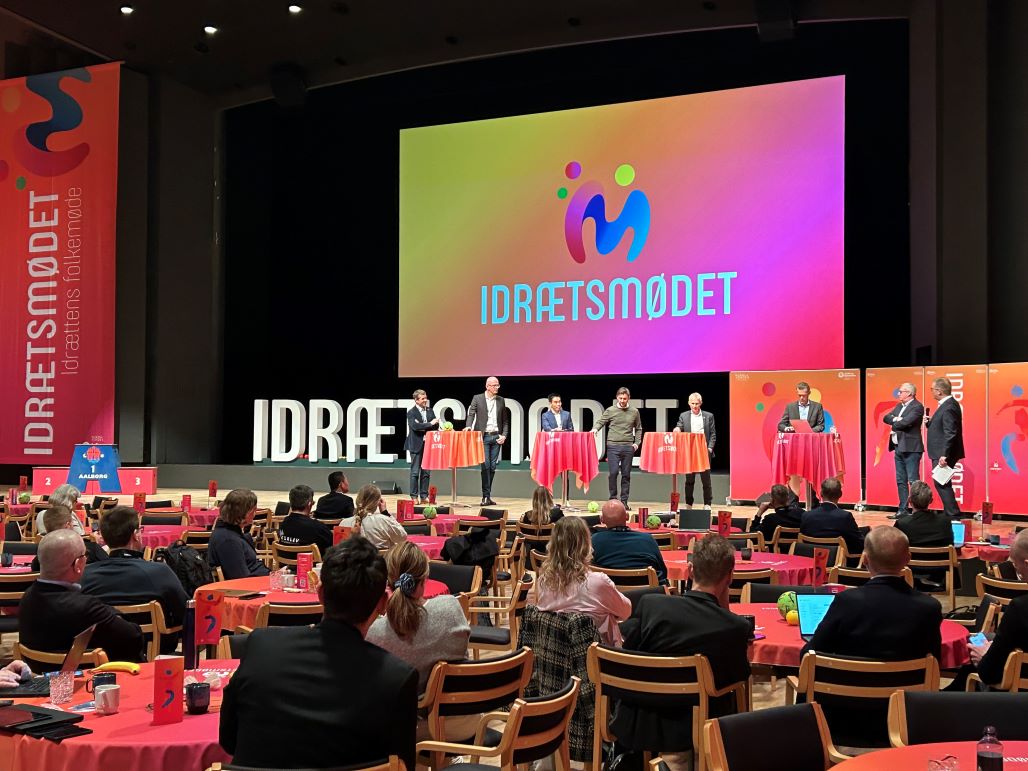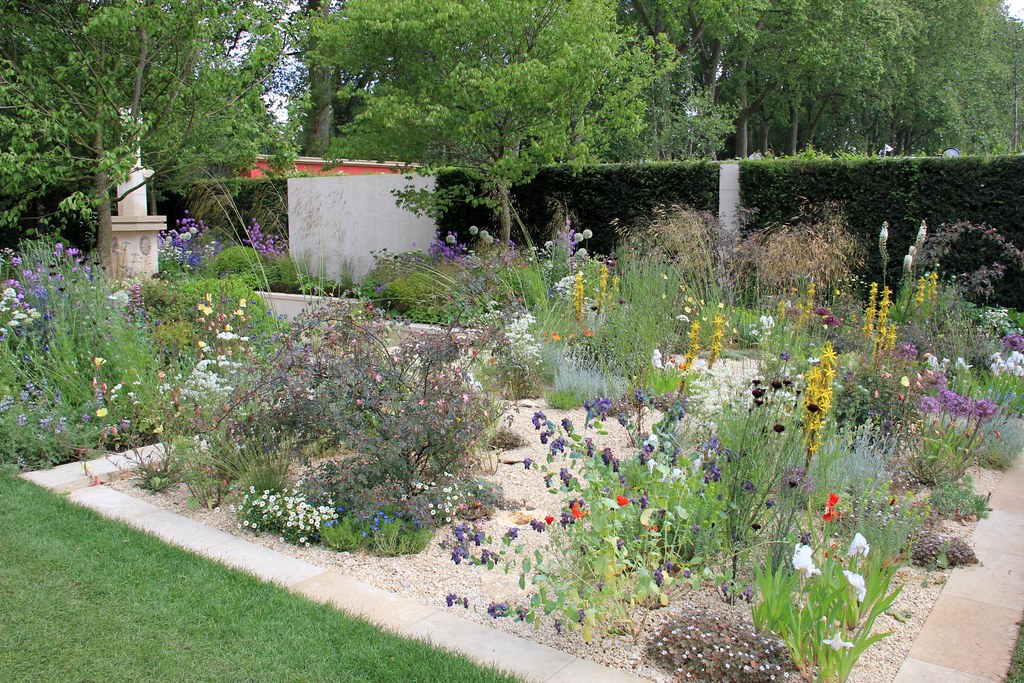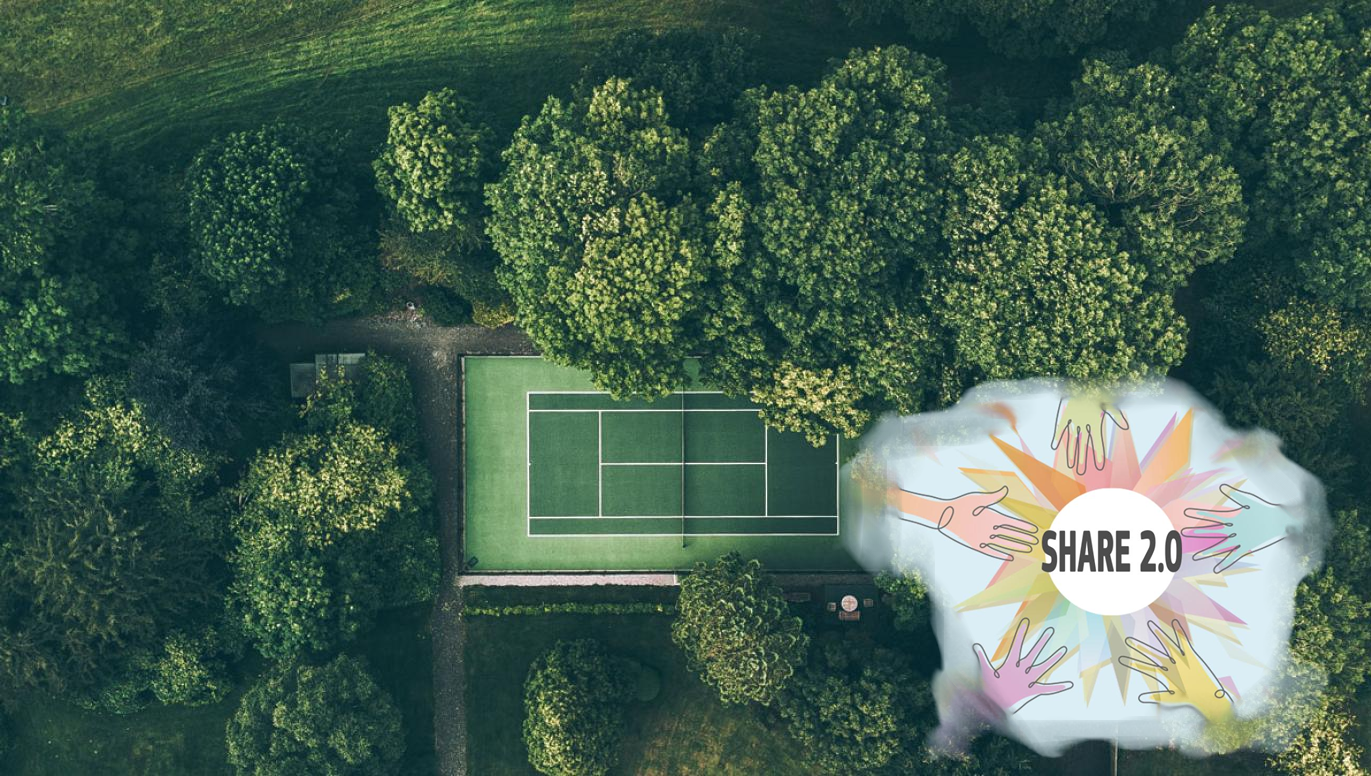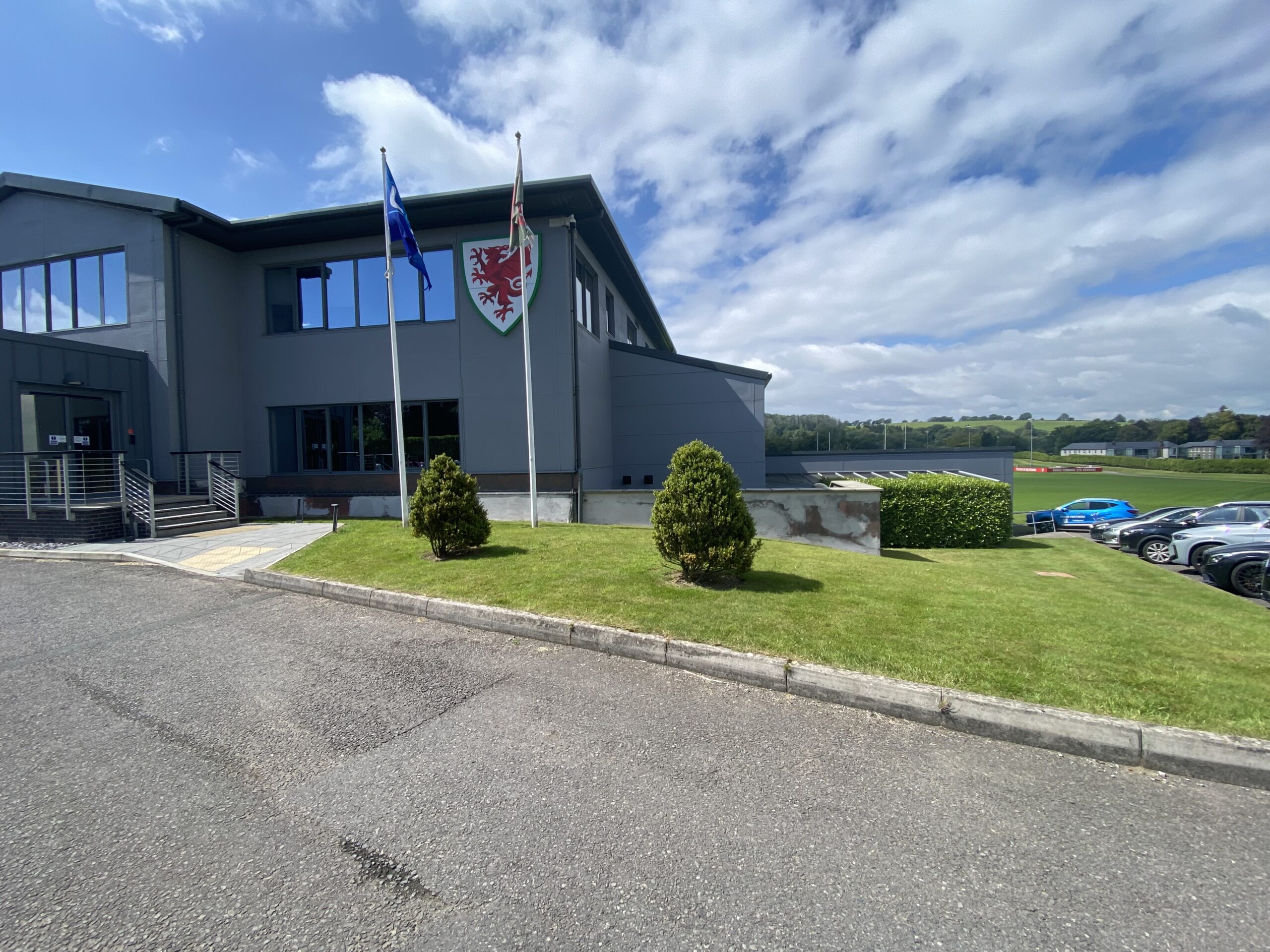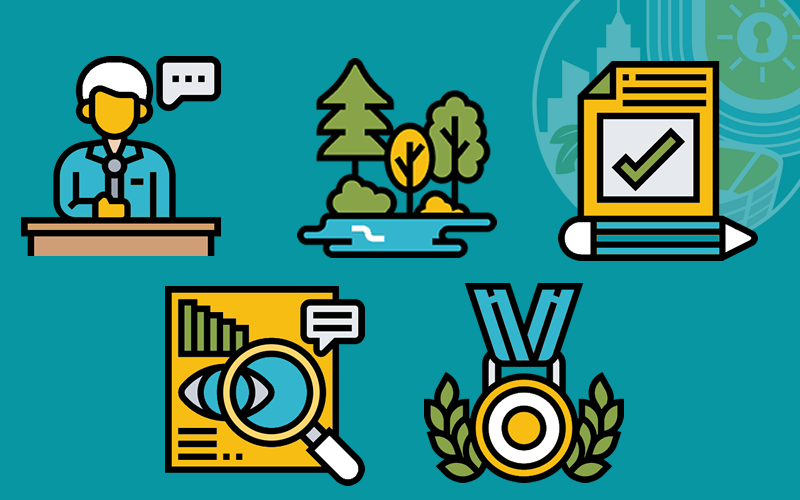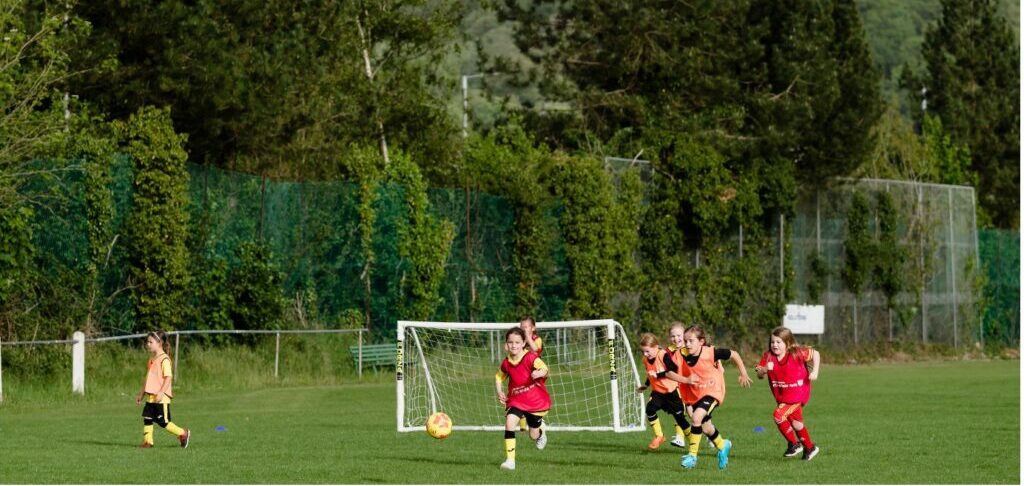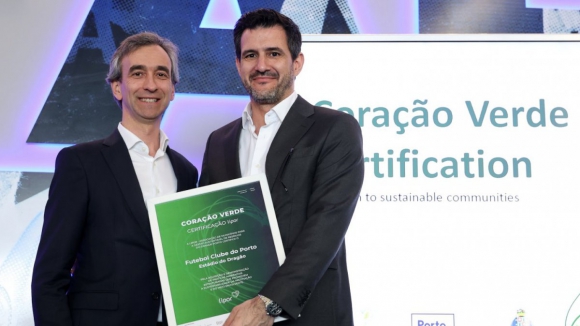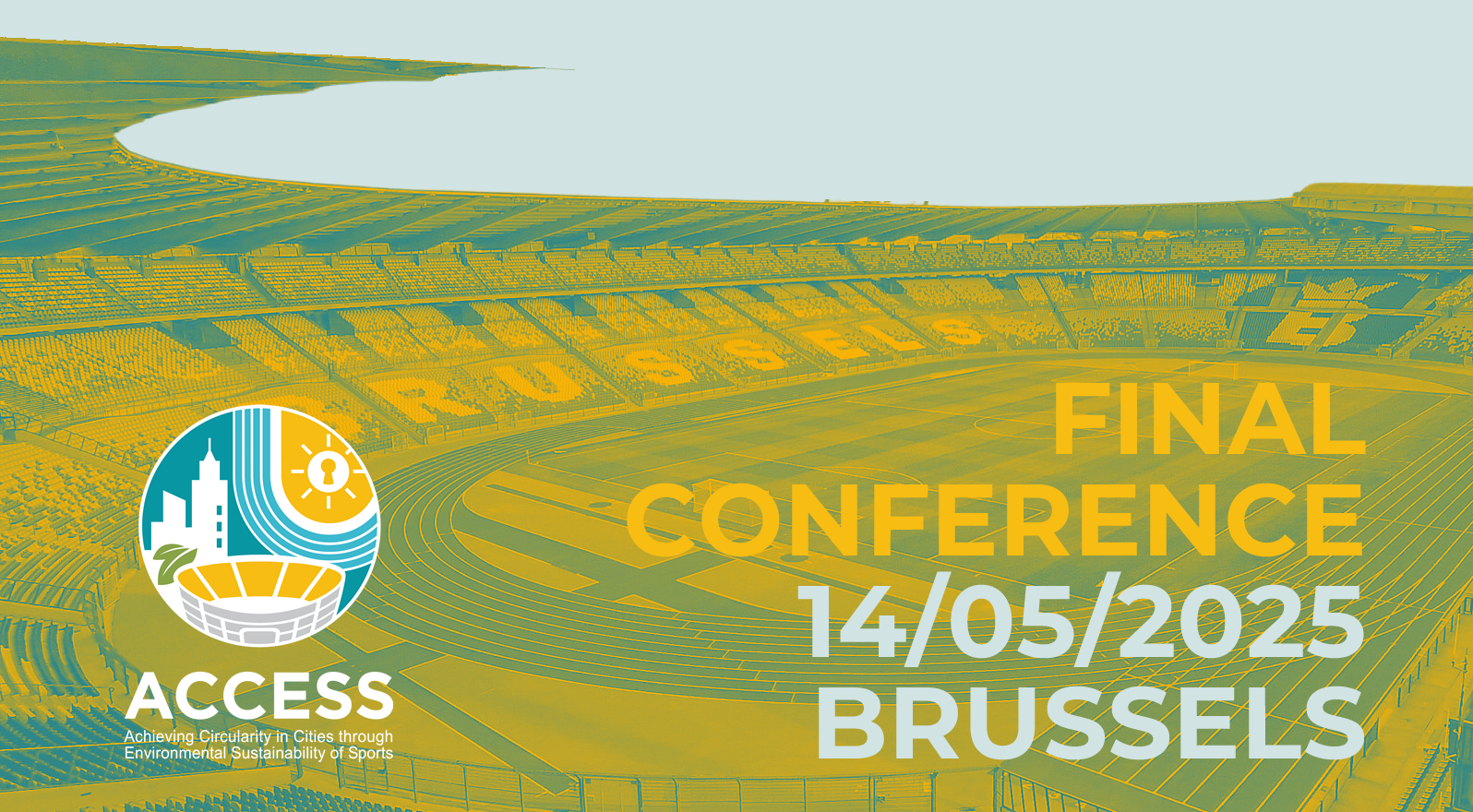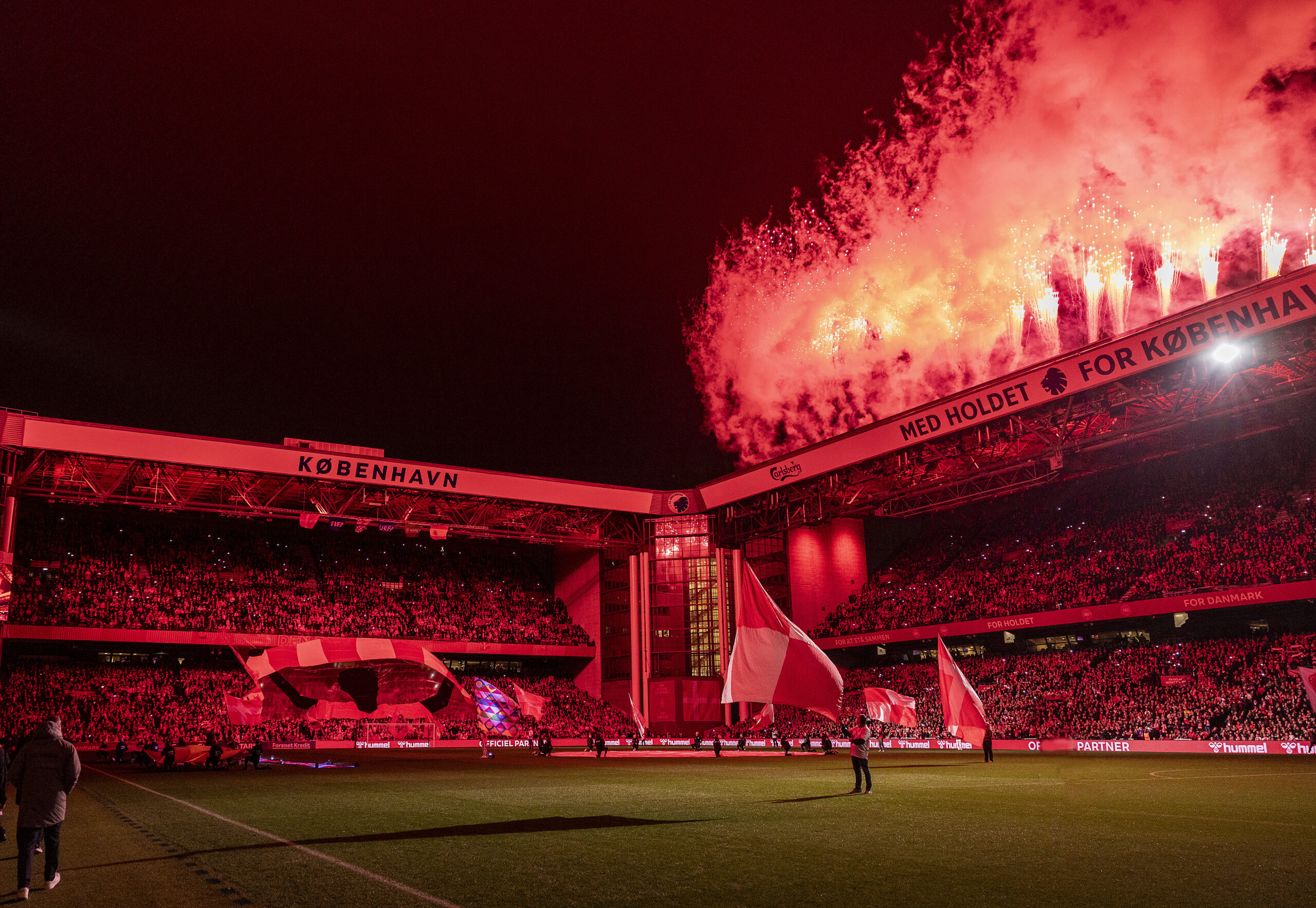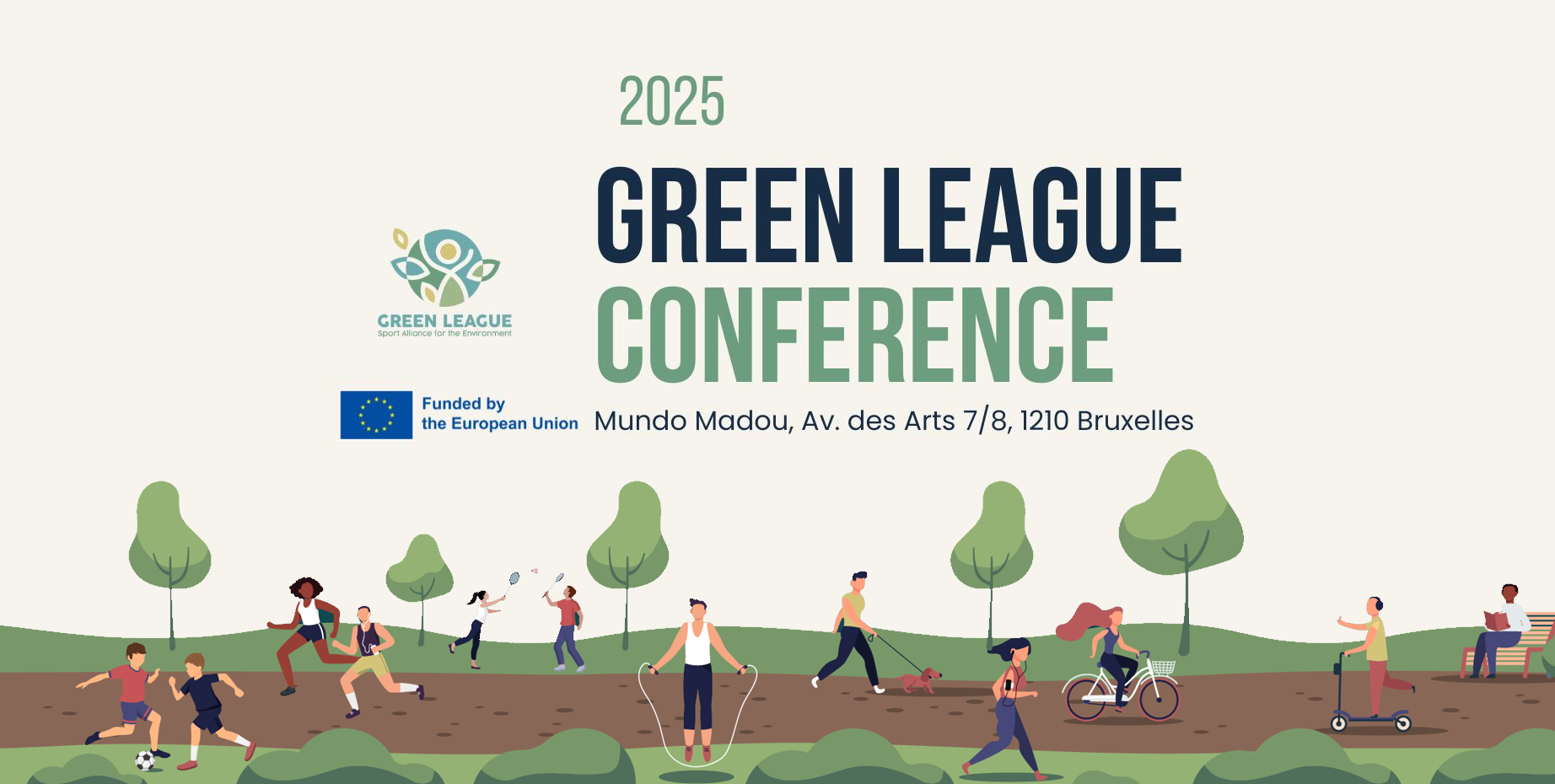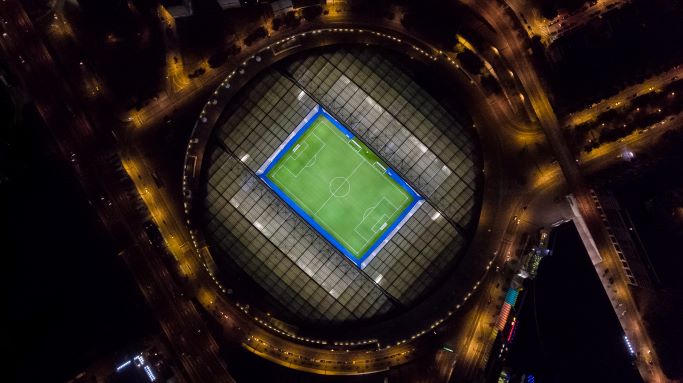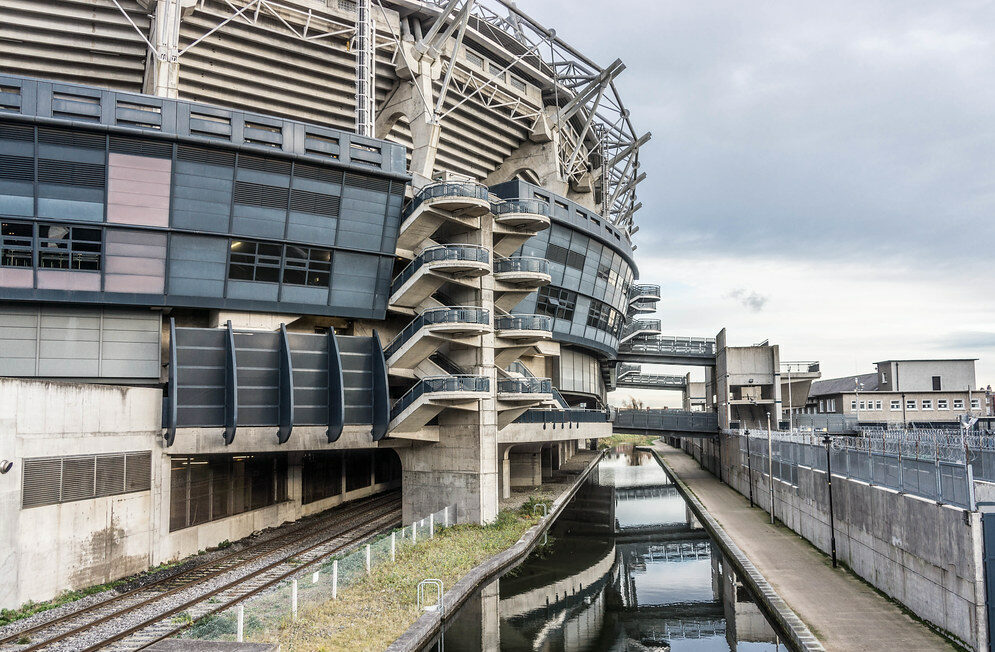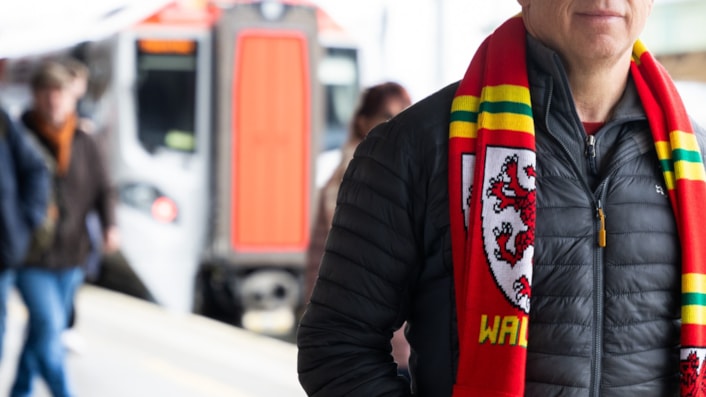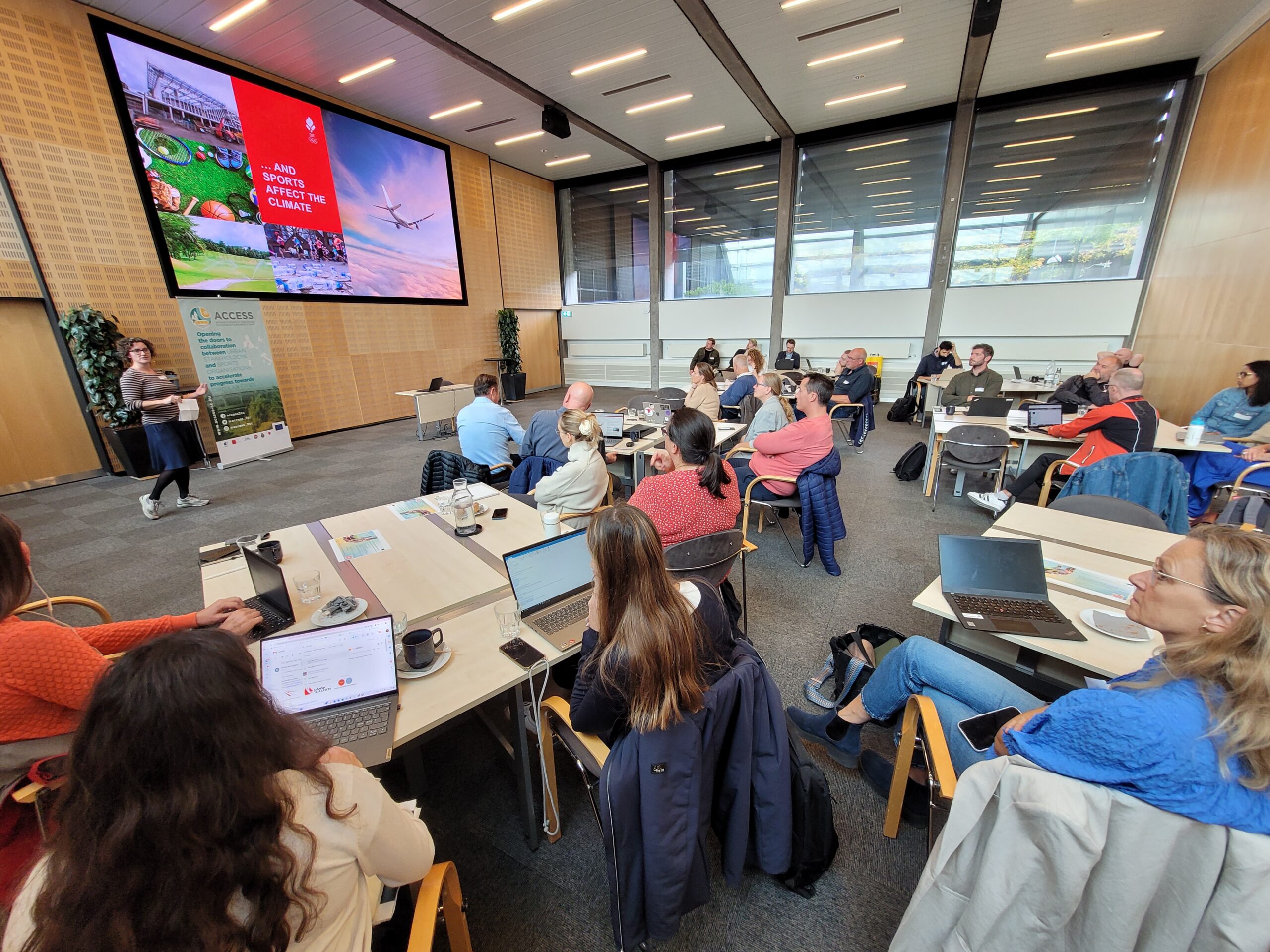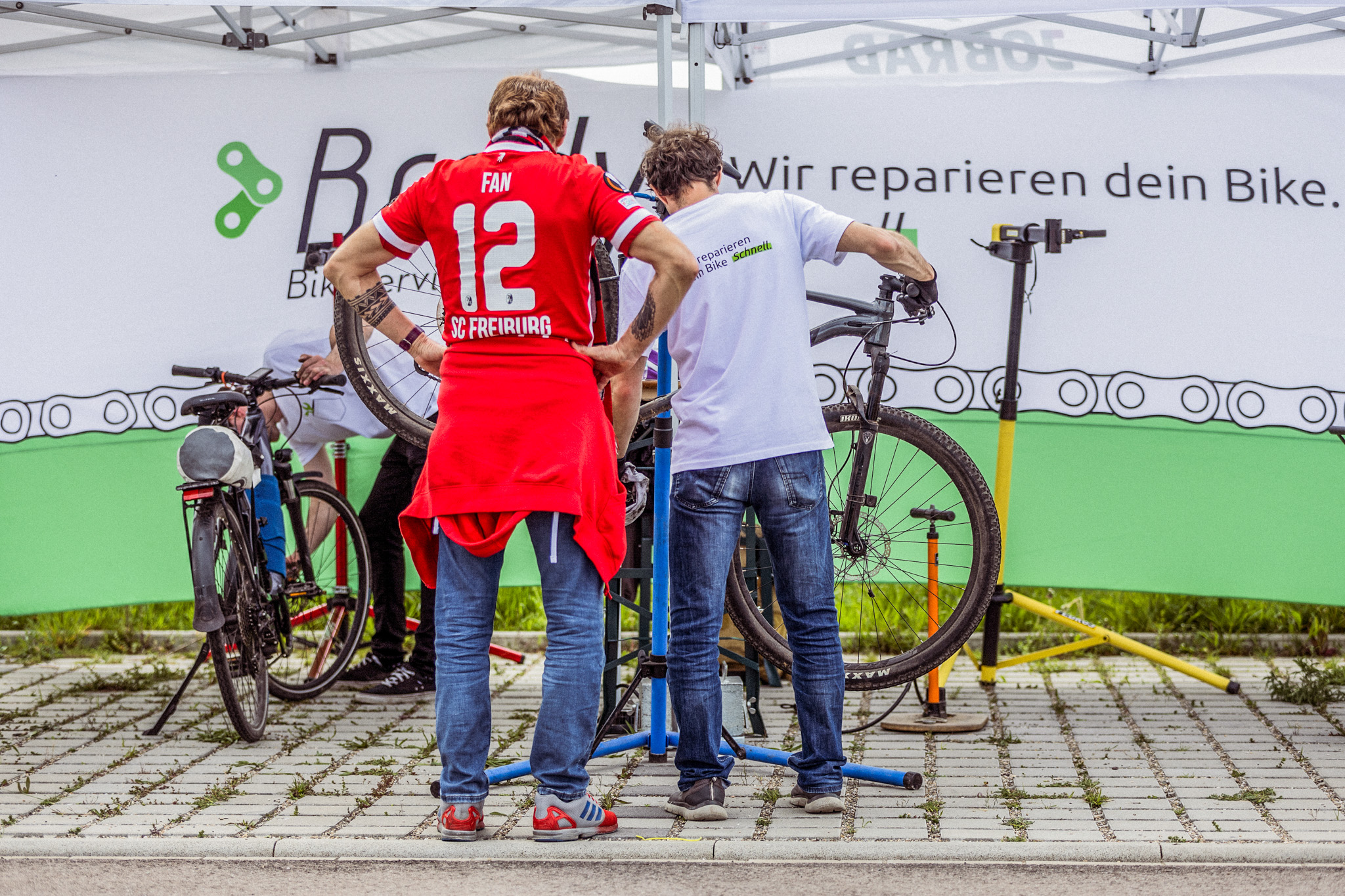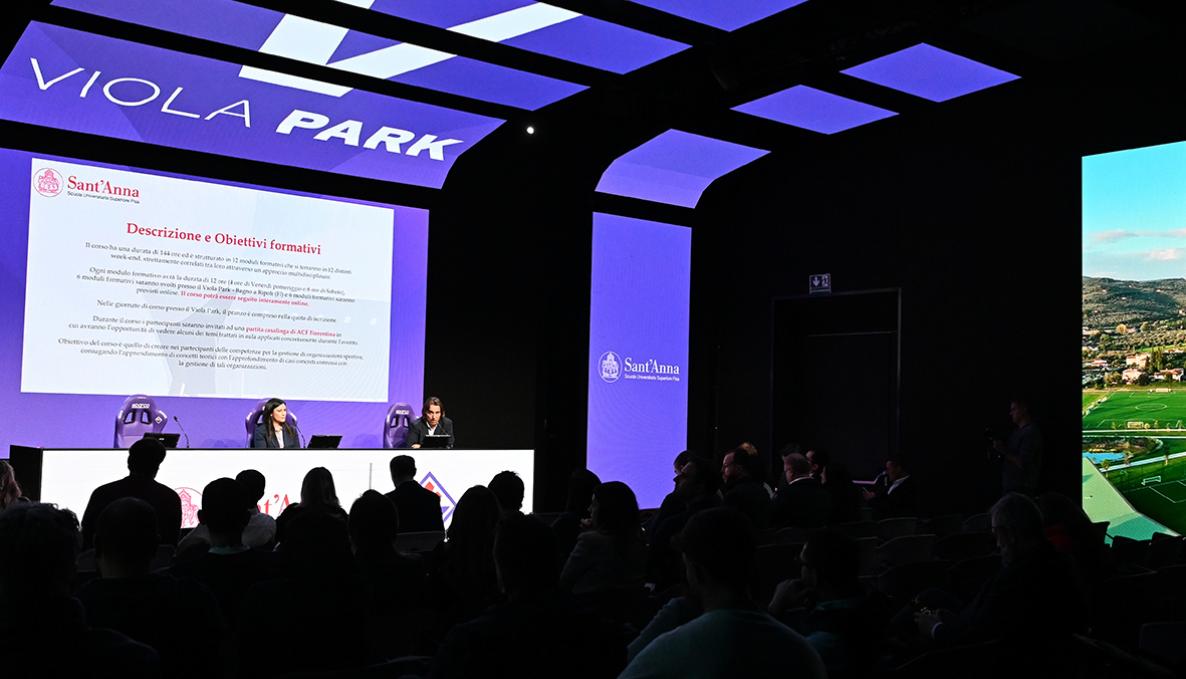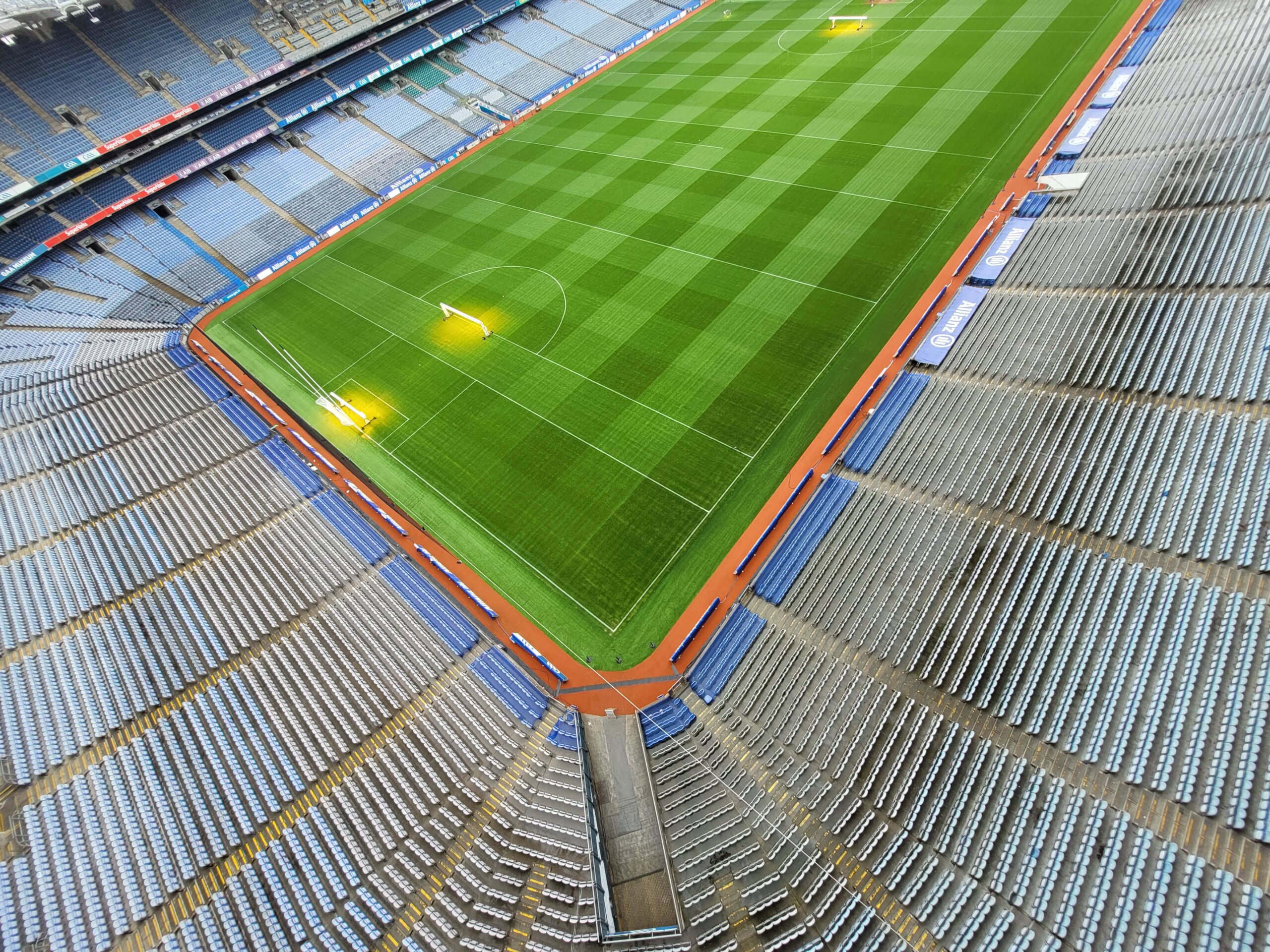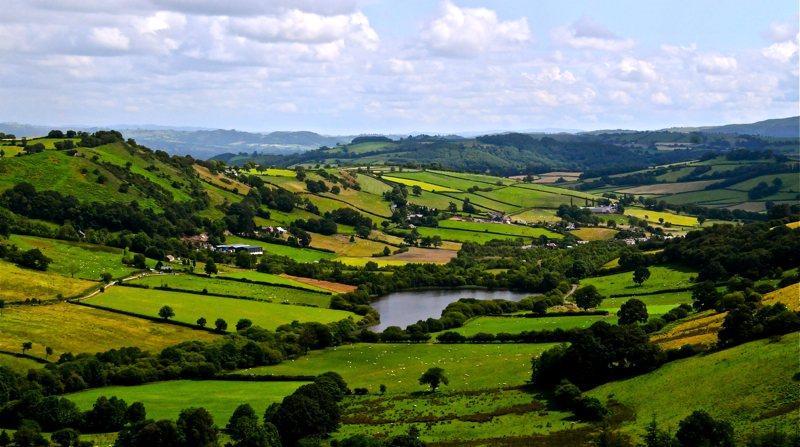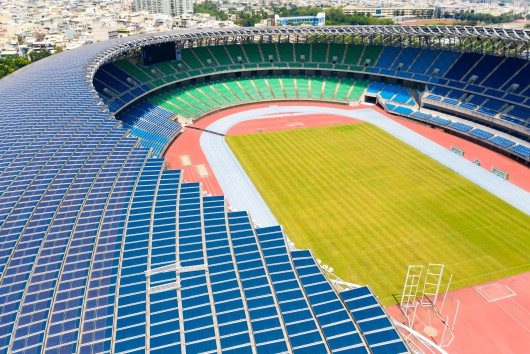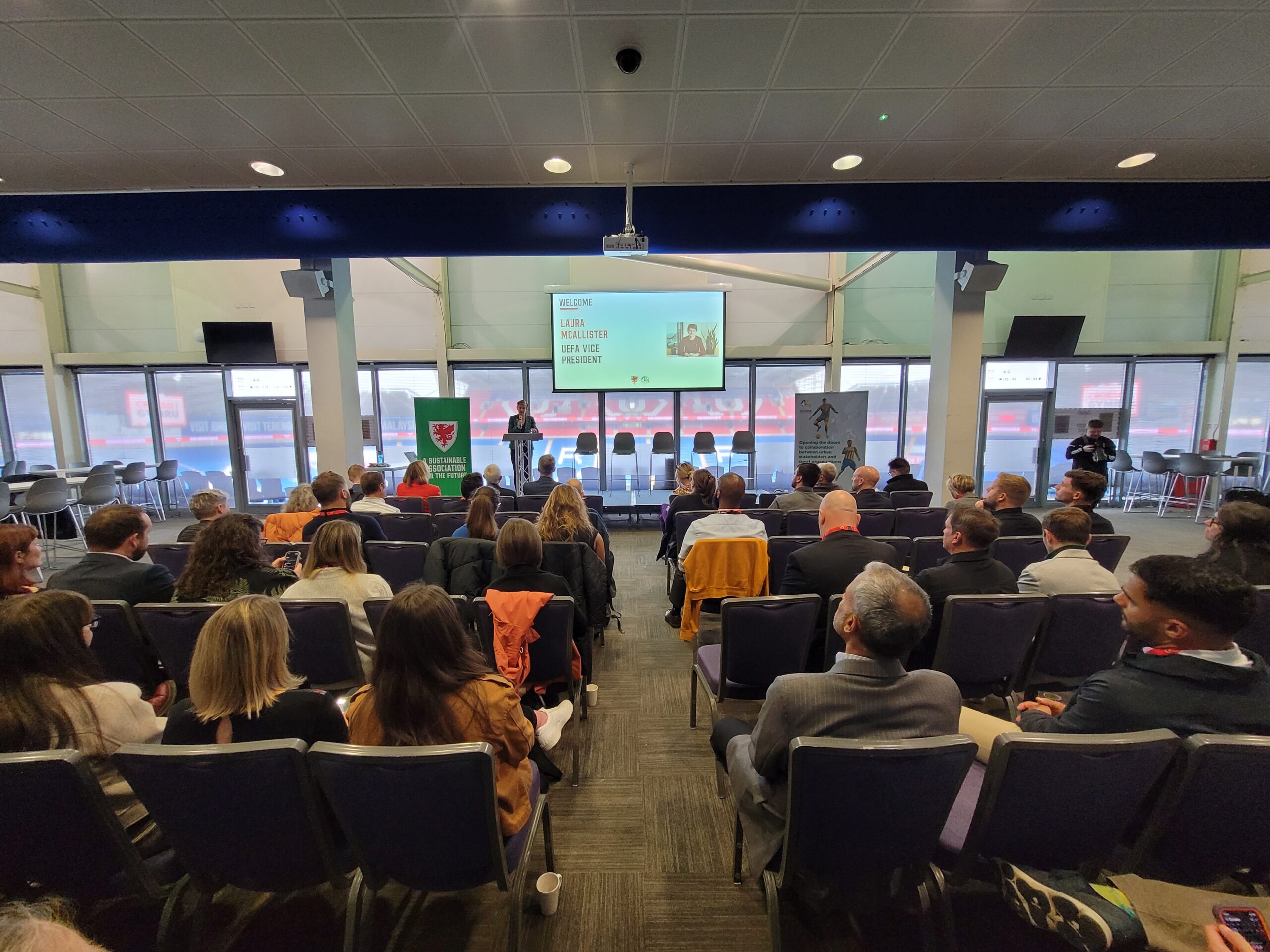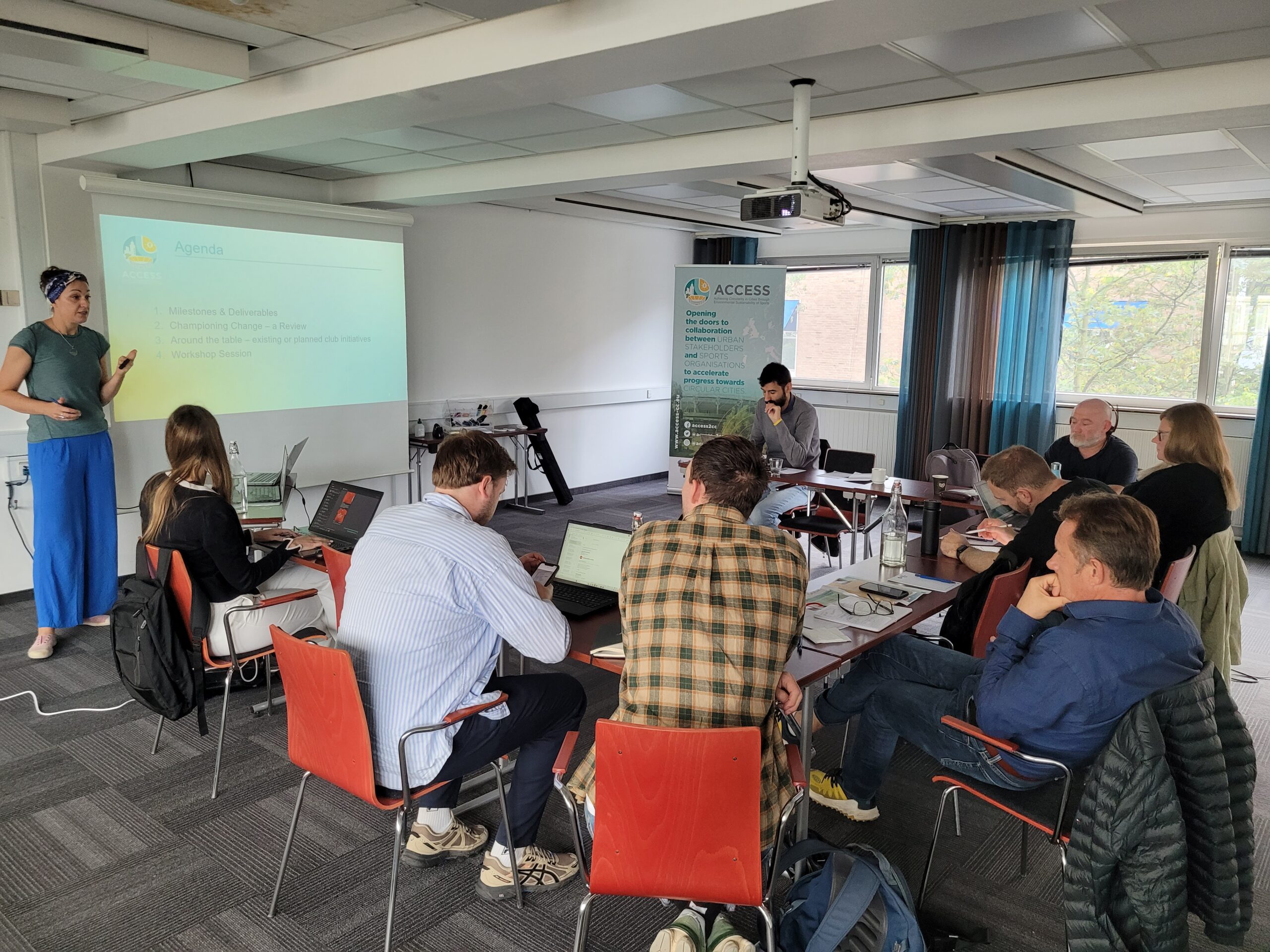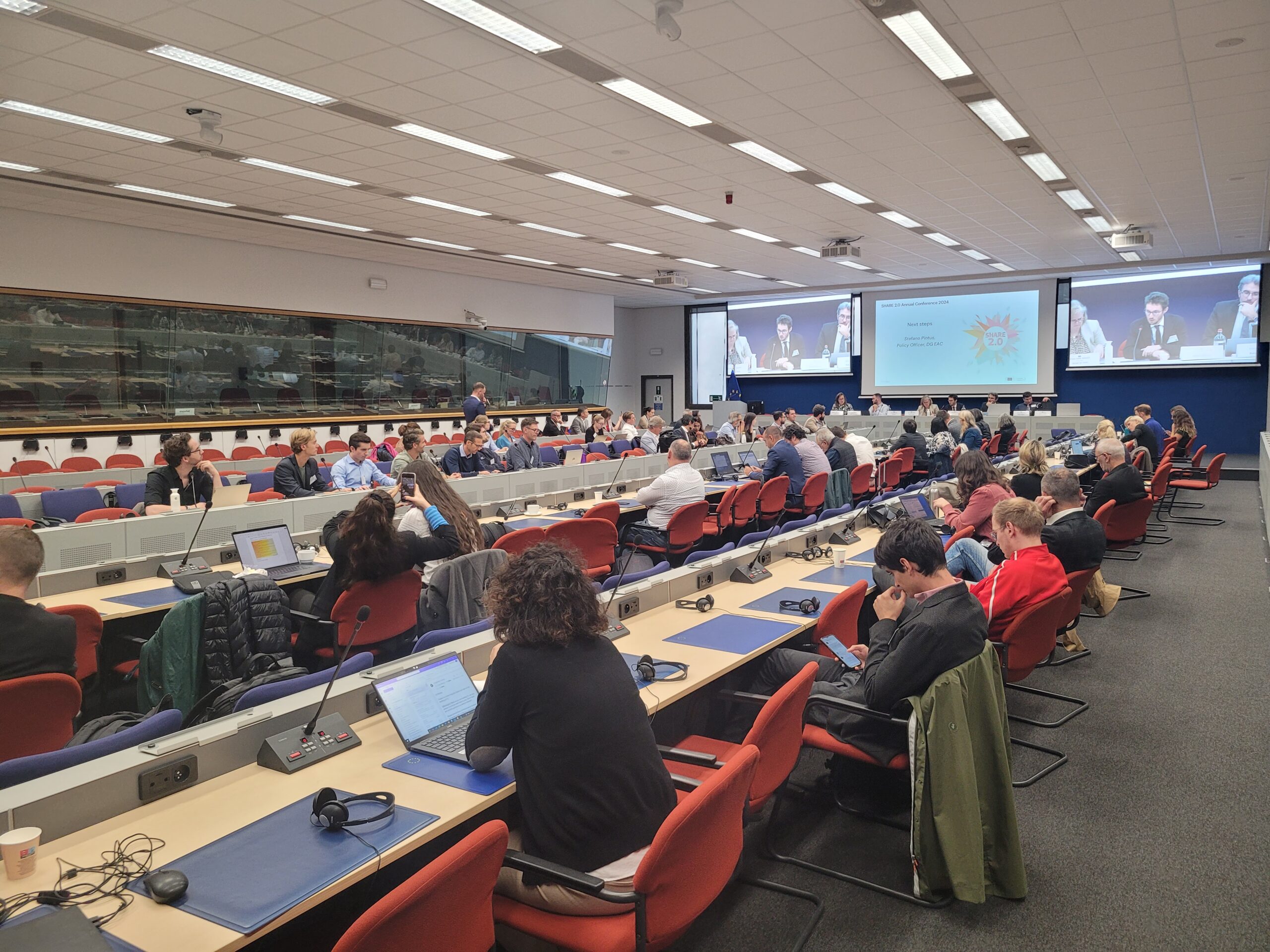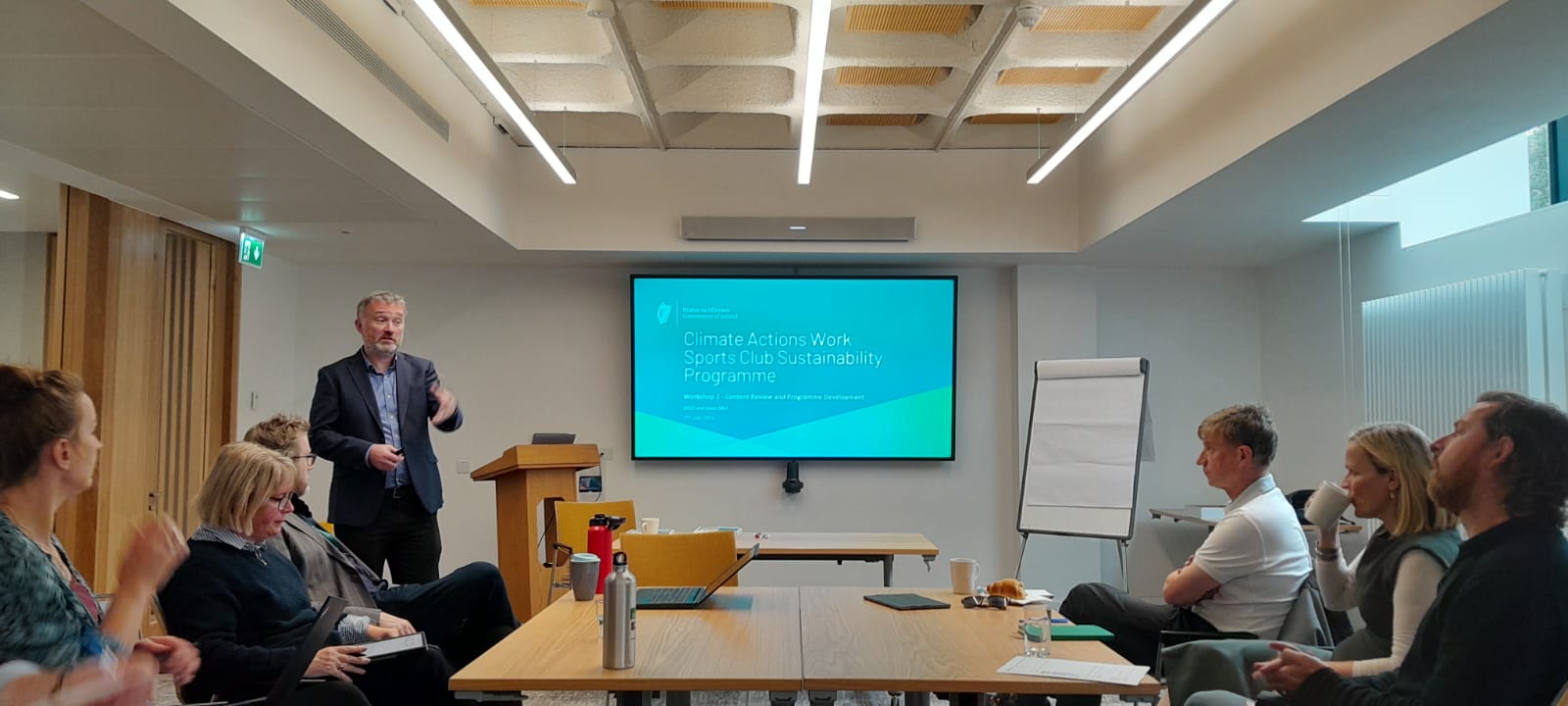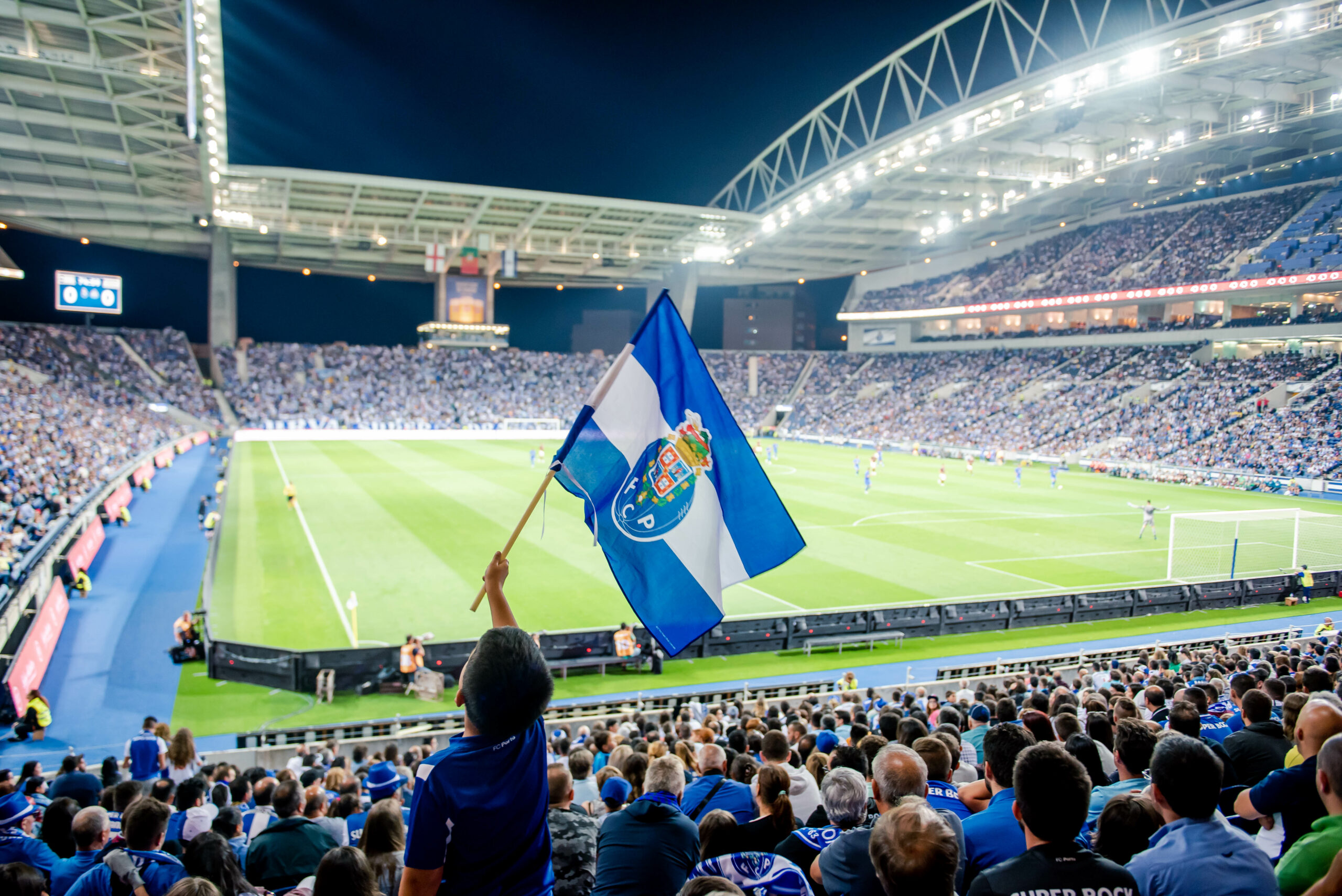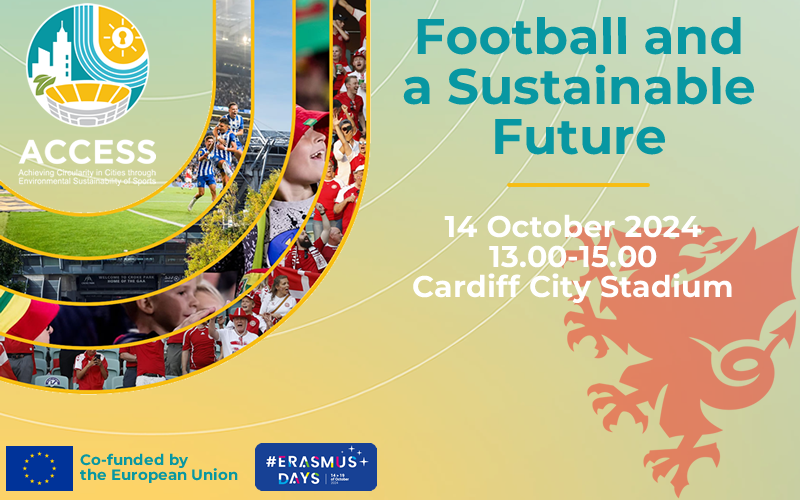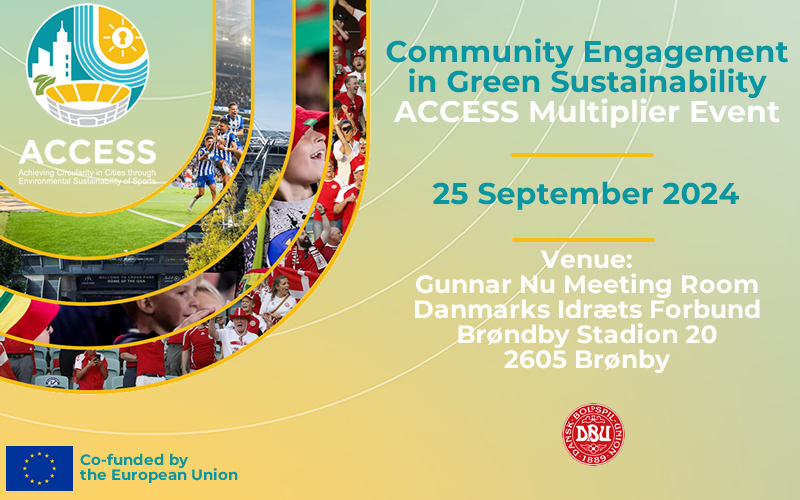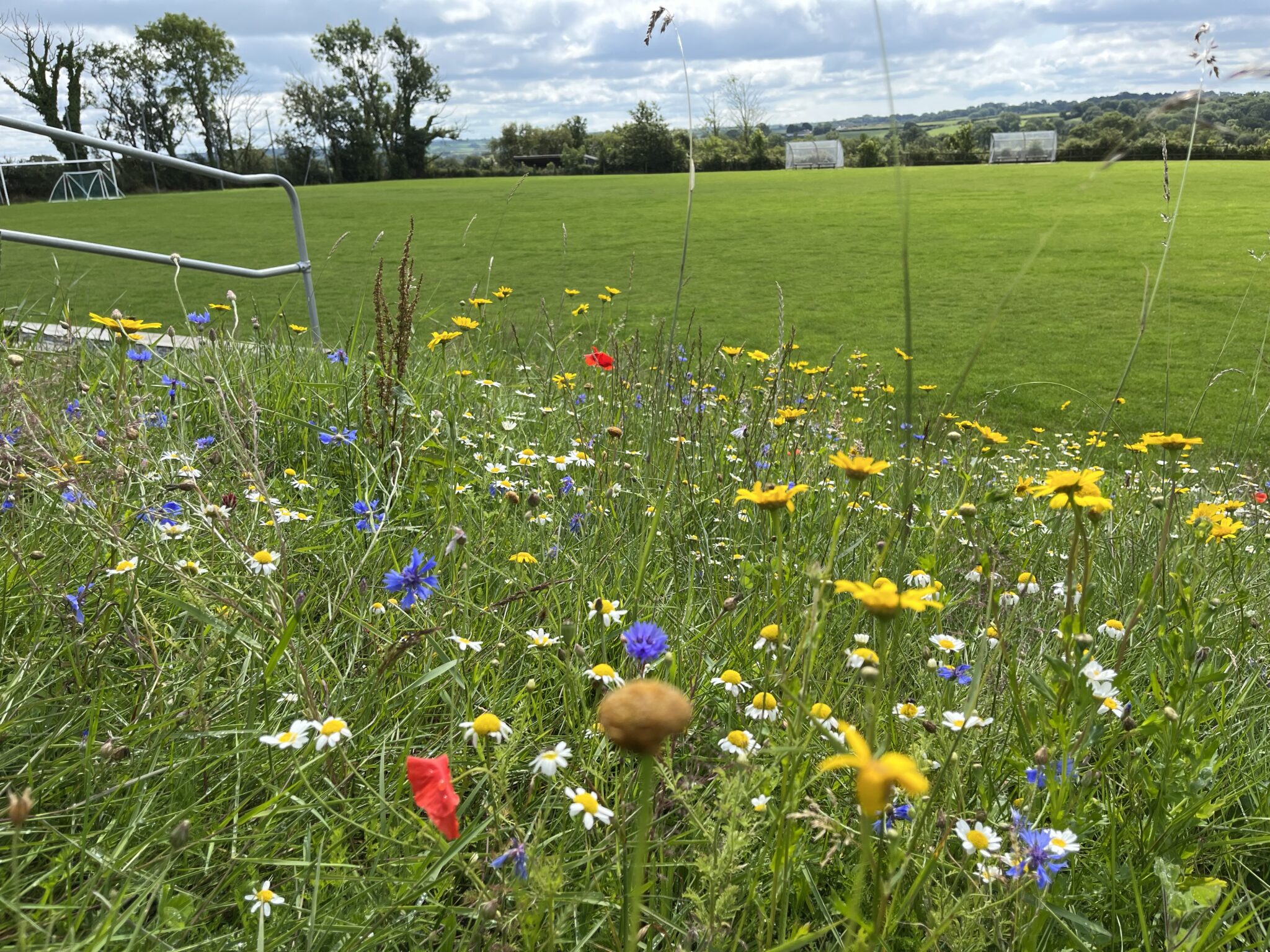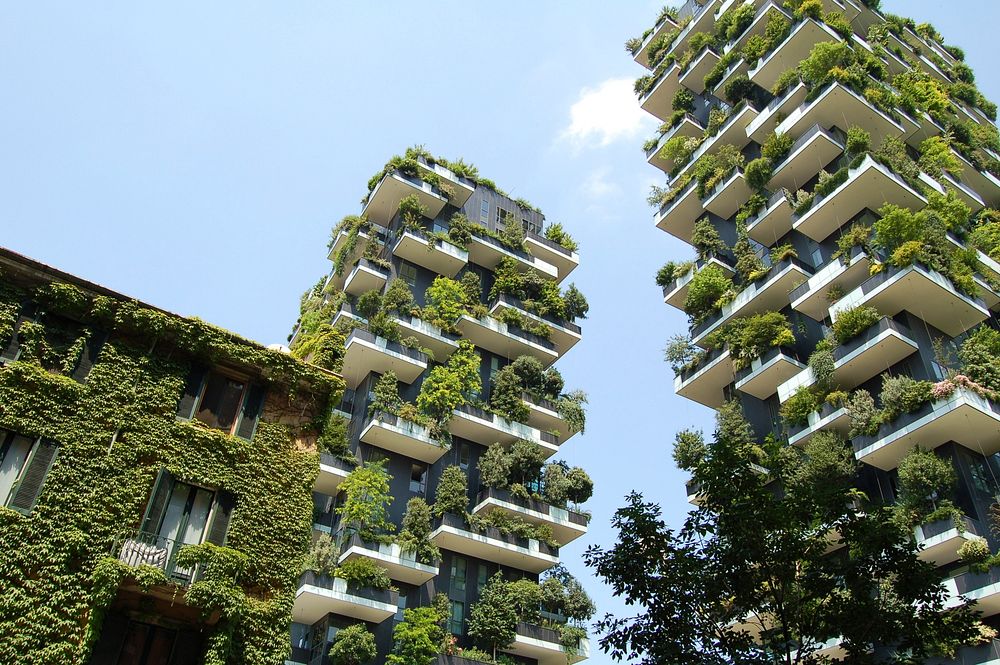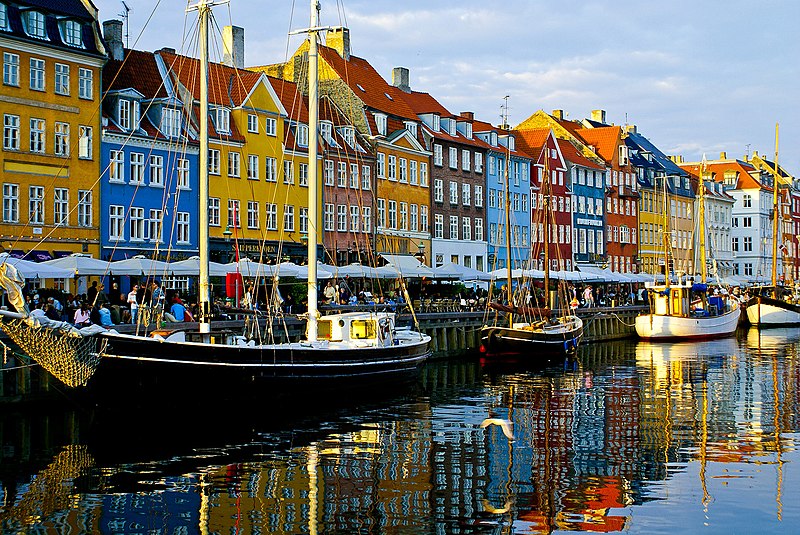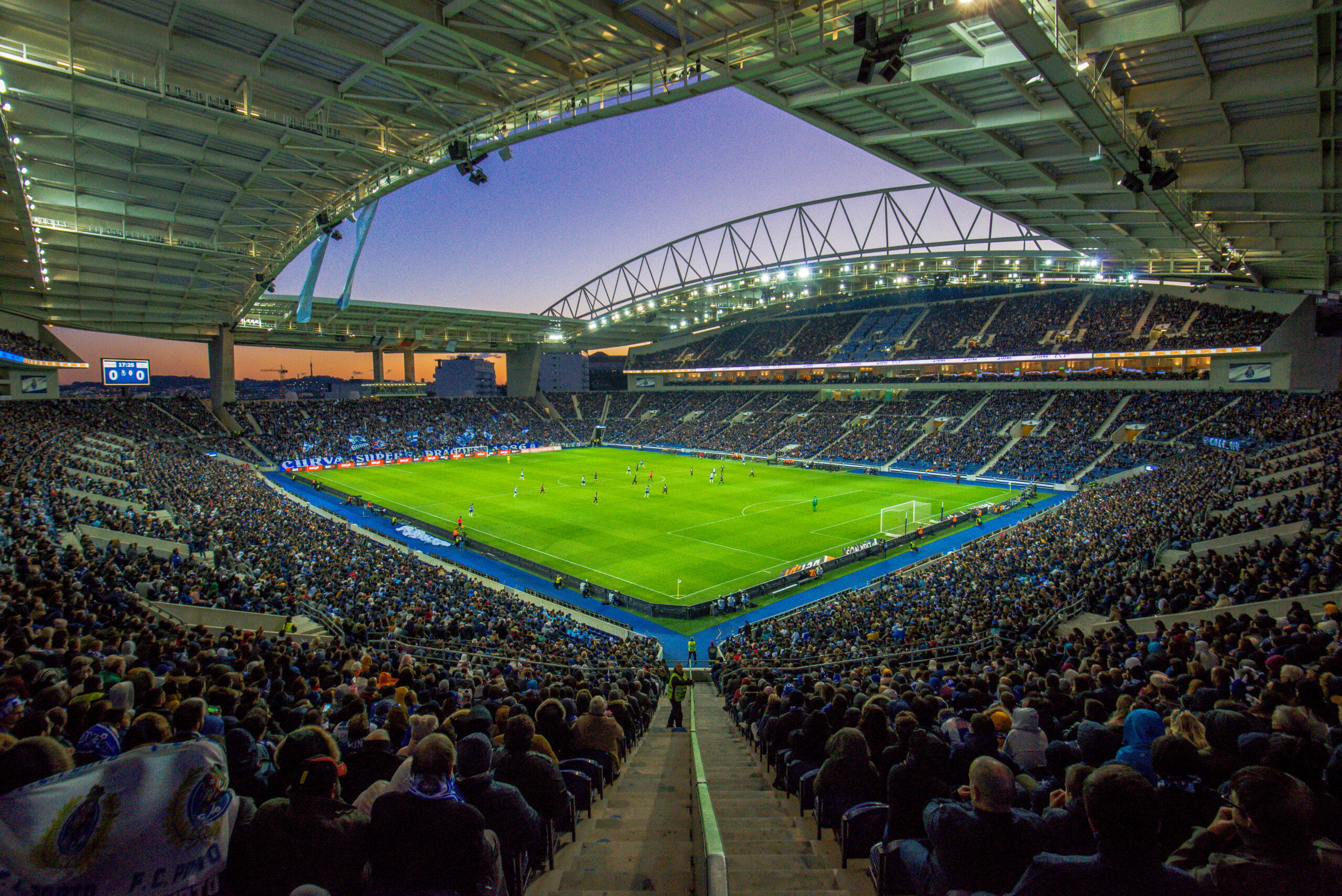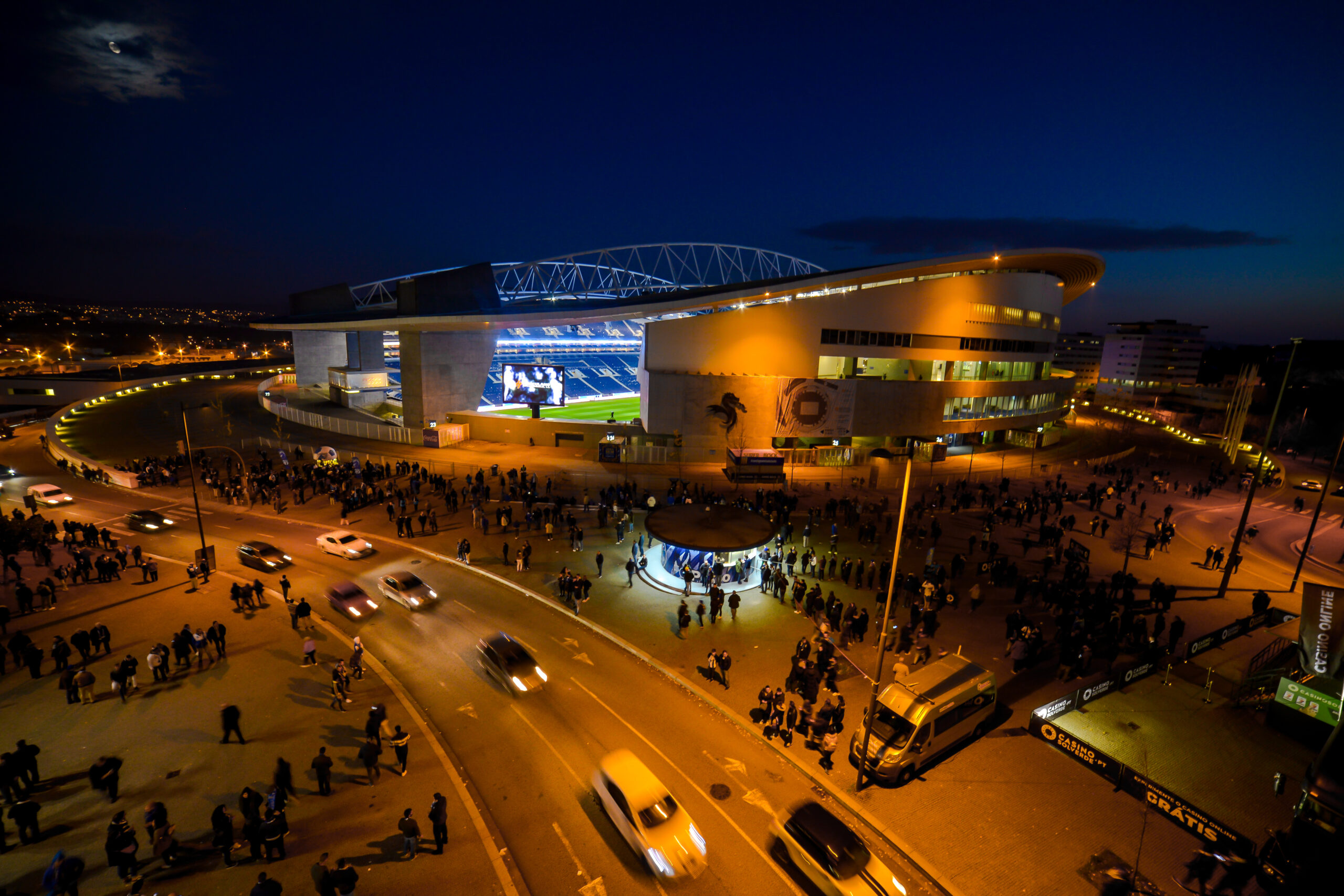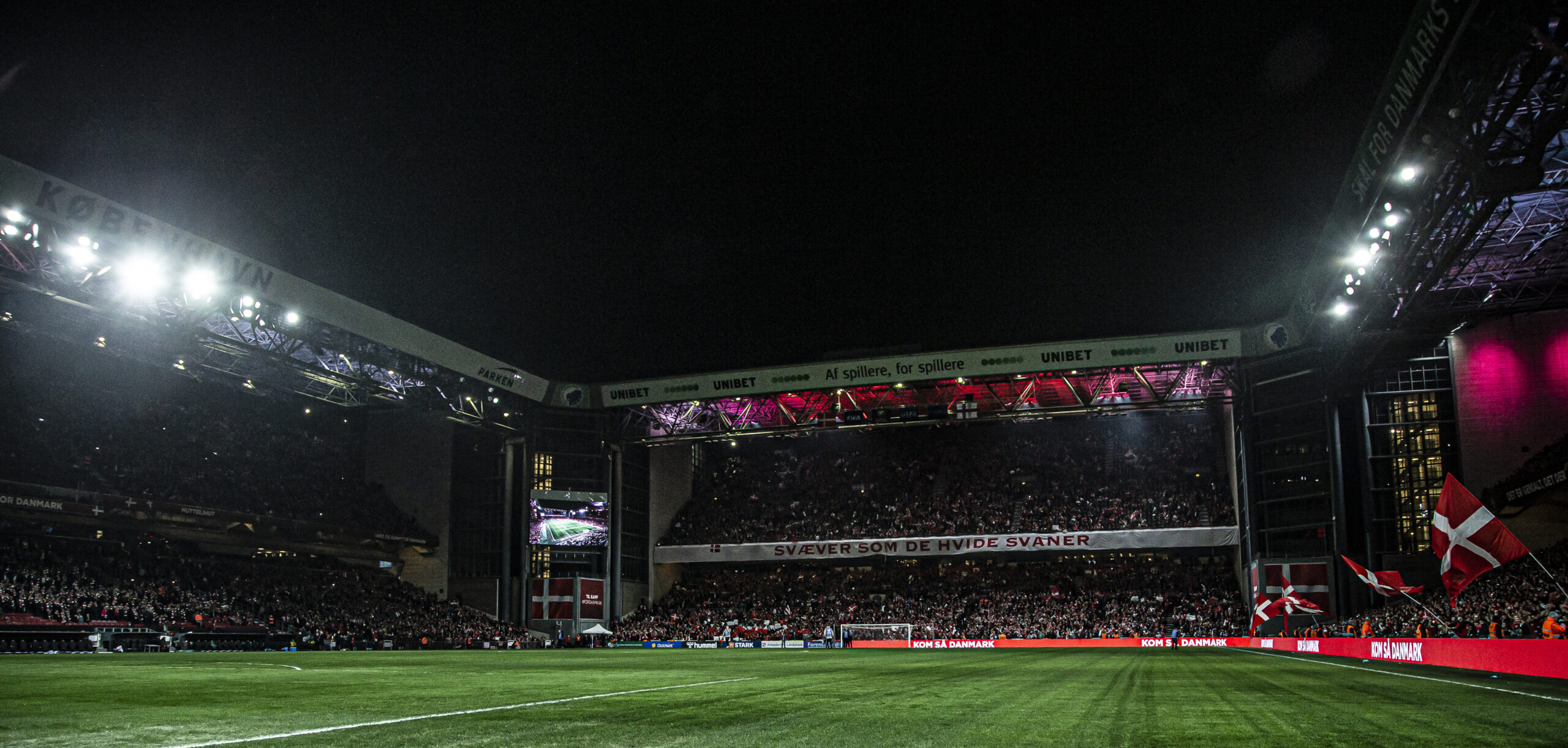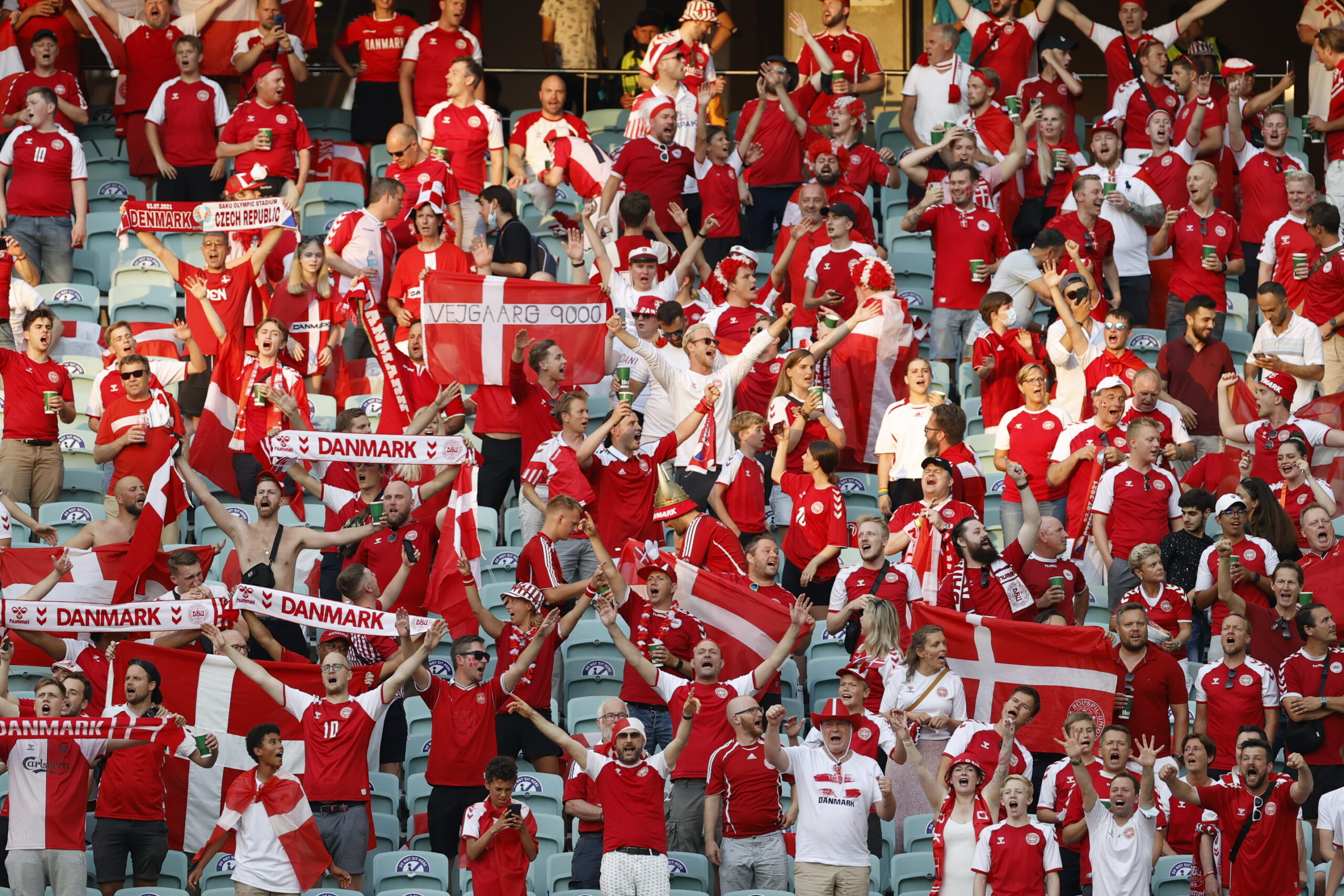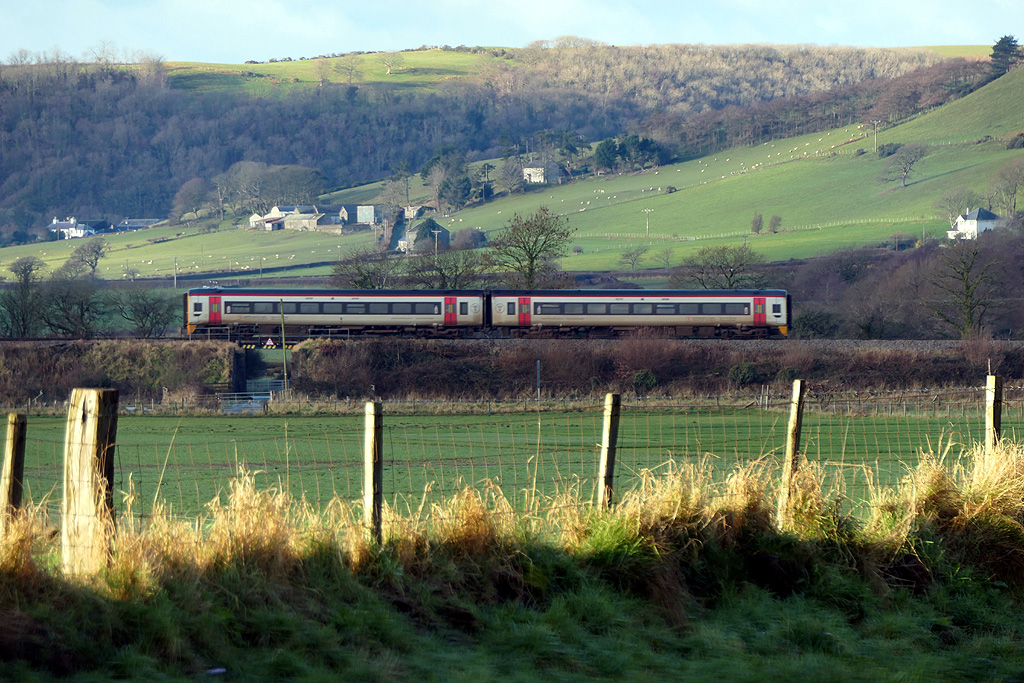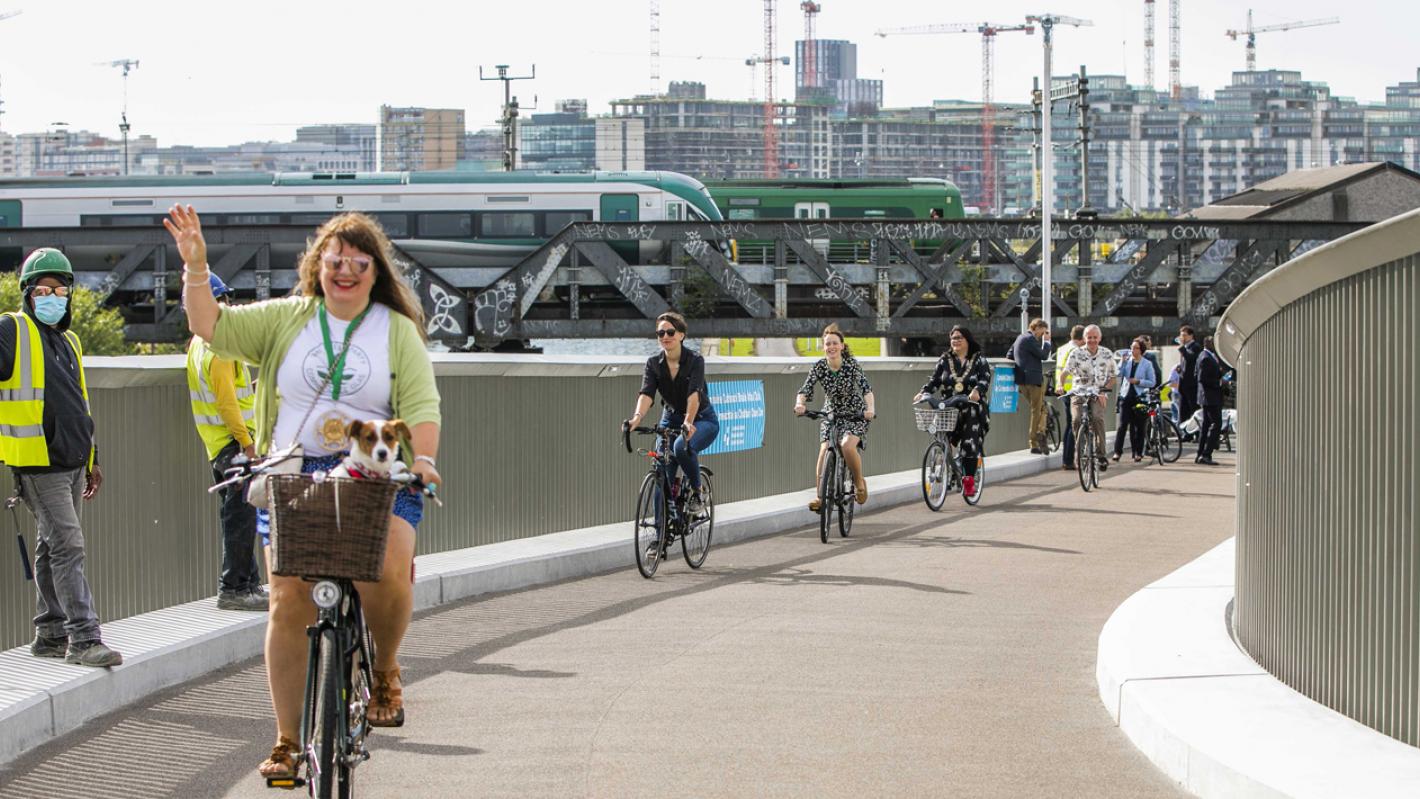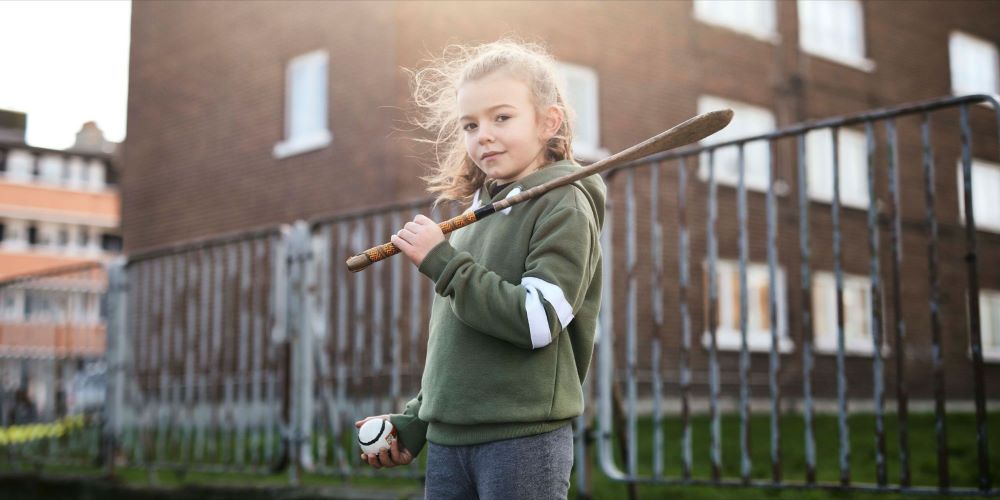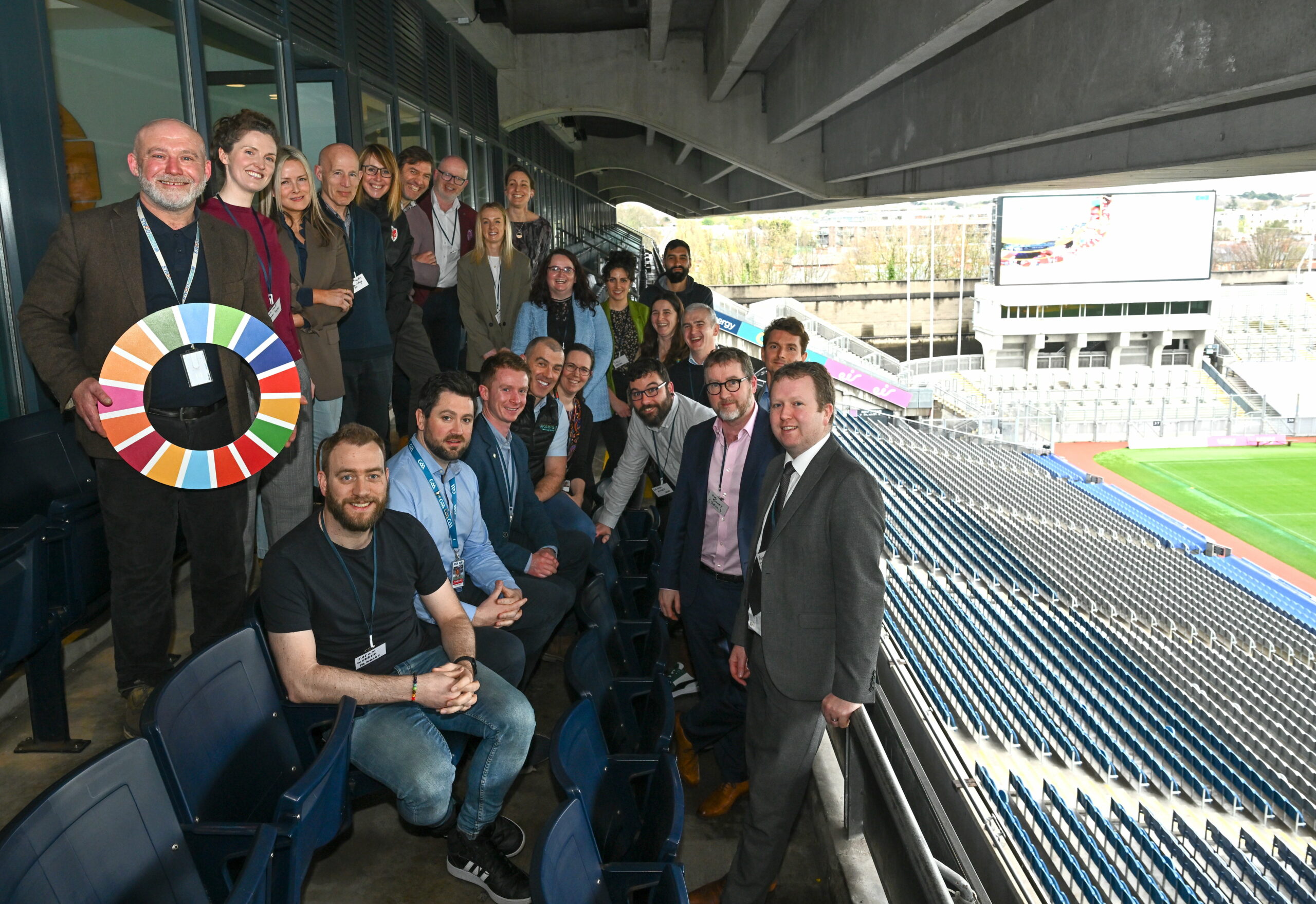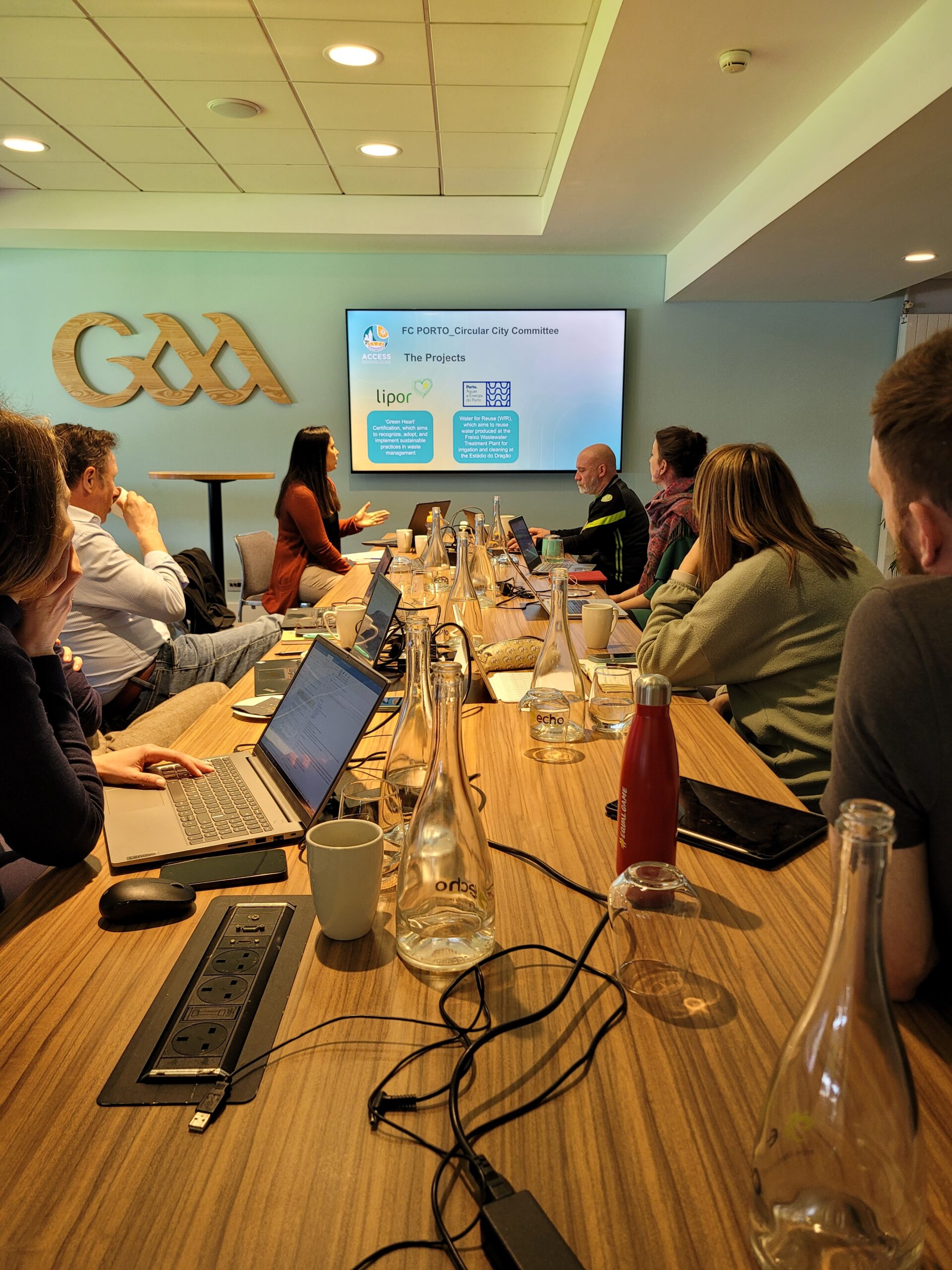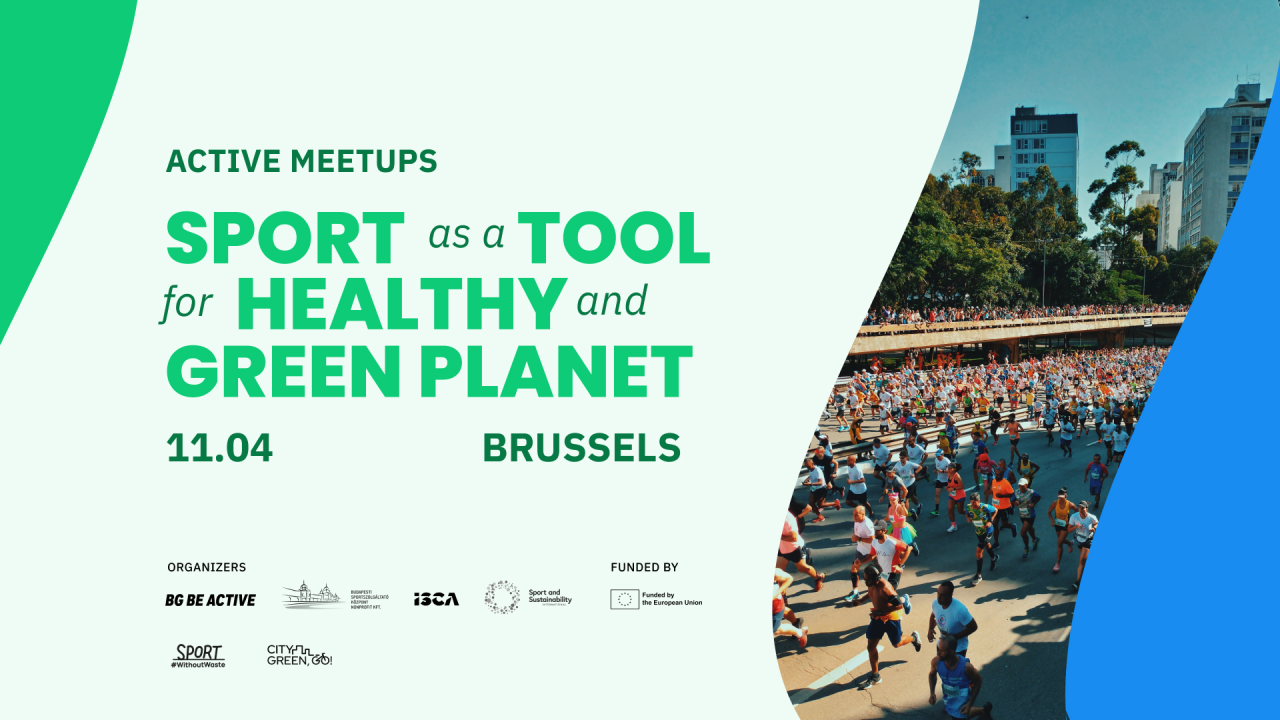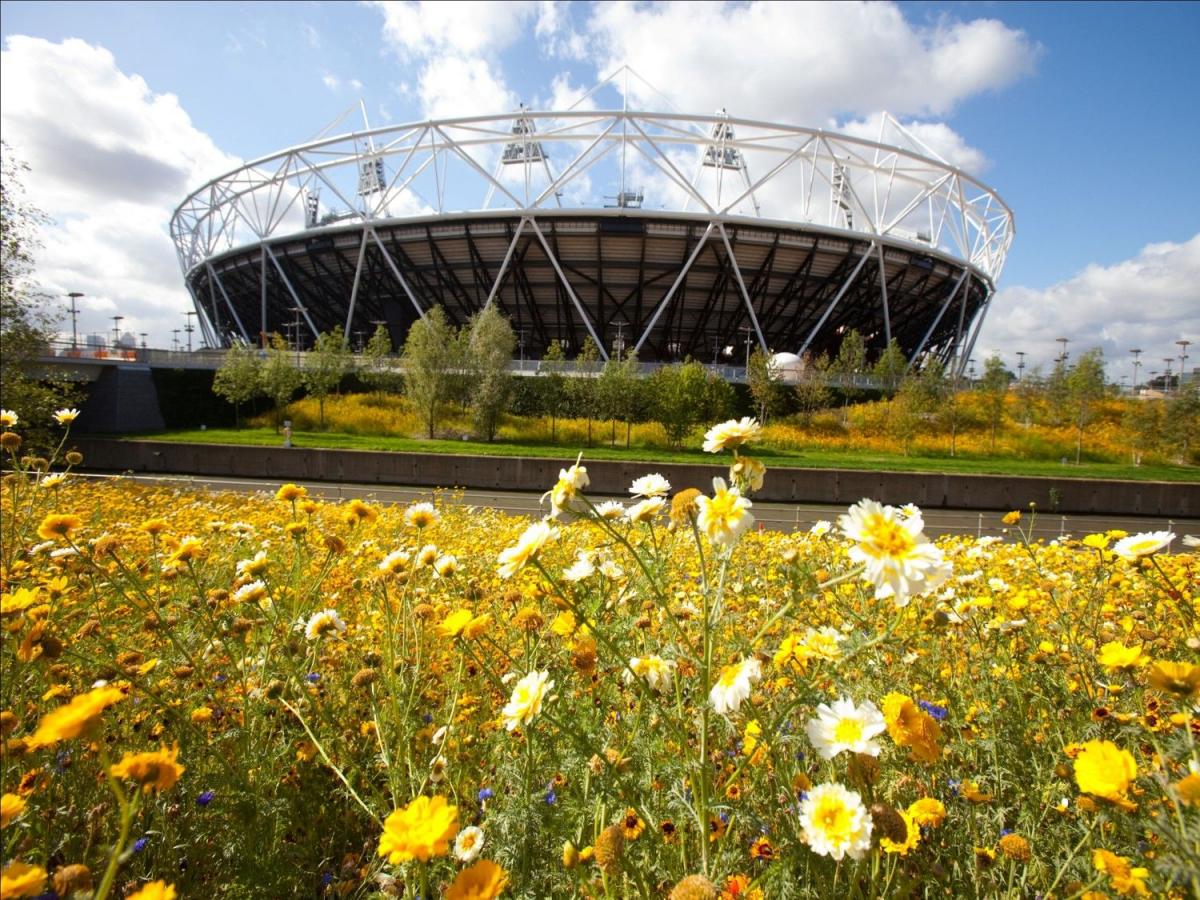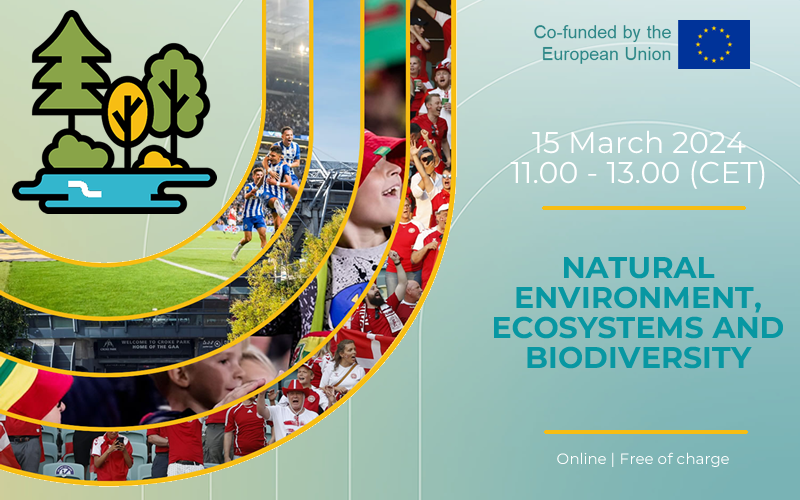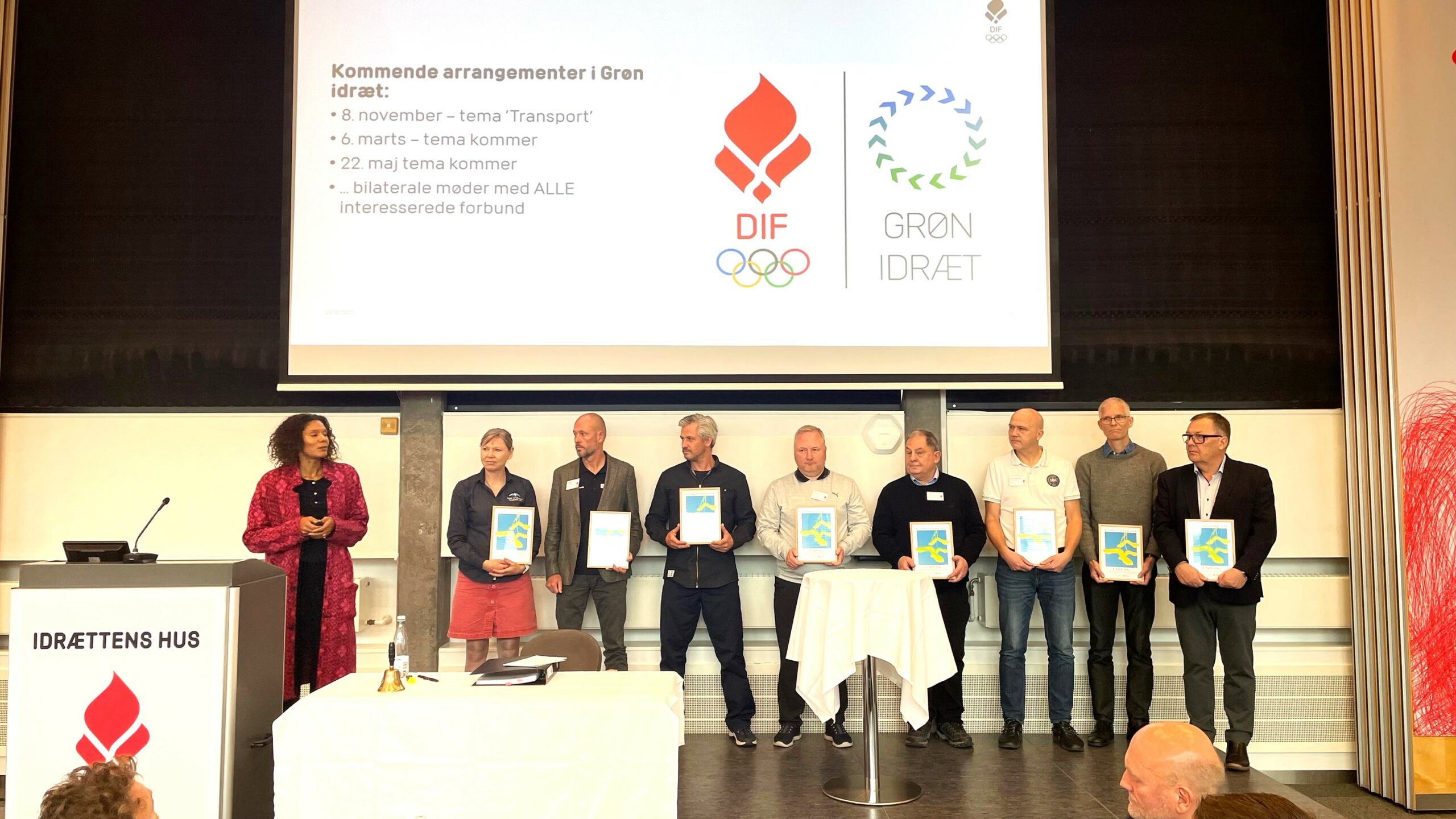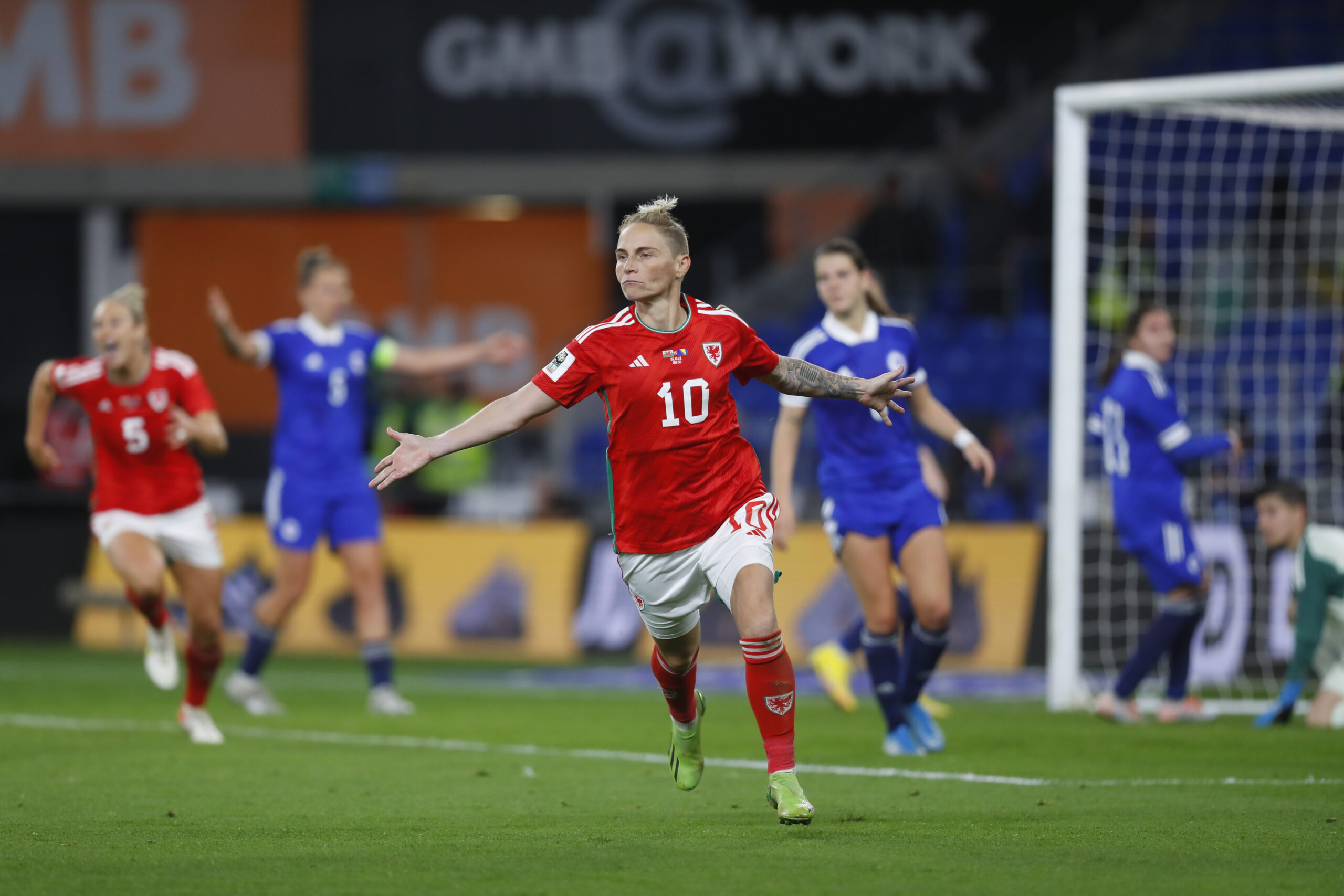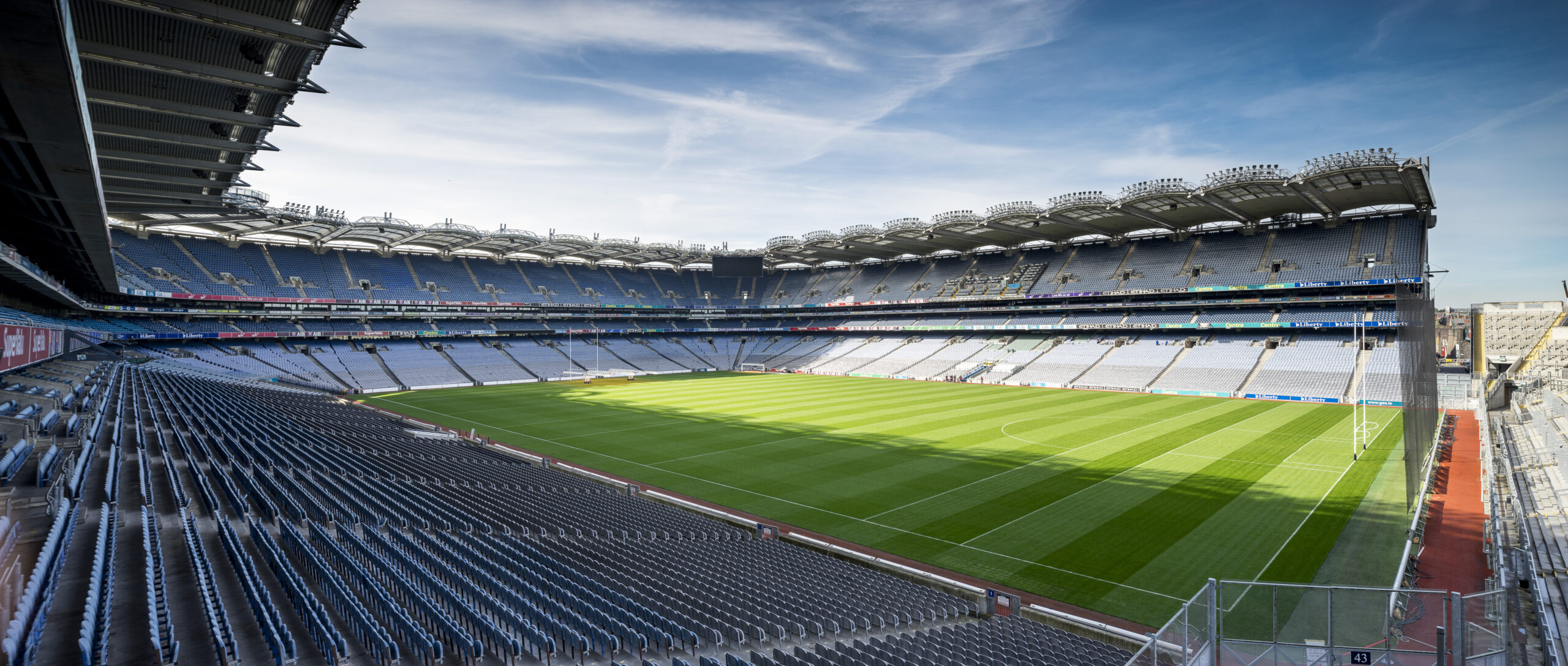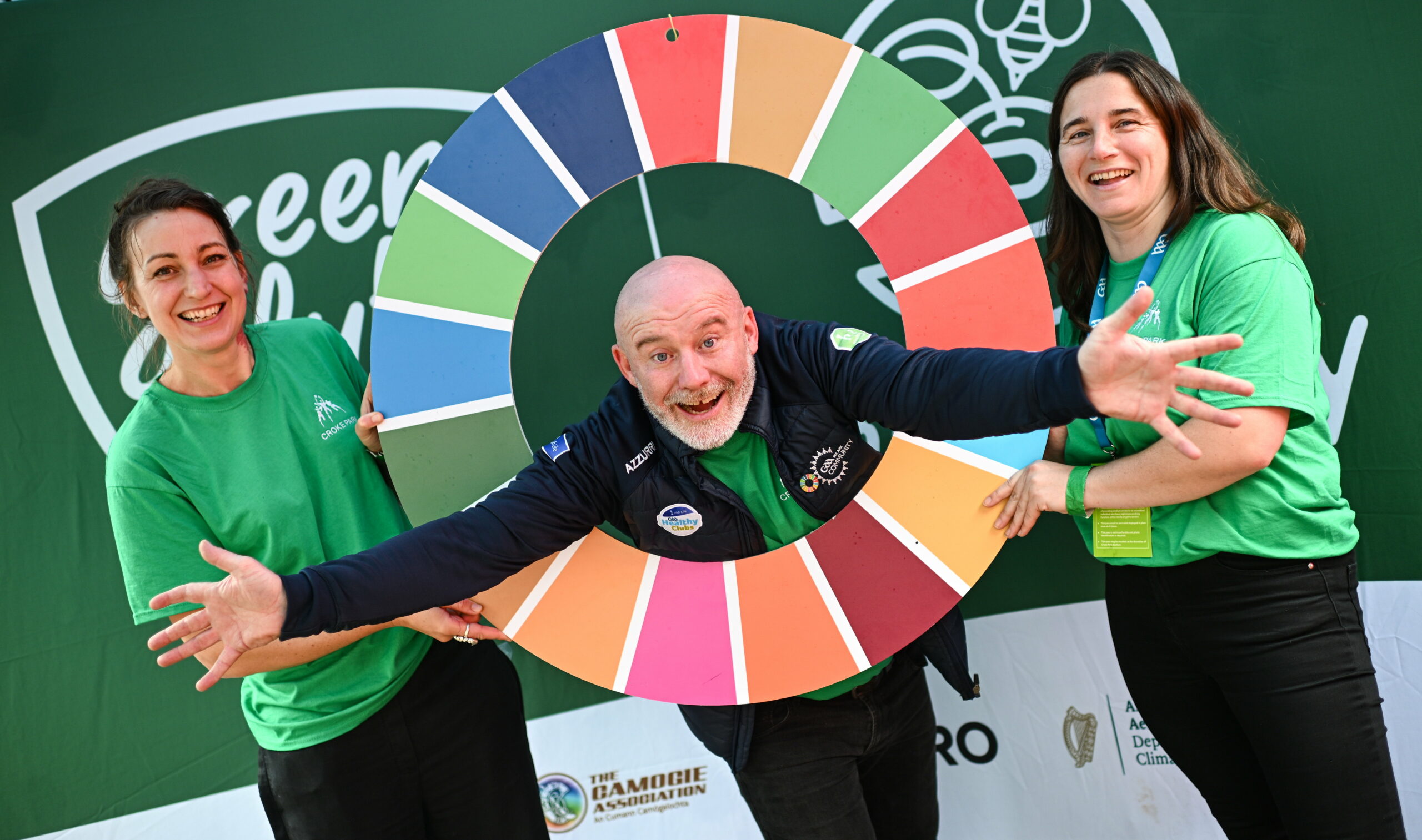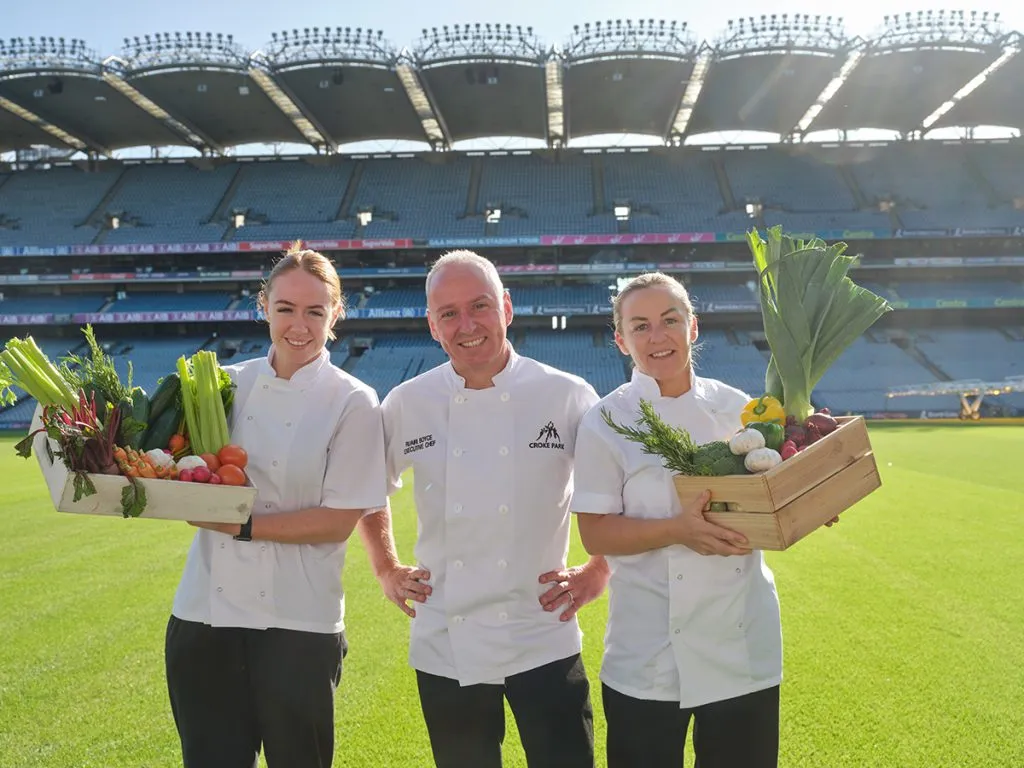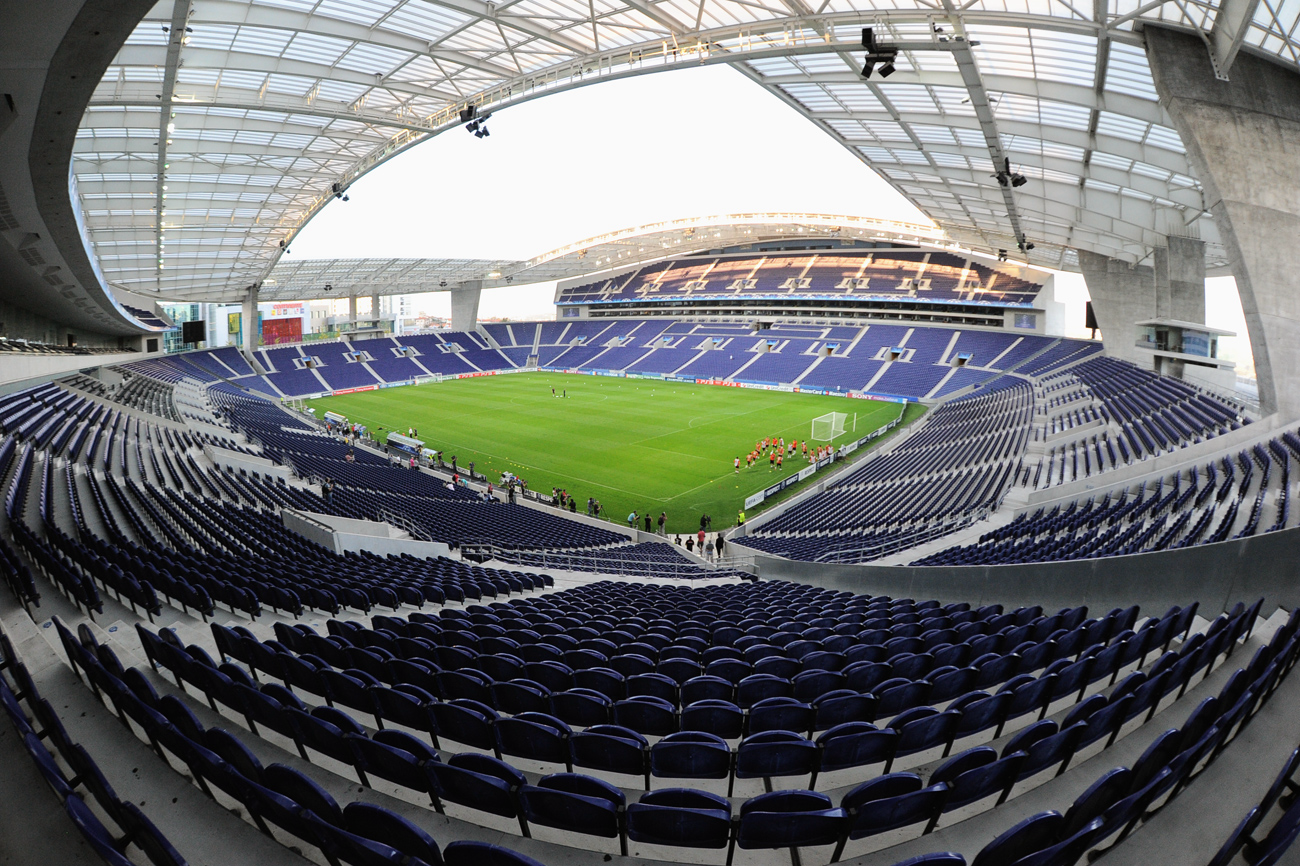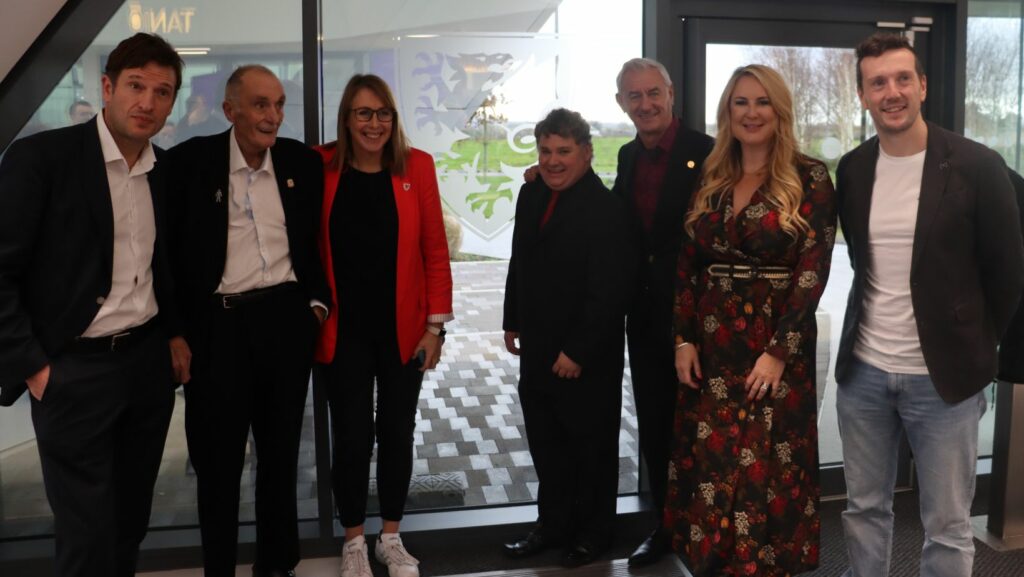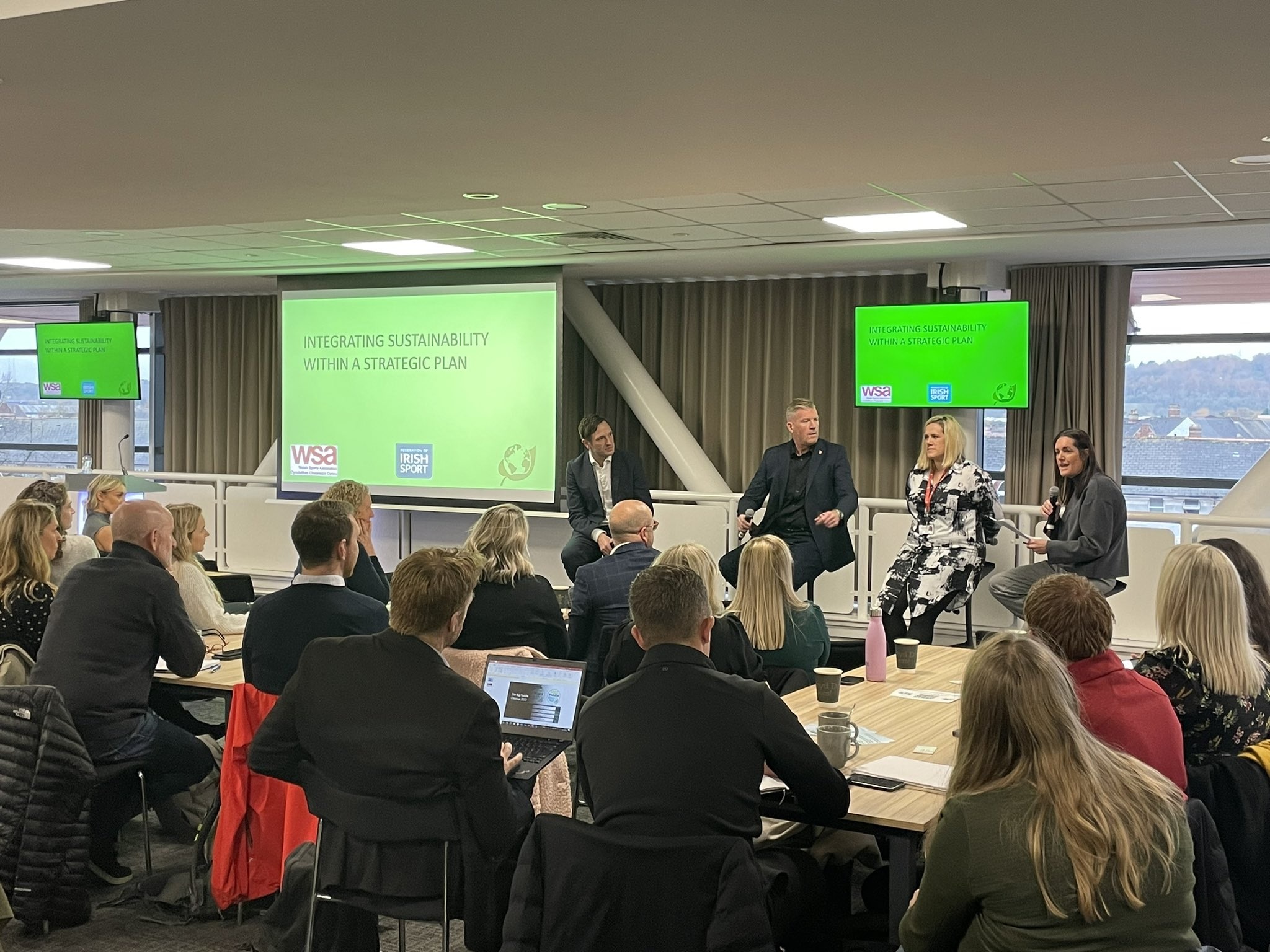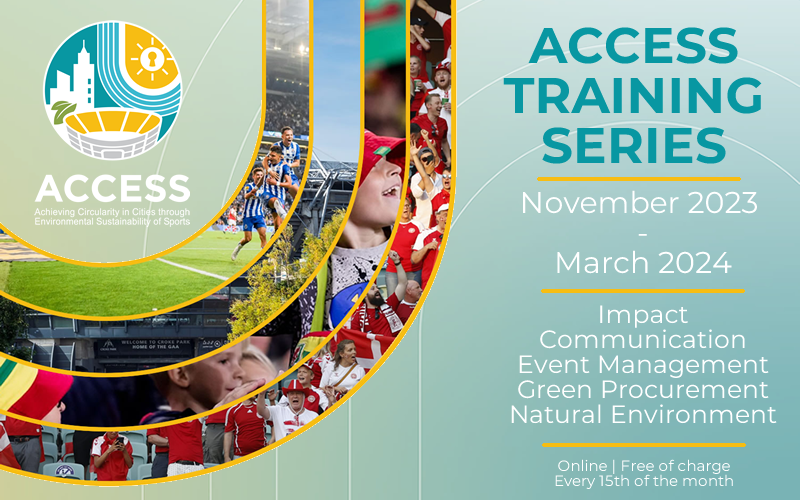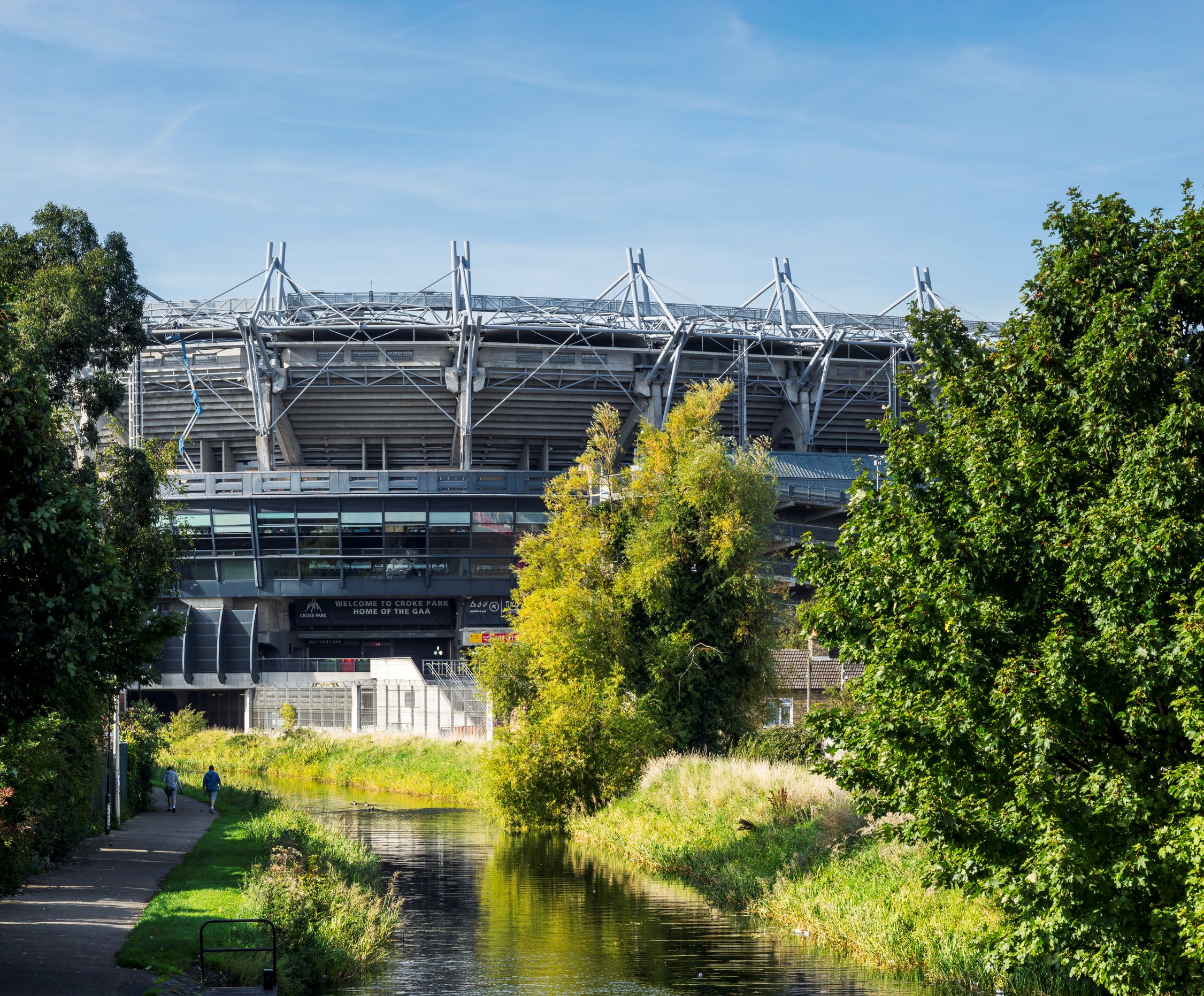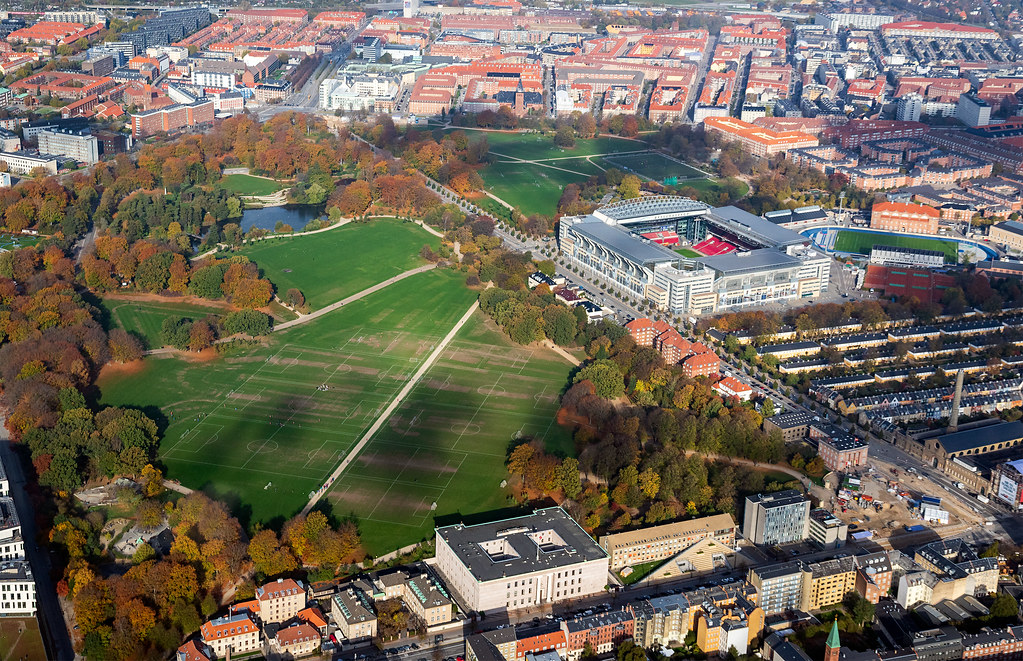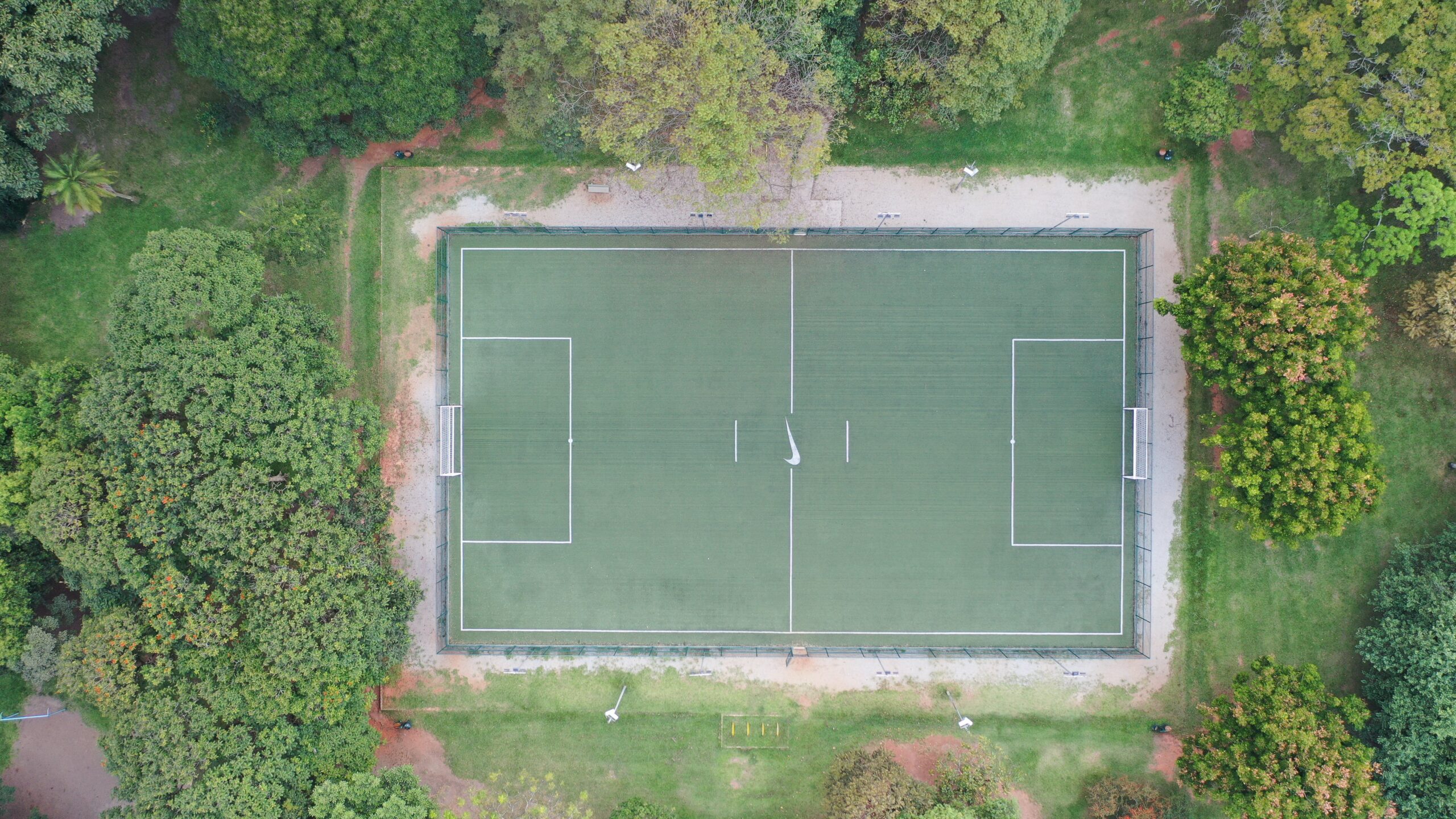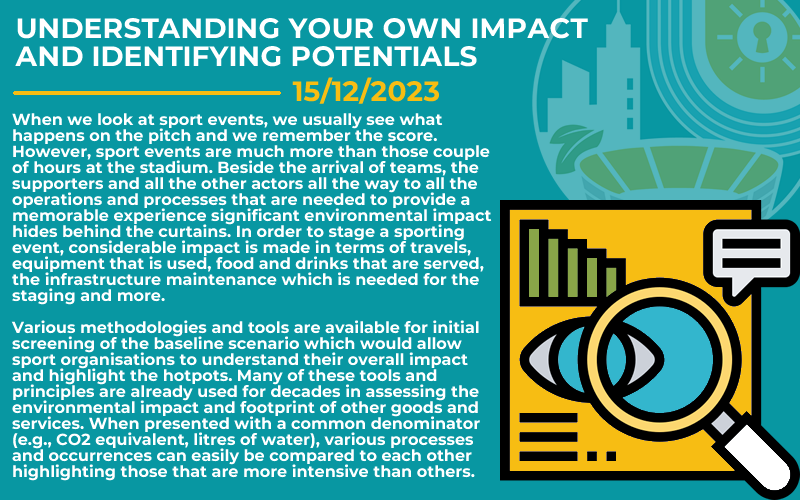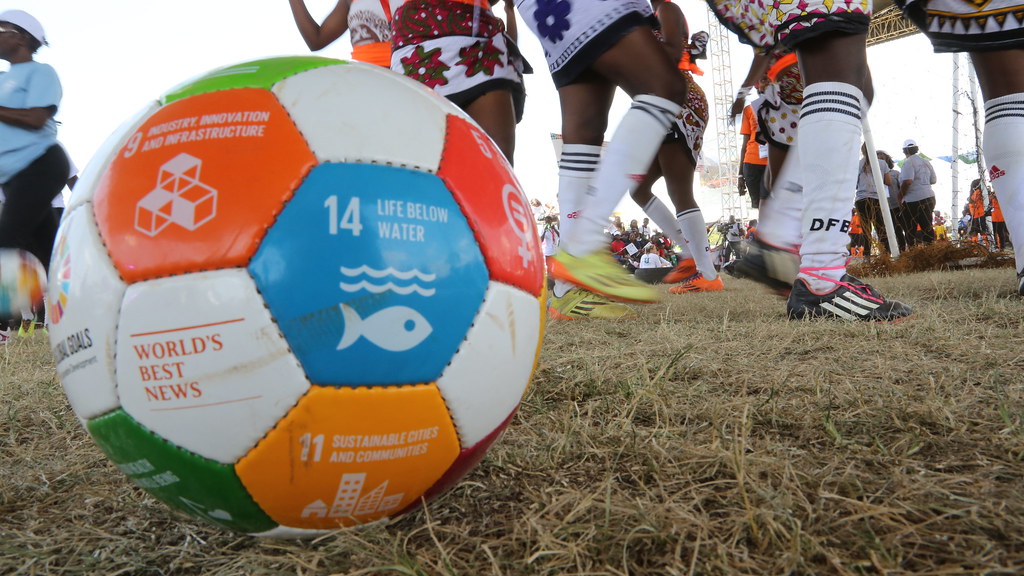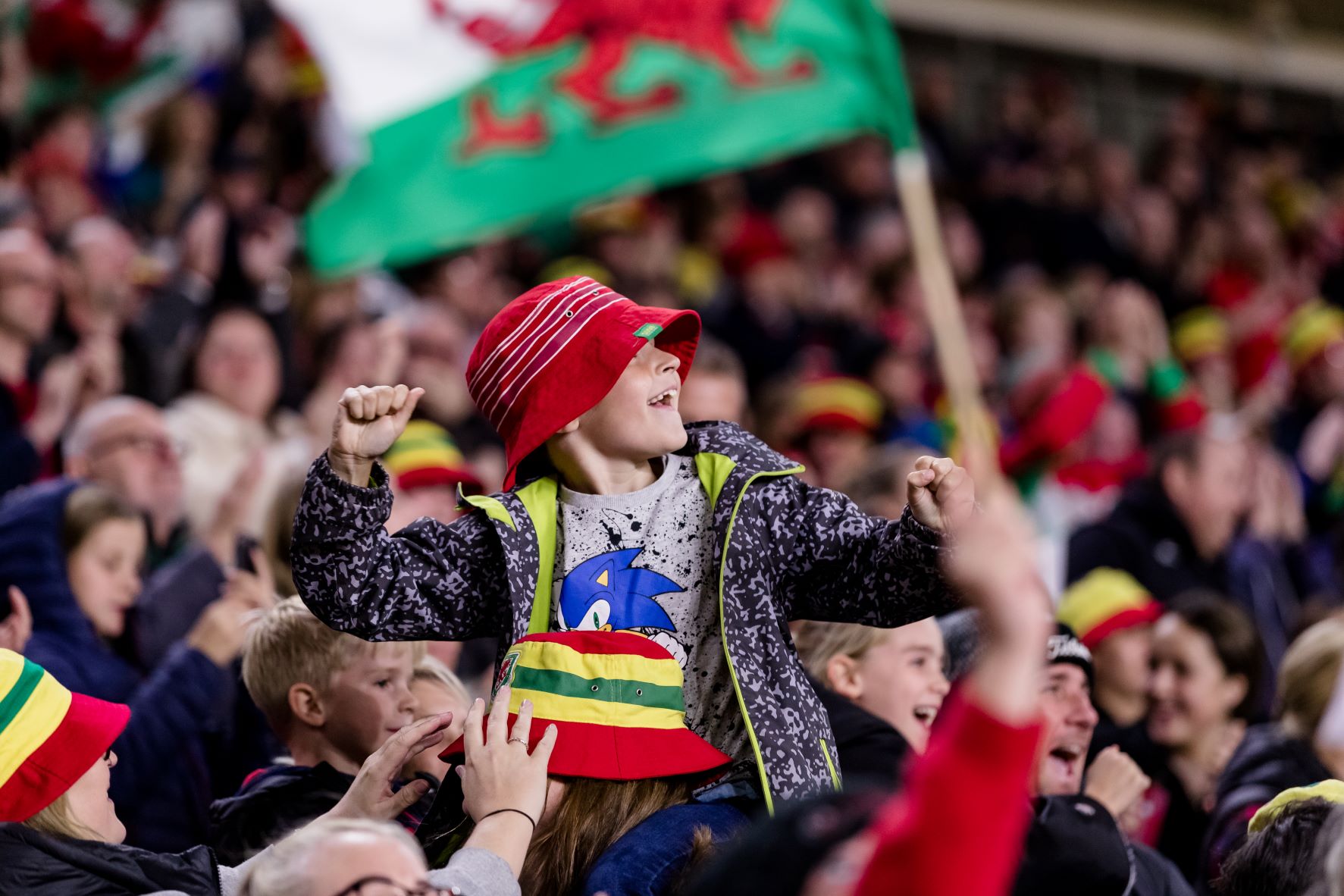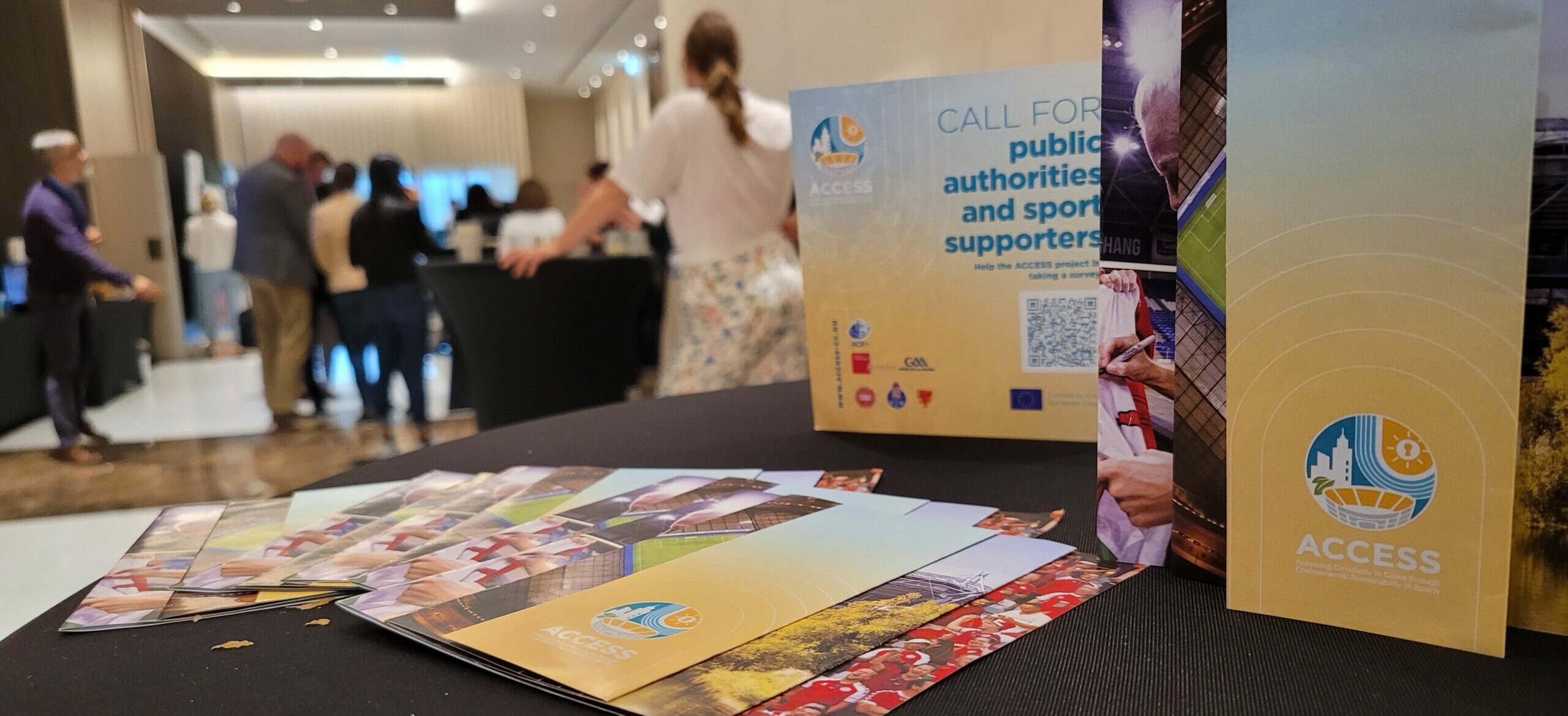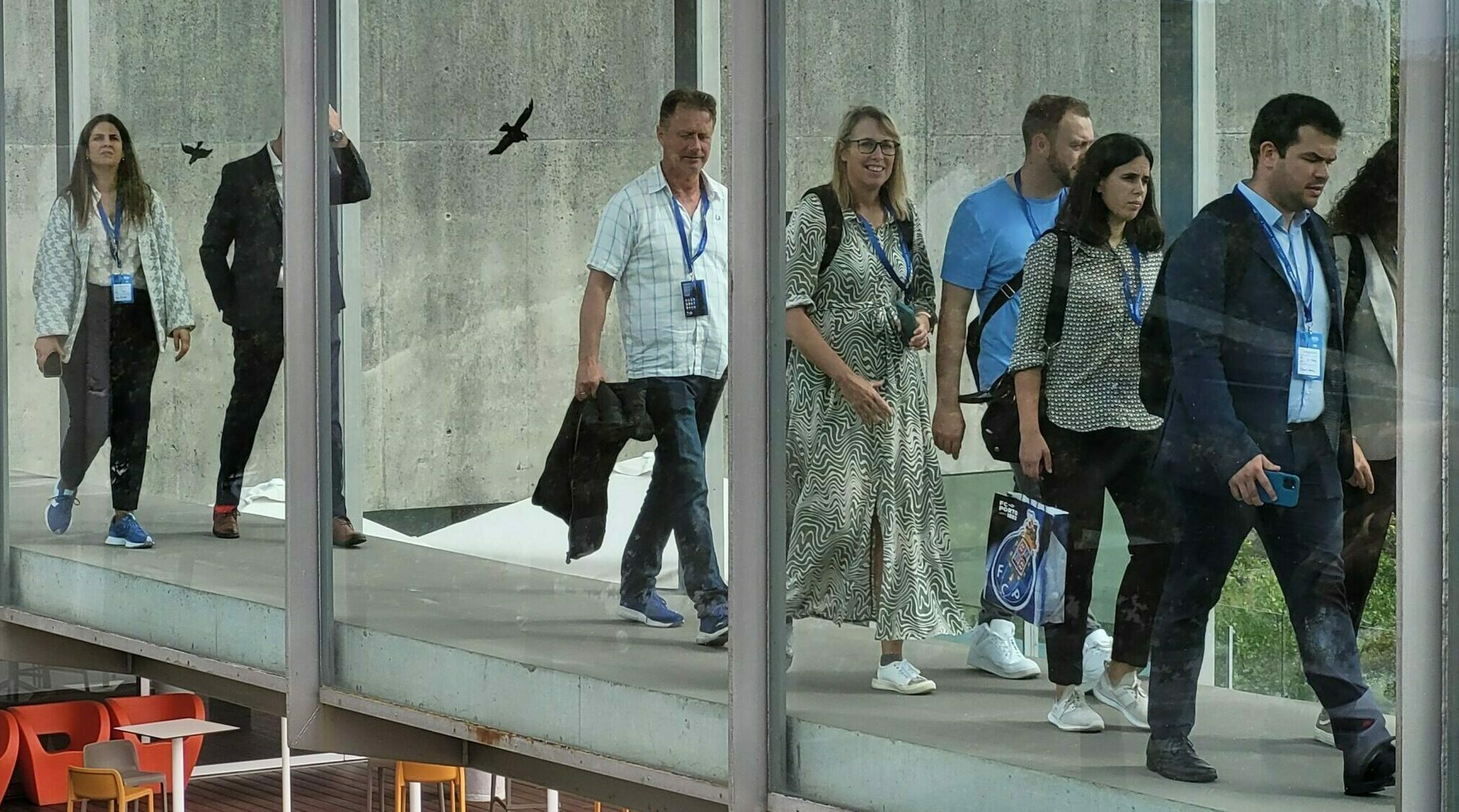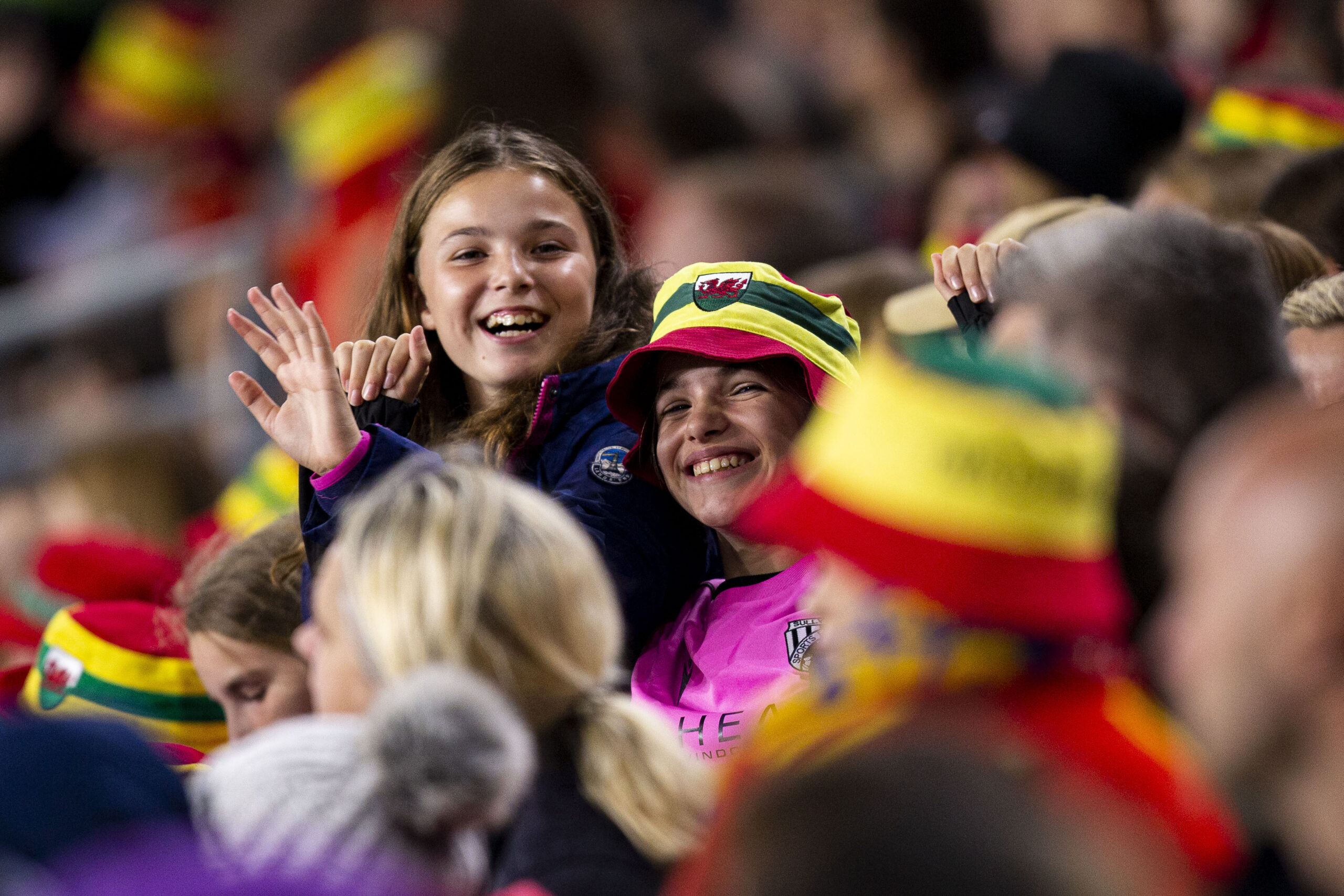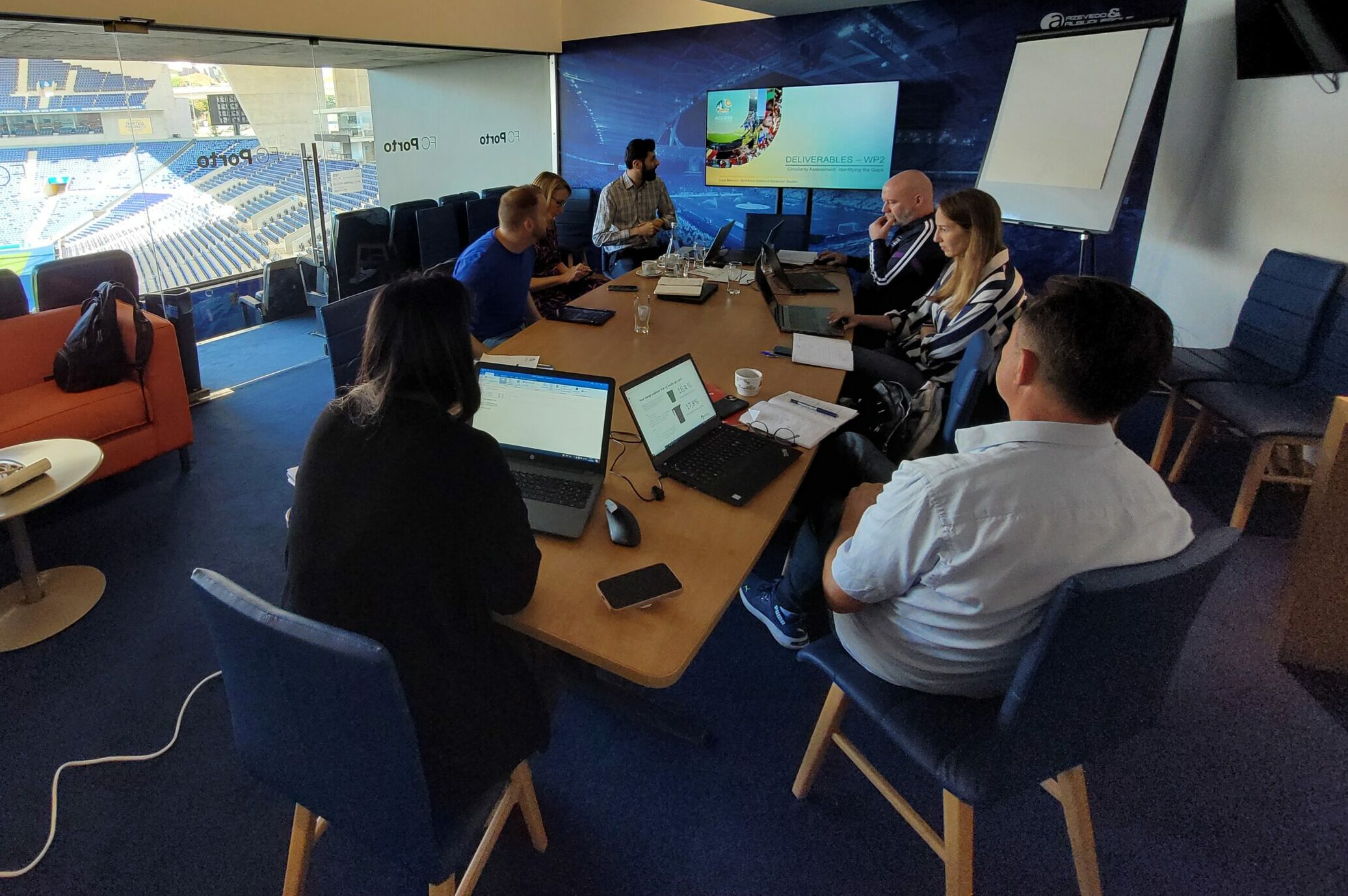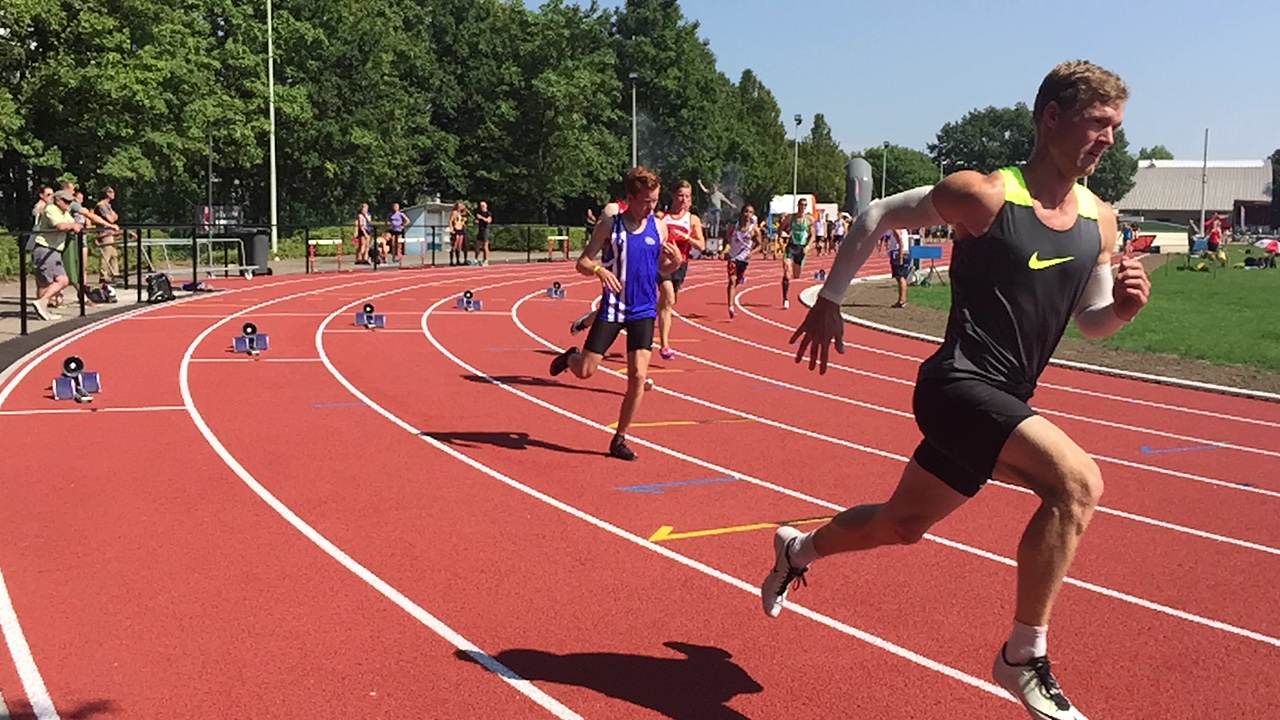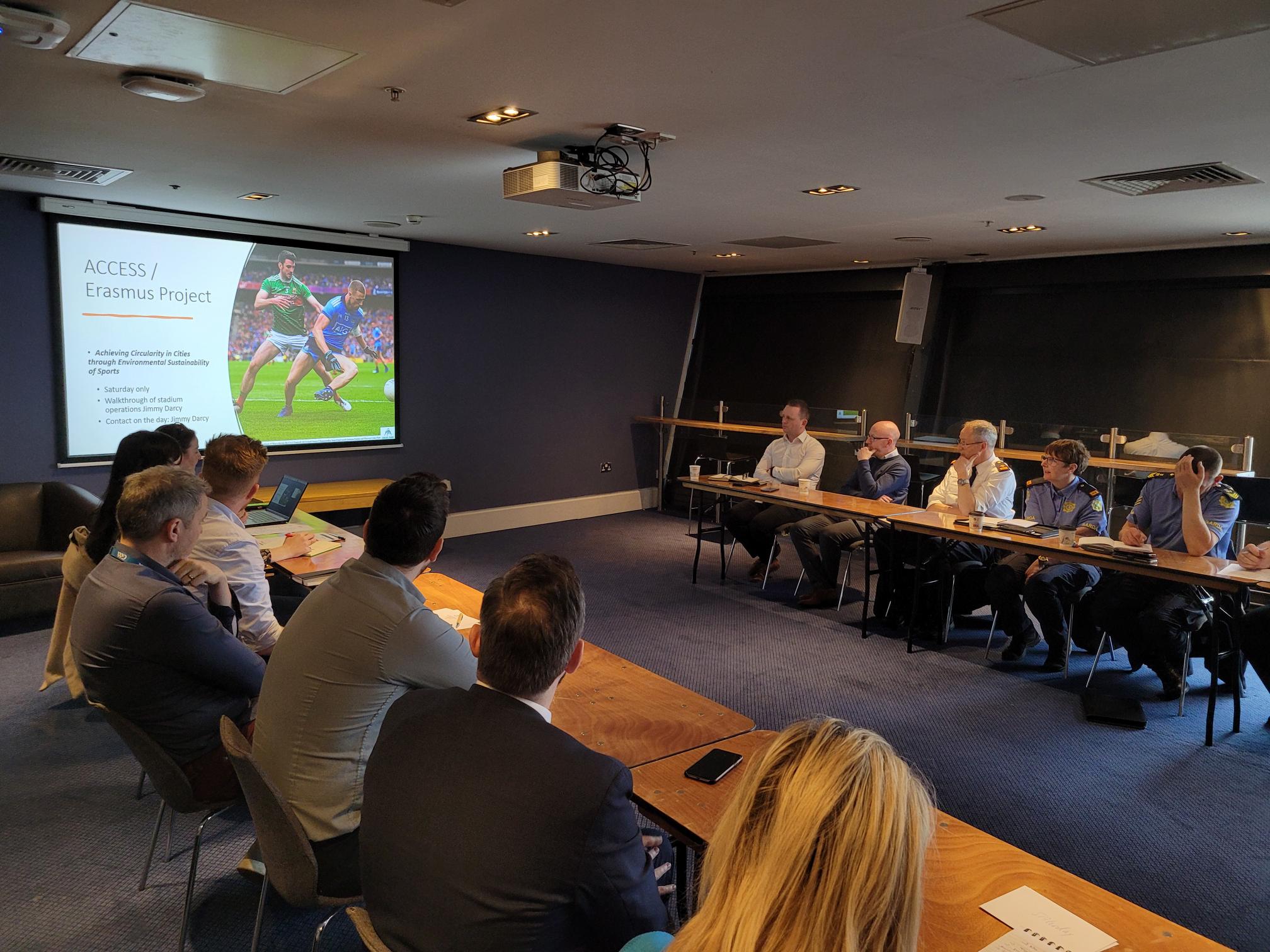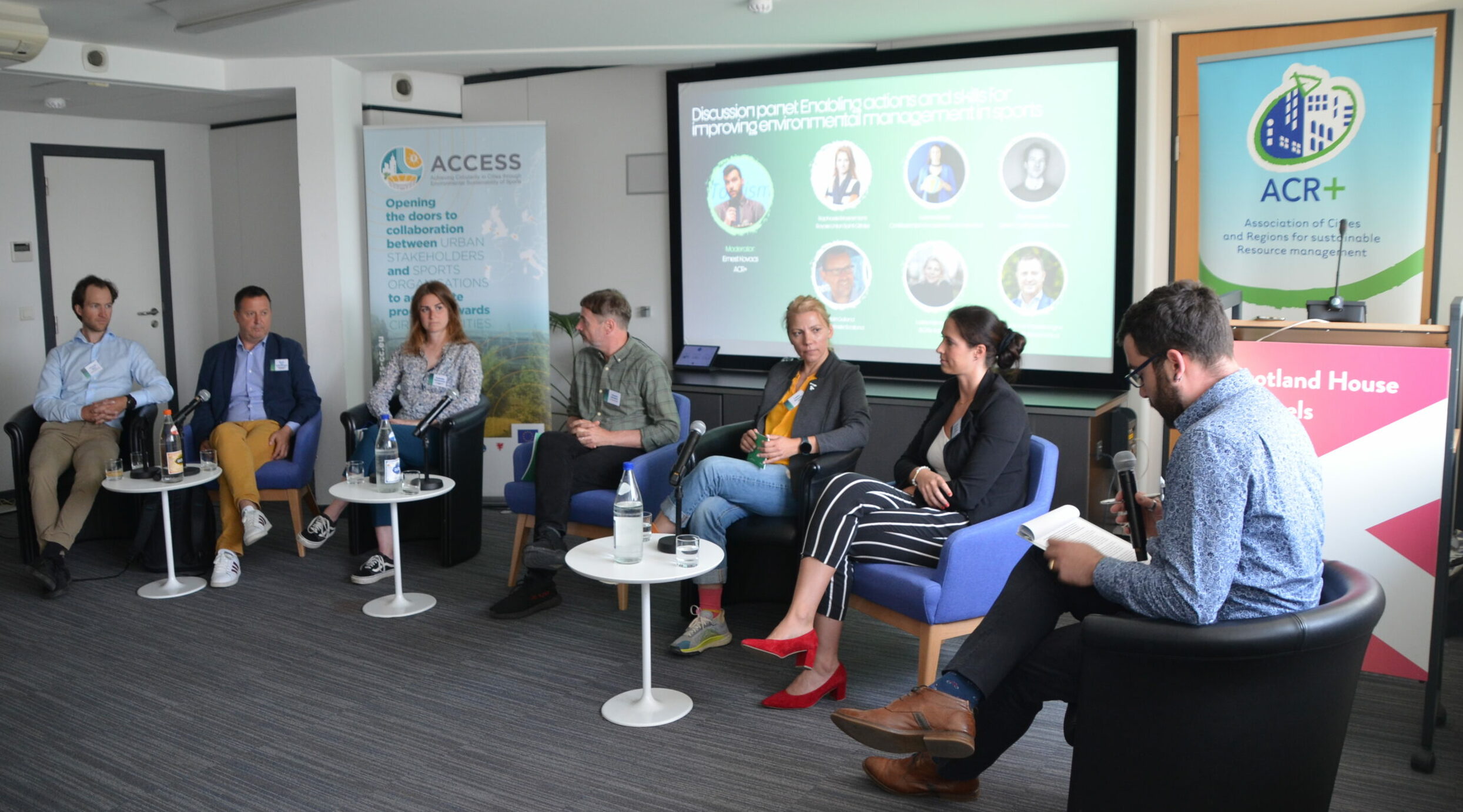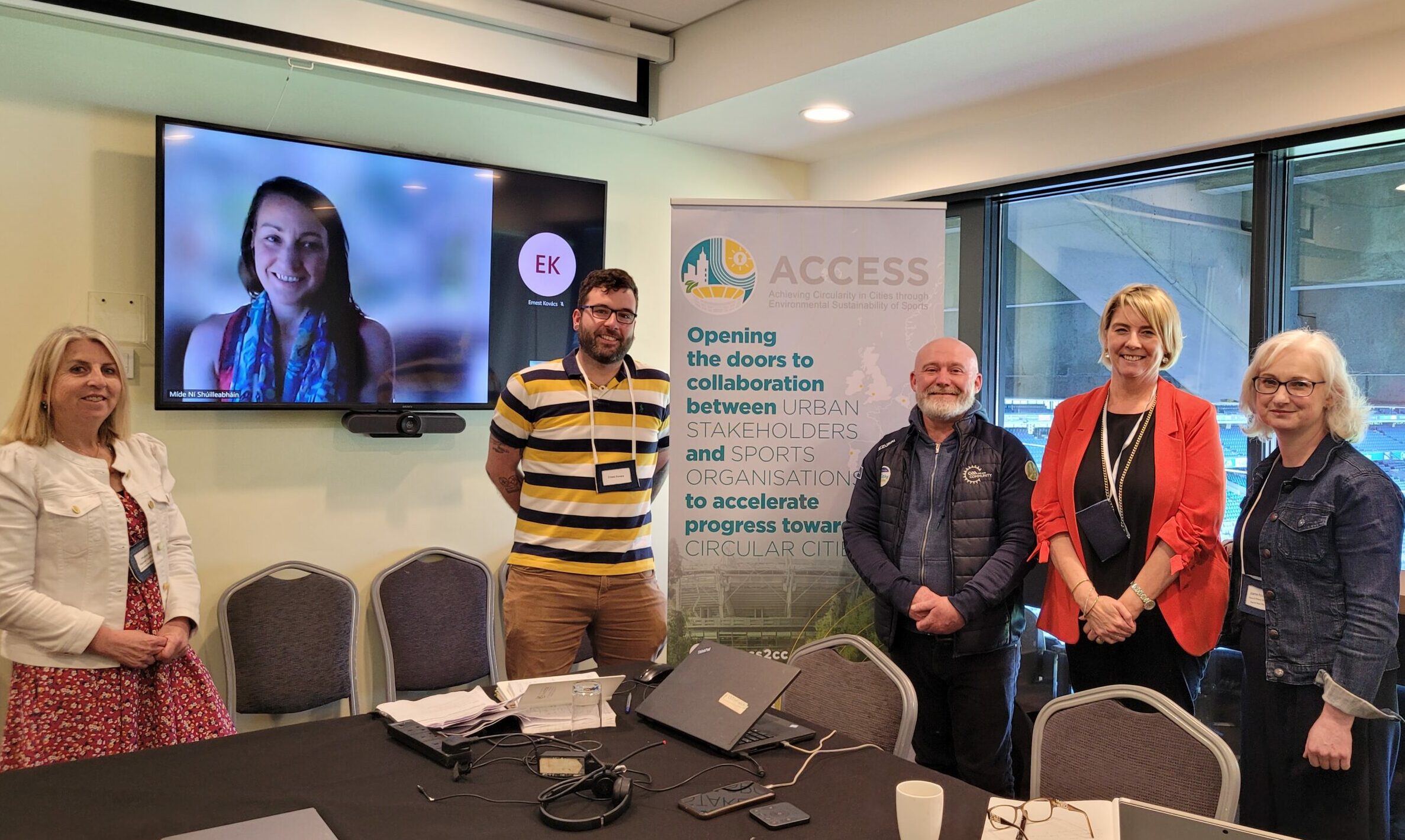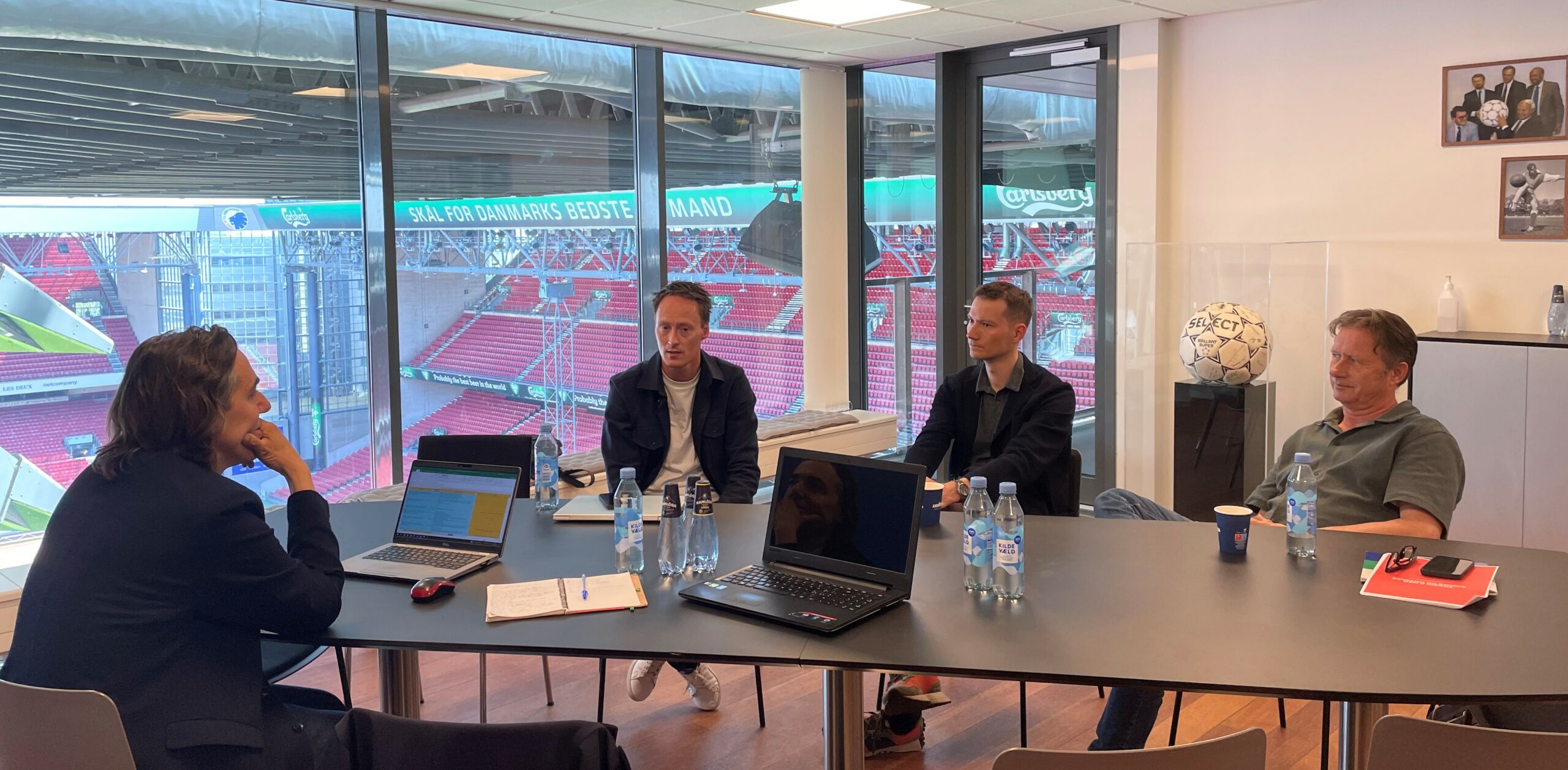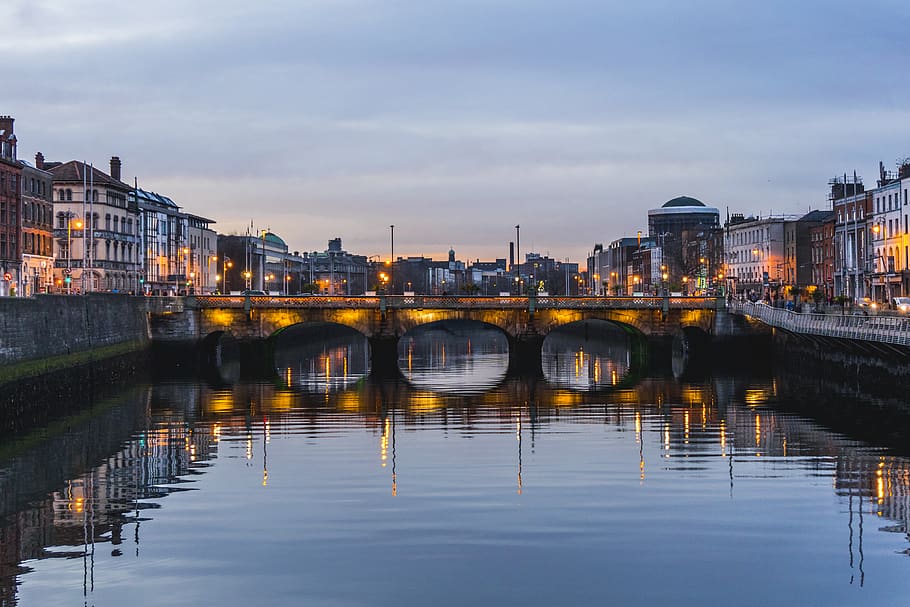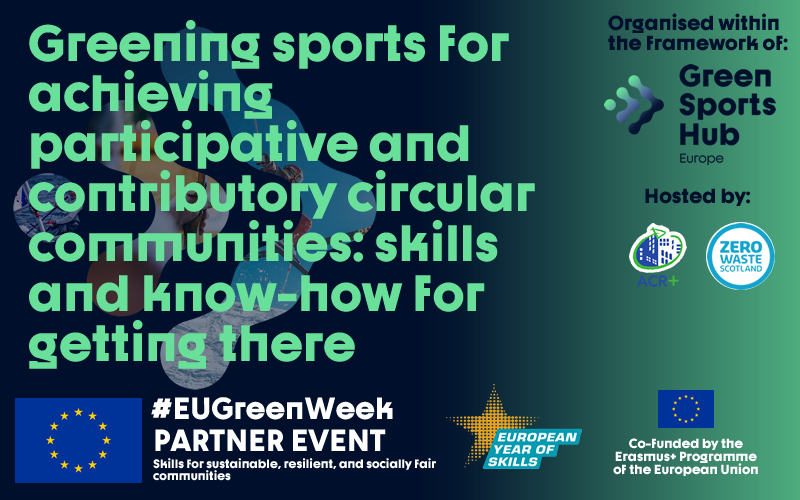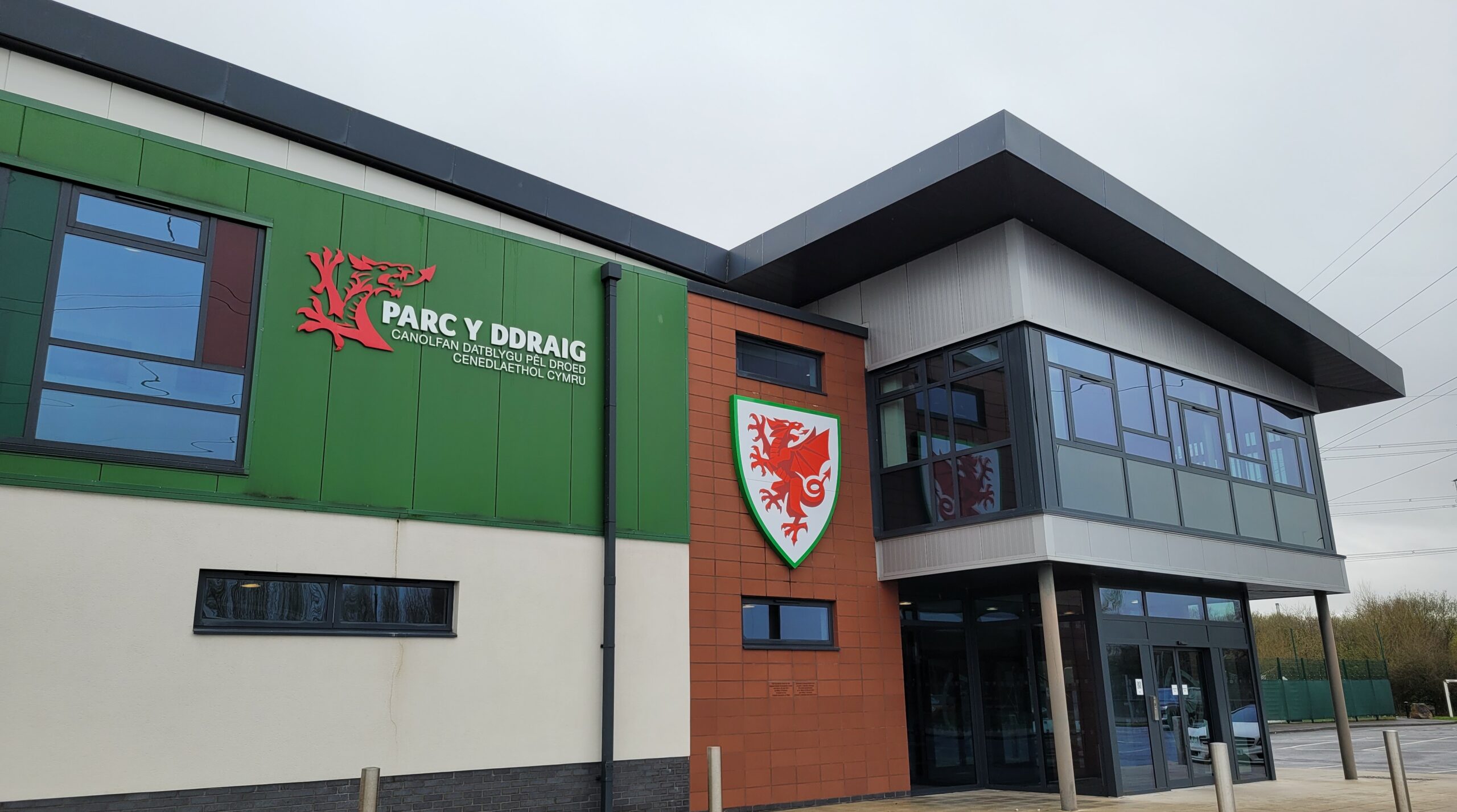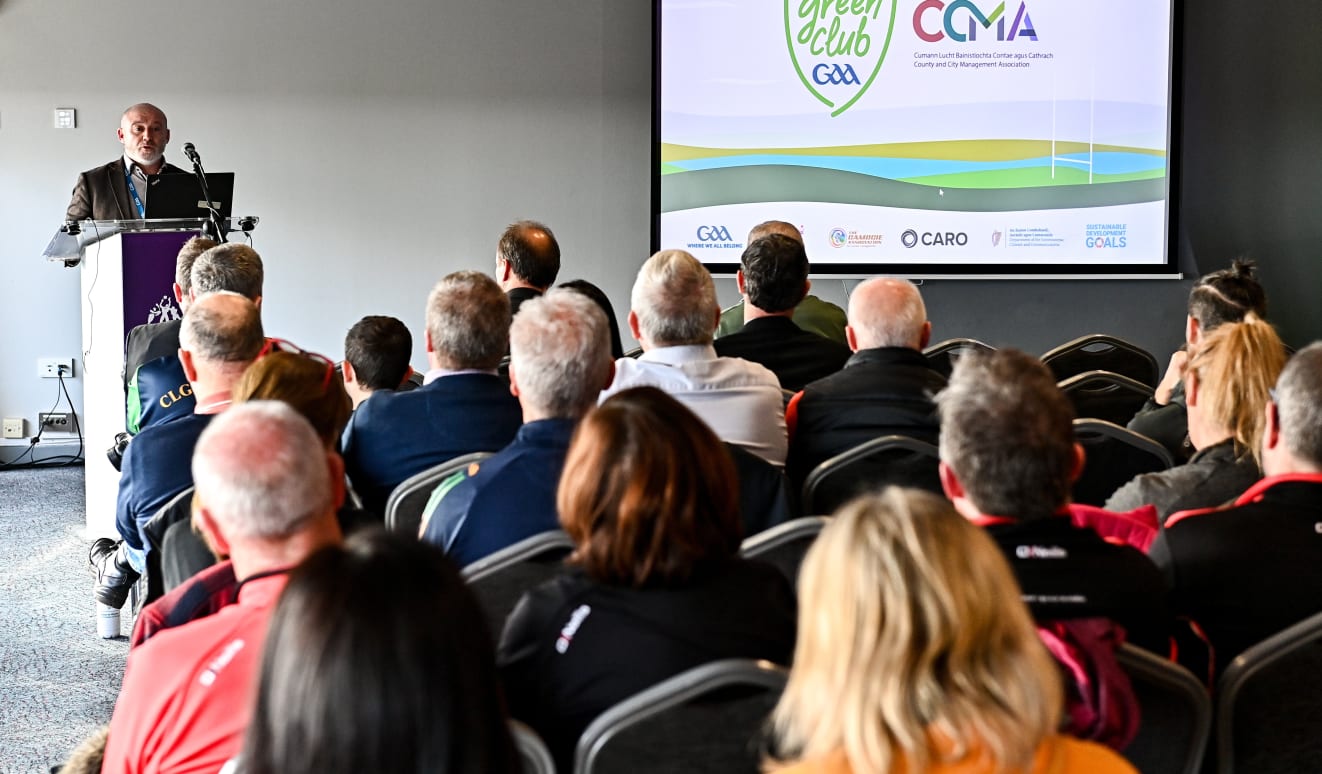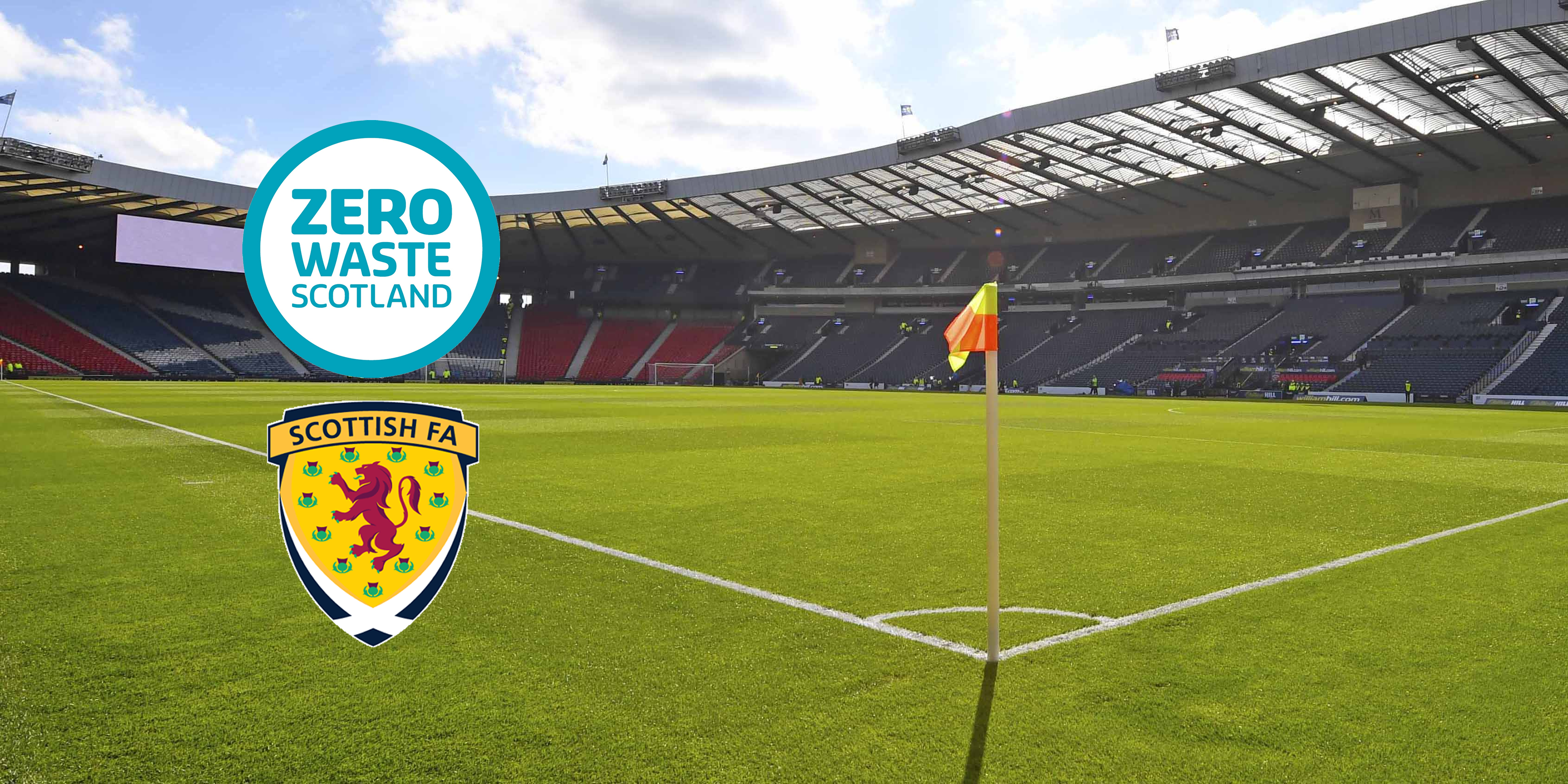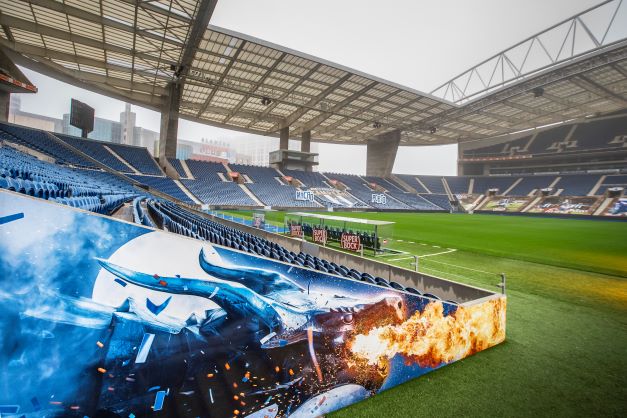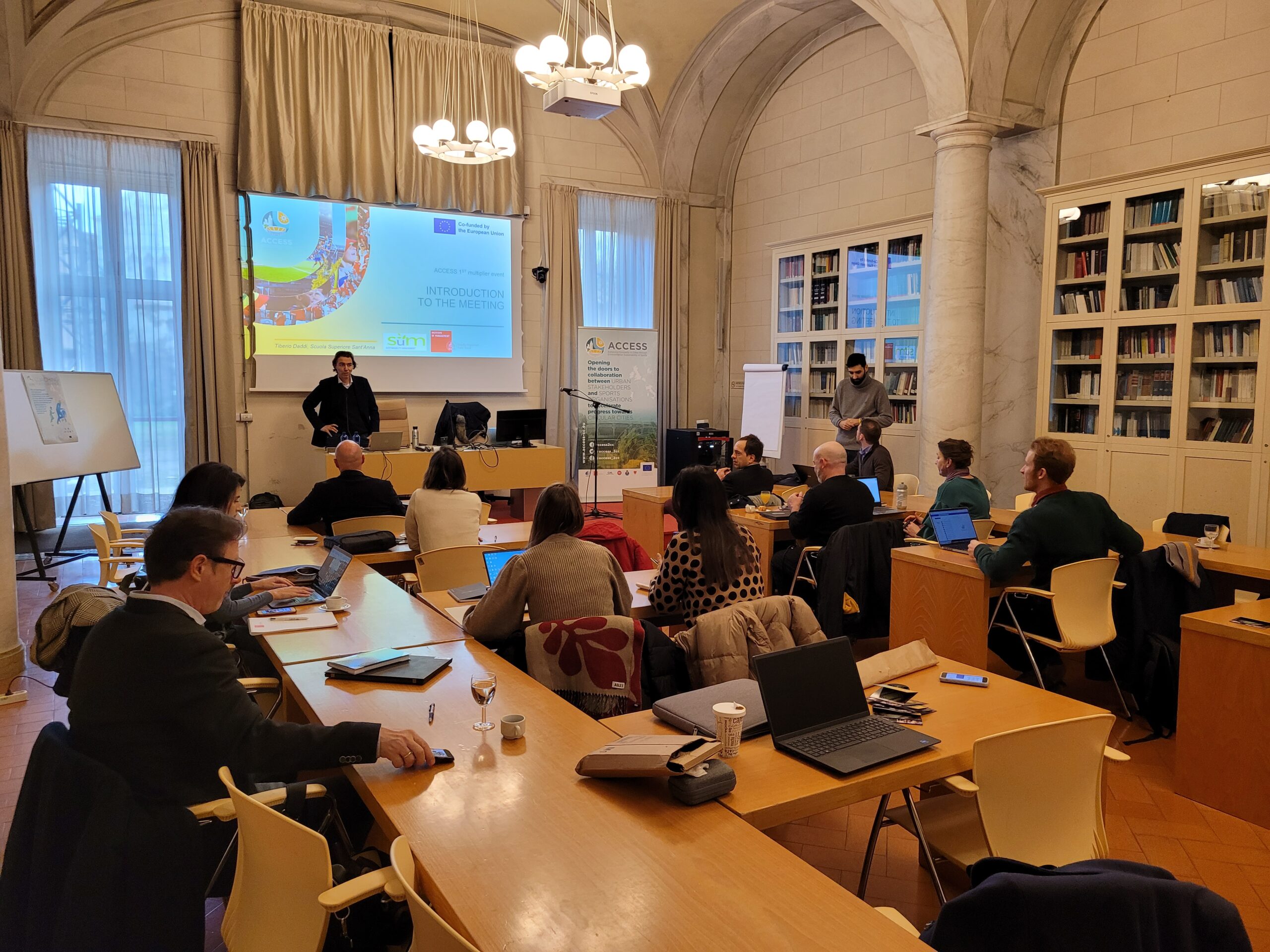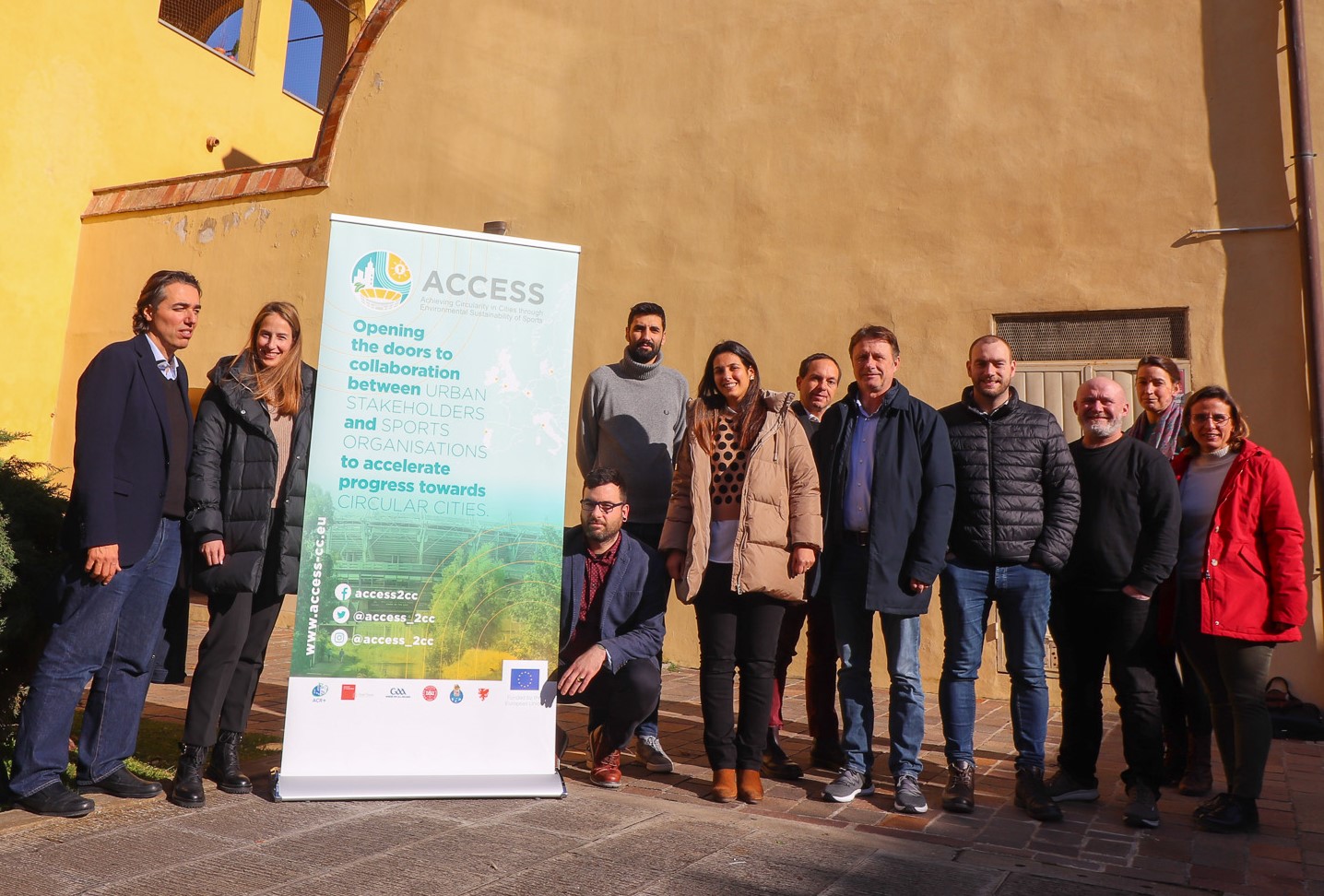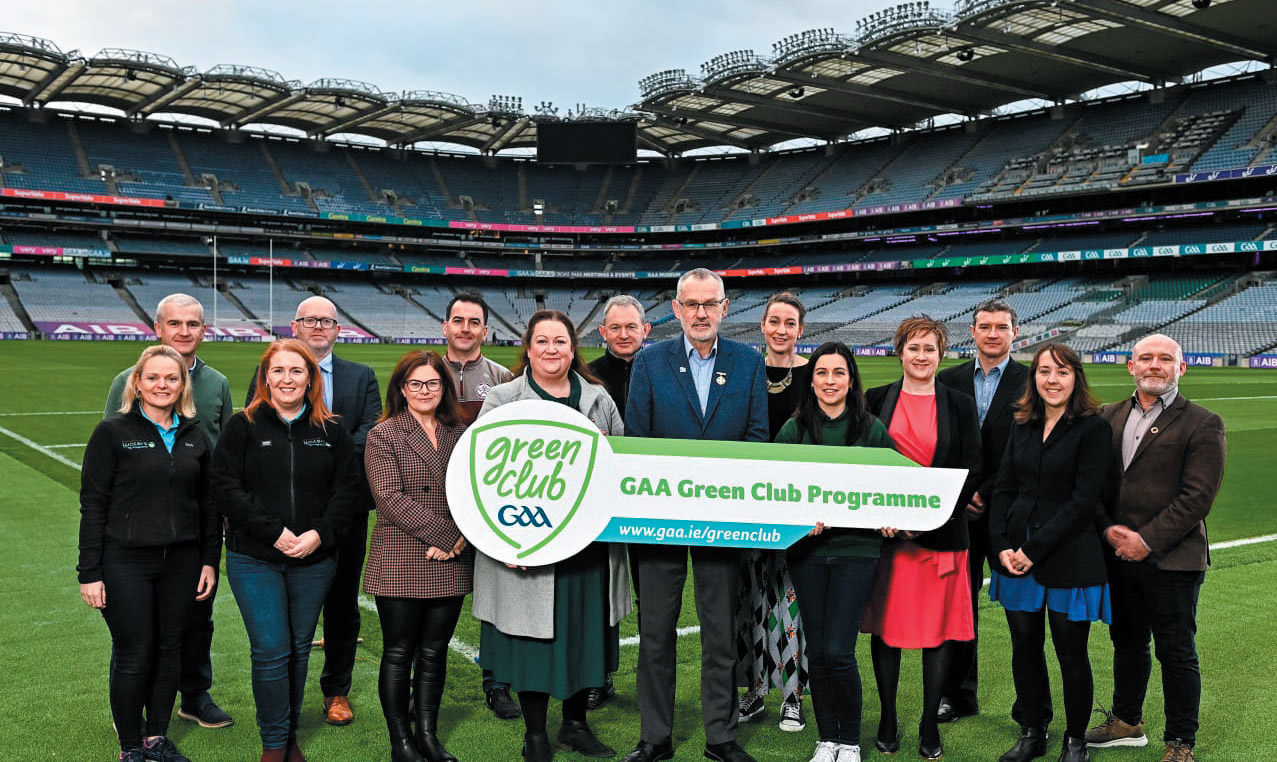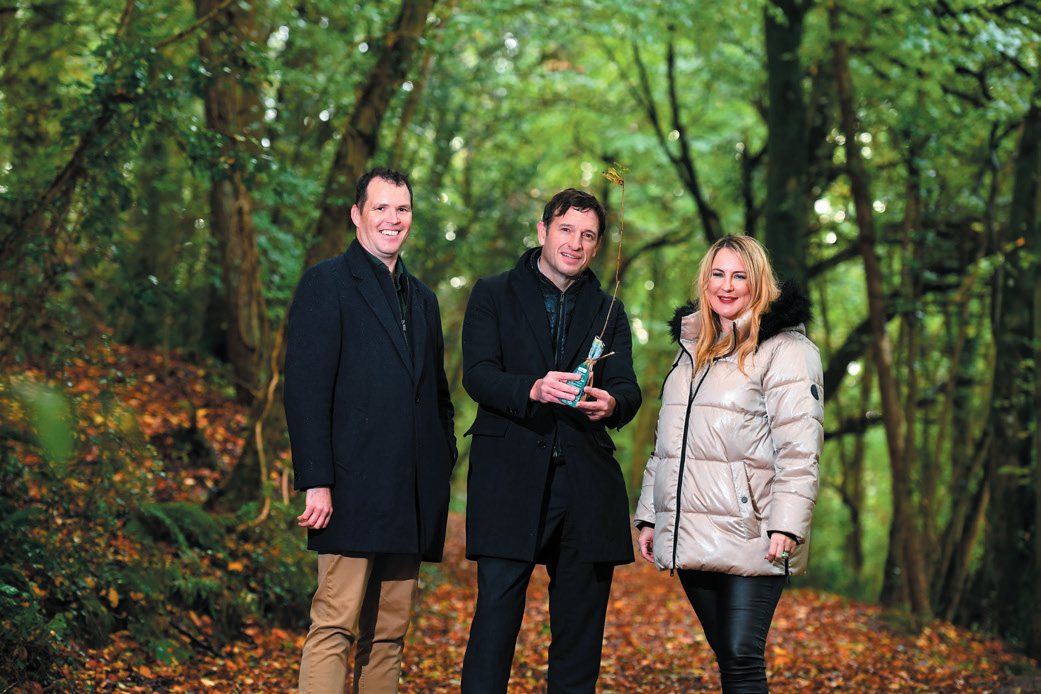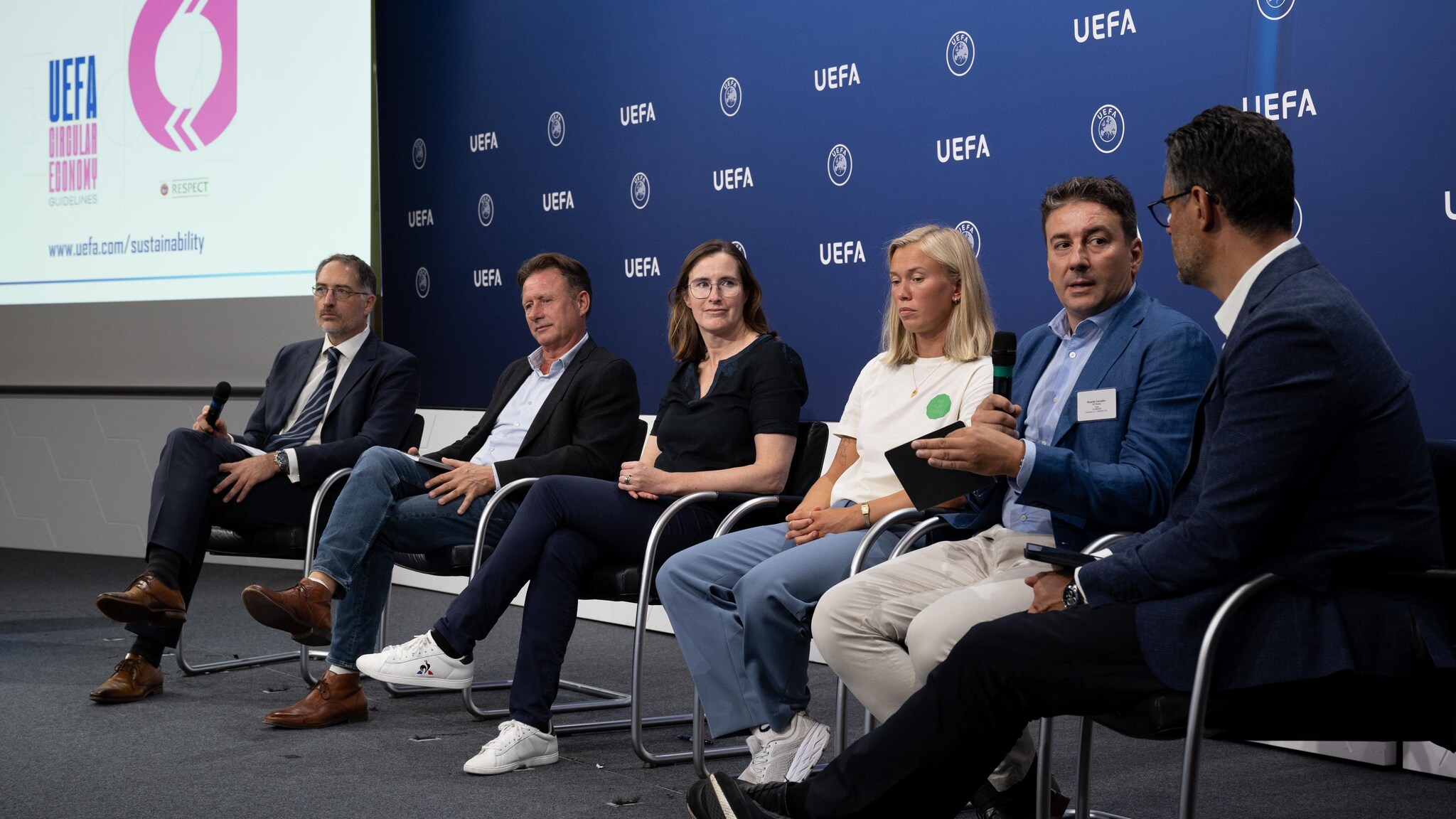


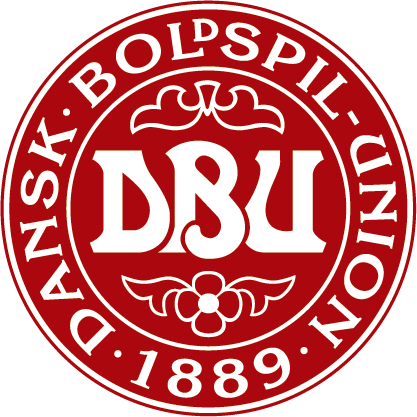
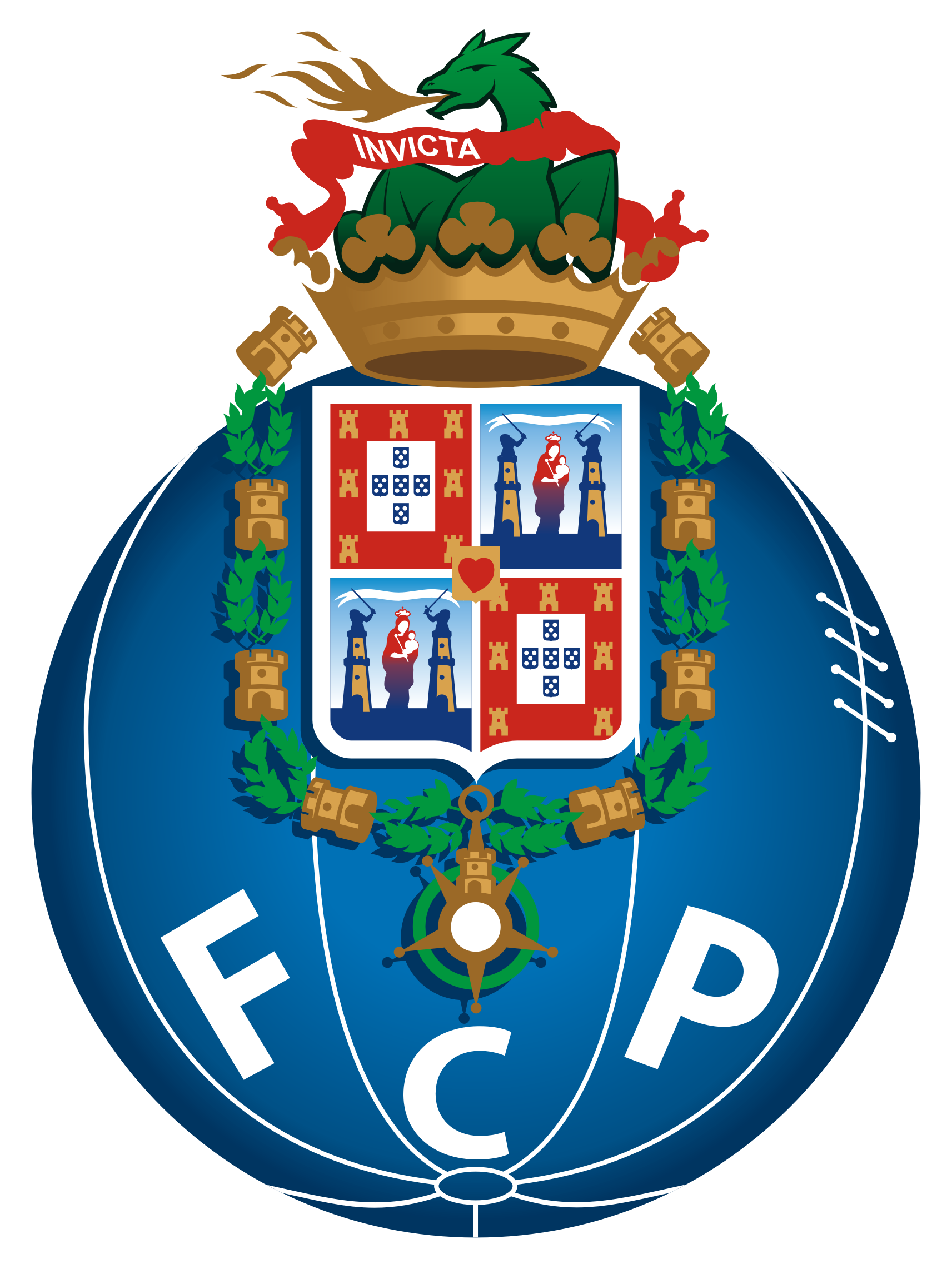
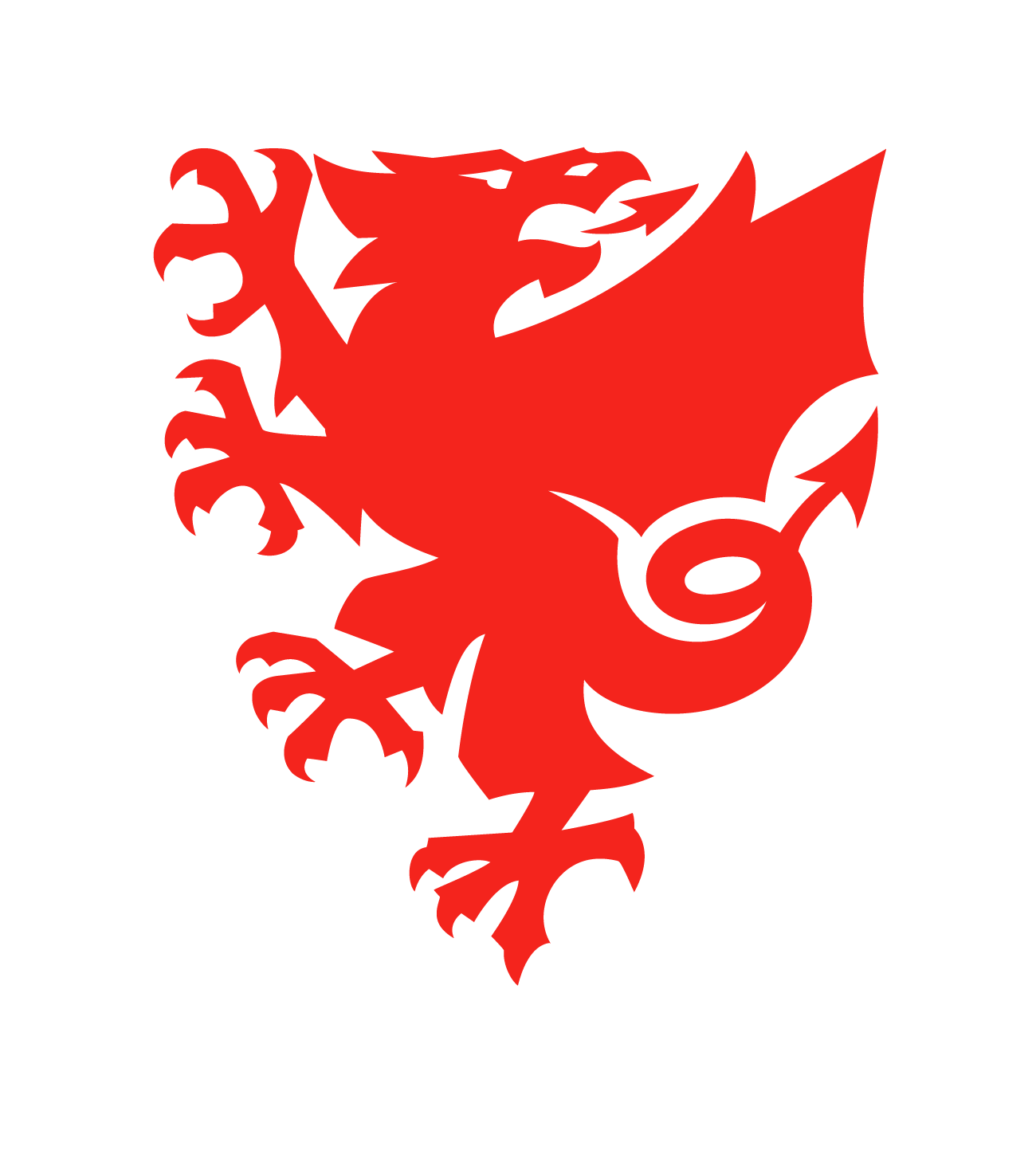
 Funded by the European Union
Funded by the European UnionLegal Notice
News
ACCESS project concludes with a dynamic and inspiring Final Conference at the King Baudouin Stadium in Brussels
“Achieving Circularity in Cities through Environmental Sustainability in Sports” – such was the full name of the ACCESS project, and also the title of its final conference.
Read moreThe GAA to test high density bicycle parking as a part of its contribution to the Dublin Climate Action Week
The Dublin Climate Action Week is an annual one-week programme of online and in-person events, which aims to showcase and inspire climate action across the Dublin region.
Read moreGAA clubs commit to sustainability action
Phase three of the GAA Green Club Programme was launched with an orientation event at Croke Park stadium on Saturday, 22 March. Over 200 new clubs have joined the programme bringing the total number of clubs involved since the programme was established to over 400.
Read moreFC Porto extend the ACCESS project onto their Dragon Force schools
FC Porto has launched a pilot initiative inviting several clubs from its Dragon Force schools to participate in the “Environmental Sustainability” program.
Read moreAll Danish clubs have the opportunity to participate
DBU will make it possible for all Danish clubs to join the Green Goals Charter. This is done so that more clubs can make use of and become part of this part of the ACCESS project.
Read moreDBU participates at the Danish Sports Meeting Conference
The annual event, held in the city of Aalborg in Denmark, took place from 28 to 30 April with a prominent appearance of Anders Kjaer, the Danish FA’s Sustainability Manager.
Read moreA Sensory Garden by FC Porto to reinforce education, sustainability and awareness raising among the youth
In the past month of April, a new Sensory Garden was created at the Casa Dragão of FC Porto, the residence for young athletes in the football academy. This project not only represents the club’s commitment to environmental sustainability but also serves as a powerful educational tool, conveying to the athletes the importance of acting responsibly.
Read moreACR+
The ACCESS project contributes to the European Commission’s SHARE 2.0 platform’s legacy
Following the “Playbook for the European Green Deal” targeting the sport sector, the European Commission has been developing a new initiative with which they want to see increased commitments from sport organisations, sport venues, their cities, as well as individuals for implementing and embedding Green Deal principles in sports.
Read moreFootball and Nature: Welsh FA’s Biodiversity Project Connects Sport, Schools, and Sustainability
At the Football Association of Wales (FAW), their commitment to sustainability goes beyond the pitch. Through their new Biodiversity and Nature Trail project developed as part of our wider Cymru Well-being and the World sustainability strategy, they are creating vibrant, wildlife-friendly spaces at our facilities while engaging local schools and communities in hands-on environmental learning.
Read moreThe ACCESS projects completes its webinar series and makes the recordings available online
Following the successful webinar series that was organised as a part of the project’s capacity building and training activities, all the five recordings are now available on the project’s website and YouTube channel.
Read moreThe Football Association of Wales launches its “Green Goal Charter”
As a part of its Sustainability Strategy, the Football Association of Wales launched its “Green Goals Charter”, as key initiative under this Strategy and as part of its ongoing collaboration with Global Action Plan and participation in the ACCESS project.
Read moreThe ACCESS approach to reinforcing public strategies and targets in sports showcased in Brussels
As a part of Brussels Capital Region’s BRUDALEX 2.0, the region’s ambitious review of the legal framework governing waste management, a workshop to reinforce its deployment in the region’s 19 municipalities was organised with the objective to create synergies between those municipalities and to showcase examples of good practices, while addressing and highlighting challenges, bottlenecks, and outlooks.
Read moreFC Porto receives a “Green Heart” certificate for outstanding waste management practices
Awarded by Filipe Araújo, the city of Porto’s vice-mayor, this award confirms the successful implementation of the ACCESS project by the local football club
Read moreThe ACCESS project announces its Final Conference to mark the closure of the project
In the framework of closing the three years long European co-funded project ACCESS, the Association of Cities and Regions as the host and lead partner, with its fellow project partners – the Sant’Anna School of Advanced Studies, the Welsh and Danish Football Associations, the GAA and FC Porto, is cordially inviting you to the project’s Final Conference, symbolically titled “Achieving Circularity in Cities through Environmental Sustainability in Sports”, exactly what the project’s title stood for from its very beginning.
Read moreThe Danish FA and Danish Handball are investigating “Green Fan Commitment”
As the two largest sports federations in Denmark, the Danish Football Association (DBU) and Danish Handball (DH) have joined forces on a pilot project called Green Fan Commitment.
Read moreACR+
The ACCESS project invited to present their results at the Green League Sport Alliance for the Environment’s Conference
An occasion to talk about sport and environment and the link between them, to listen to key speakers expert in these fields and to get to know other people and broaden network of contacts – and the ACCESS project will be there.
Read moreFC Porto’s efforts in sustainable waste management start bearing fruits
As a part of FC Porto’s Action Plan, put forward for the purpose of the ACCESS project, waste management at their administrative premises received special attention and becomes recognised by the public authorities.
Read more
The Dublin Circular City Committee flourishes as the GAA’s ACCESS Action Plan sees its implementation
The latest meeting of the Dublin Circular City Committee, which oversees the implementation of the GAA’s ACCESS Action Plan, served as a great occasion to review and catch up on the ongoing activities and their implementation, as well as share outlooks for the future.
Read moreThe Welsh FA dedicate their Cymru vs Montenegro Match as a sustainability-themed fixture
As part of its ongoing commitment to environmental sustainability (Cymru Wellbeing & the World), the Football Association of Wales (FAW) marked the Cymru vs Montenegro match on 14 October as a sustainability-themed fixture which followed the ‘Football and a Sustainable Future event’ at Cardiff City Stadium on the same day.
Read moreFootball Association of Denmark
The local multiplier event in Brondby challenges environmental management in sports and beyond
The presence of the project partners in Denmark, for their regular project meeting was wisely used by the Danish FA to organise their local dissemination event the very day after bringing together regional and national sport organisations to discuss challenges and solutions with their foreign counterparts.
Read more
The ACCESS project publishes its collection of good practices
While the project partners have been working on improving their own processes and practices through the Circular City Committees, a parallel work has been taking place in the background – resulting in a comprehensive collection of good practices in circular economy for sports and cities.
Read moreSant’Anna School and AFC Fiorentina launch an advanced training course in Sport Management and Sustainability
While the enrolment is now open, online and in presence lessons start from 7 February in Florence – an excellent training opportunity for those who wish to build or consolidate a career in sports management, with particular reference to football.
Read moreCroke Park begins harvesting water from stadium roof
December 2024 marked a big milestone at Croke Park as the venue began a water harvesting project that sees rainwater coming from the roof systems being filtered and collected in a significant underground tank which then feeds the main pitch irrigation tank.
Read moreThe Football Association of Wales uses the “Wales Climate Week” to highlight its initiatives and commitments
The week of 11 – 15 November marked the Wales Climate Week 2024, bringing people together from across Wales to learn and explore innovative solutions for tackling and adapting to climate change.
Read moreACCESS appears at Sport Positive’s webinar on circular economy and resource efficiency in football
As a part of the ongoing project Free Kicks, which addresses the topics of circular economy and environmental sustainability among football organisations, a webinar dedicated to this topic welcomed Míde Ní Shúilleabháin of GAA and the ACCESS project.
Read moreThe ACCESS project appears at COP29 in Baku as FC Porto takes the floor
Saturday, 16 November, saw FC Porto participating in the creation of an international alliance of football clubs for climate action, driven by Azerbaijani three-time champions Qarabag and the European Clubs Association (ECA), with the support of the COP29 presidency in Baku.
Read moreFootball Association of Wales
The Football Association of Wales held its ACCESS local dissemination event in front of a diverse audience
Titled “Football and a Sustainable Future” the event brought together a diverse audience of more than 50 at Cardiff City Stadium – an opportunity for the Welsh FA to showcase their partnerships developed during the ACCESS project and further confirm their commitment in improving various environmental performances.
Read moreA project meeting in Copenhagen reinforces the implementation of the ACCESS project and shows reassuring signs
Thanks to the hospitality and the efforts made by the Danish Football Association, the ACCESS project partners were able to meet once again in person and discuss the implementation of the project and make sure that all the expectations would be met in 8 months, when the project ends.
Read moreACR+
ACCESS present at the SHARE 2.0 Annual Conference to address the European Commission’s efforts in turning sports more sustainable
Around 200 practitioners, experts and stakeholders gathered in Brussels on 11 September, brought together by the European Commission’s SHARE 2.0 Initiative, for a day long inspirational and constructive meeting, exchange of views and needs, as well as defining the way forward to achieving more sustainable sports.
Read moreGAA inspire Sustainability Programme across Irish sport
GAA’s Green Clubs programme has not only been running for five years now, increasing and improving the environmental management in clubs across the island, but it now also became a benchmark for the Department of Environment, Climate and Communications to replicate it across the entire sports sector, looking at the challenges and opportunities associated with climate change.
Read moreFC Porto joins Football for the Goals
FC Porto has been formally accepted as a member of the Football for the Goals initiative, promoted by the United Nations (UN).
Read moreFootball Association of Wales
A local ACCESS dissemination event announced in Cardiff hosted by the Football Association of Wales!
The day Wales would play its UEFA Nations League match against Montenegro on its home turf at Cardiff City stadium on 14 October will also see a local ACCESS dissemination event in the afternoon, preceding the match and bringing together experts, practitioners and interest groups in the world of football and sustainable development.
Read moreThe Football Association of Denmark to host their local dissemination event on 25 September
The Football Association of Denmark, DBU, will host a dissemination event on 25 September in Brøndby. The event will be open to all interested.
Football Association of Wales to launch Cymru Football Biodiversity Partnership
In a move to unite football and nature, the Football Association of Wales (FAW) are set to launch the formation of the Cymru Football Biodiversity Partnership. This new network brings together leading nature conservation organisations with the goal of protecting and enhancing biodiversity across Wale through football.
Read moreSant’Anna School of Advanced Studies – Institute for Management
The ACCESS project publishes a paper on sustainable accommodation as a choice for sport tourists
After a lengthy research and a survey which gathered 292 responses between September and December last year, the Sant’Anna School of Advanced Studies analysed the data and published a scientific paper on the topic.
Read moreThe Danish FA to welcome the ACCESS project partners for their local multiplier event
Late September will see a milestone meeting of the project partners before the project enters its final eight months – coupled with a local dissemination event in Brondby, Denmark.
Read moreGlobal Sustainability Benchmark in Sports report positively evaluates the work done by FC Porto
FC Porto is in third place in the world sustainability ranking prepared by the Global Sustainability Benchmark in Sports (GSBS), for the 2021/22 season!
Read moreFC Porto prove and reinforce their commitments to sound environmental management with the latest ACCESS Action plan
This Action Plan comes as a result of a long-running cross-sectoral cooperation between FC Porto and their local and regional stakeholders which already allowed FC Porto to significantly advance in improving their environmental performances by coupling the club’s motivation, commitment, resources and inspiration and the stakeholders’ support, skills and experience. With the ACCESS Action Plan, this fruitful cooperation takes them all a step forward.
Read moreThe Danish football supporters to discover new (more) circular practices thanks to the new Action Plan published by the Danish FA
As a part of the Danish FA’s commitment and involvement in the ACCESS project, their Action Plan putting forward and describing three key Pilot Actions has seen the daylight, ready for testing n implementation.
Read moreSant’Anna School of Advanced Stuidies highlights circular city concepts from the sports point of view at a conference in Cambridge
Sant’Anna School of Advanced Studies (SSSA) unveiled an insightful study on fans’ behaviour in selecting green accommodations at the 7th International Conference on Business, Management and Finance, which took place in Cambridge (UK), from the 7th to the 9th of June 2024.
Read moreAnders Kjær of the Danish FA as an ACCESS ambassador at the Sports Meeting in Aalborg
One of the largest sport meetings in the north of Europe took place in late April with the presence of ACCESS project in the agenda, thanks to the presence of Anders Kjær, the Danish FA’s Senior Manager for Sustainability.
Read moreThe Football Association of Wales to challenge current matchday mobility principles and good housekeeping with their new ACCESS Action Plan
Alongside other Acton Plans being published by other sport organisations participating in the ACCESS project, the Football Association of Wales published its own, too, focusing on mobility, waste management and awareness raising.
Read moreSustainable mobility for Dublin as the focus of GAA’s action plan
The GAA’s Plan with three Pilot Actions wants to see enhancing active mobility, single-occupancy car usage reduction and further embedding of the sustainable mobility concept in local GAA clubs. And they won’t be taking this challenge up alone.
Read moreA new phase of the ACCESS project starts as the GAA delivers a training on Community Engagement and Outreach
An important project milestone was reached as the four sport organisations will start multiplying and replicating the ACCESS methodology nationally, reaching out to dozens of clubs to involve them in nation-wide campaigns for improving environmental management in sports and teaming them up with respective local and regional authorities.
Read moreLarge and engaged audience at the GAA’s ACCESS conference at Croke Park on sustainability in sports and community engagement
Held under the name “Activating the Sports Sector for Sustainability”, the event gathered 40 participants and speakers as a part of a diverse motivational and inspirational day at the home of the GAA, Croke park.
Read moreLocal and national Action Plans in focus as the ACCESS project partners meet in Dublin
The six project partners met in Dublin on 9 April, for their regular Steering Committee meeting which was marked by an important milestone – the announcement and sharing of their Action Plans.
Read moreACCESS appeared at “Sport as a Tool for Healthy and Green Planet” symposium sharing insights in cross-sectoral cooperation in sports
The event will gather hands-on practitioners from the sport, environment and health sectors, public institutions, and policy-makers for a full-day networking and exchange.
Read moreSports contribution to nature conservation, ecosystems and biodiversity discussed during the ACCESS’ 4th webinar episode
A topic that doesn’t necessarily comes to one’s mind when environmental management in sports is discussed, but when put in the bigger picture, natural environment, ecosystems and biodiversity can be affected as much as other environmental aspects such as resource use, waste production, air pollution or energy and water consumption.
Read moreA peculiar and uncommon, yet important topic as the focus of the fourth ACCESS webinar
Natural environment, ecosystems and biodiversity probably aren’t the first things one would think of when it comes to environmental sustainability of sports. Nevertheless, large sport events, renovations and buildings of existing or new large structures and venues, use of resources such as water, energy and more have a big impact on the living environment and ecosystems surrounding sport events.
Read moreThe Danish Football Association gets awarded for its efforts in environmental sustainability
The Danish Football Association has officially obtained the certification “Green Sport” under the Sports Confederation of Denmark’s sustainability programme.
Read moreThe EU is to take action for more gender equality in sports
At the end of 2023, the Council of the EU approved its conclusions on women and equality in the field of sport, with the ambition to increase the proportion of women in sports leadership positions, prevent all forms of harassment and protect victims of gender-based violence, and increase coverage of women’s sport competitions.
Read moreThe 3rd ACCESS dissemination event to take place in Dublin, hosted by the GAA
The Gaelic Athletic Association (GAA) is looking forward to hosting the next project meeting and the local dissemination event of the ACCESS project in Dublin in April.
Read moreGAA Green Clubs – Spreading the Word
Since the launch of their Green Club Toolkit last year, ACCESS partner the Gaelic Athletic Association (GAA) have been engaging with sports bodies and policymakers across Ireland and overseas to share their experience of supporting community and grassroots sustainability engagement.
Read moreCroke Park launches its new “50 Mile Menu” to cut on catering’s environmental footprint and help local suppliers
The GAA games, as well as other events at Croke Park will never be the same, at least what concerns food and beverage and its environmental and carbon footprint!
Read moreFC Porto’s Dragao stadium in focus as ESSMA visits it for an interview
Ms. Teresa Santos, Sustainability Manager for FC Porto, uncovers the club’s progressive strides toward sustainability in professional sports venues
Read moreFootball Association of Wales and M-SParc kick off Innovation Hub Partnership
M-SParc, Wales’ first dedicated science park, has been unveiled as home of the FAW Innovation Hub, on Ynys Mon.
Read moreThe Welsh Football Association and the GAA spoke at Sustainability in Sports Conference
Hosted by the Welsh Sports Association (WSA), in collaboration with the Federation of Irish Sports (FIS) and supported by the the Welsh Government’s Agile Cymru initiative, the Conference aimed to deliver cross-border and economic co-operation across shared interests.
Read moreFC Porto’s Circular City Committee starts to get its shape with the first meetings having taken place
February 9 marked a new milestone for FC Porto as the first meeting of the Circular City Committee (CCC) took place within the ACCESS project.
3 down, 2 to go: the ACCESS project is halfway through its webinar series!
The ACCESS project is counting down the number of the webinars before the last one takes place and the overall series end. Don’t miss the last two episodes and watch the recordings of the previous ones.
Read moreThe GAA brings its stakeholders and partners to Croke Park to establish the local CCC
Last September saw the establishment of the Dublin based Circular City Committee, as the Gaelic Athletics Association held the first meeting with its future members.
Read moreThe Danish FA sets up its Circular City Committee after identifying its members
The Danish FA’s project activities in the second half of 2023 were marked with setting up contacts with relevant stakeholders what resulted in establishing their Circular City Committee.
Read moreEnvironmental assessments in sports covered by the second ACCESS webinar episode
Qualitative or quantitative, data or observation based, many environmental assessment approaches, tools and techniques exist out there – something that served as a perfect occasion to compare, discuss and understand their application in practice during the webinar.
Read moreGreen procurement as the focus of the ACCESS webinar series’ 3rd episode
Halfway through the ACCESS webinar series, after the first two successfully delivered episodes on communication and reporting and environmental assessments, the third webinar will be looking at green procurement and supply chains in sports, on 15 January 2024 at 11.00 (CET).
Read moreThe ACCESS webinar series continues with the second one on environmental assessment
After the successful first episode of the webinar series, which took place on 15 November, the next one, looking at qualitative and quantitative assessment of sport organisations’ environmental footprint is taking place on 15 December.
Read moreAs the morning shows the day, the first webinar on communicating and reporting sustainability shows the rest of the ACCESS webinar series
If the first webinar episode is taken as an indicator for what is yet to come, the one on communicating and reporting sustainability in sports can surely be taken as a good indicator.
Read more“Sustainability Reporting” to kick off the ACCESS training series this Wednesday!
As the first of the five sessions planned within the ACCESS training series framework, Wednesday, 15 November will see a webinar on sustainability reporting and more that goes with it. Tune in at 11 CET!
Read moreFAW’s Circular City Committee holds inaugural meeting
The Football Association of Wales has held the first meeting of its new Circular City Committee at its Dragon Park site. The Sustainability panel is made up of external experts from the public, private and third sector who will come together on a regular basis to support the association in achieving greater sustainability and circularity.
Read moreThe ACCESS project announces its comprehensive training series for the coming autumn and winter!
In terms of the project workplan and its current phase, the time has come for extensive training and capacity building among the participating sport organisations in order for them to achieve their objectives in terms of improving their environmental performance. Best thing about this series – it is open for all the interested parties to attend!
Read moreACCESS back from the 2023 edition of the European Sport Platform
One of the biggest gathering of sport organisations in Europe took place in Lisbon last week, under the patronage of European Sports NGO (ENGSO) bringing together more than 200 participants representing National Olympic Sport Committees, National Sport Confederations and numerous NGOs. And the ACCESS project was present there.
Read moreFC Porto take the the project partners on a study tour of their local public and private stakeholders
Having all the ACCESS project partners in Porto for the 3rd project meeting was a great opportunity for FC Porto to take them on a study tour along with numerous participants representing FC Porto’s main partners.
Read moreGender mainstreaming training for a more inclusive and participatory approach to environmental management in sports
As a part of ACCESS project’s capacity building activities which accompany the development and implementation of the four sport organisations’ action plans, the second training module held in Porto alongside other meetings saw the project partners discussing gender mainstreaming in sports under the facilitation by Susan Buckingham, a researcher in gender and environmental justice.
Read moreProject meeting in Porto ends with encouraging and promising plans for the autumn and winter ahead
As the ACCESS project advances and starts producing concrete and applicable plans for environmental management improvements in the participating sport organisations, the consortium came together in Porto to discuss challenges, opportunities and exchange different approaches these plans would require.
Read moreFC Porto
FC Porto to welcome the ACCESS project partners for a meeting and to take them on a study tour of their major local private and public partnerships
As the project recently entered its second year, the meeting in Porto, kindly hosted by FC Porto will serve as a good opportunity to look back at the recent outputs and look ahead at the busy autumn and winter months in the four participating sport organisations.
Read moreACR+
ACCESS appeared at the Portuguese Sport Confederation’s workshop “Sport and Environment – a New Challenge”
Upon the Federation’s invitation, Ernest Kovacs, on behalf of the project will travel to Lisbon, Portugal to present and enlarge the ACCESS project’s network.
Read moreACR+
Gaelic Athletic Association
The study visit to Dublin and the GAA results in a comprehensive overview of exemplary principles at Croke Park
As the second leg of ACR+’s tour of Wales and Ireland, Ernest Kovacs visited the GAA and its headquarters, including its largest stadium – Croke Park. The impressions – more than impressive!
Read moreFC Porto
A public event in Porto for the wider local and regional audience to explore cooperation between sports and cities
As the project advances and enters its new phase, the project partners will meet physically for the third time, this time in Porto in September – a great occasion to open up the project to our external audience.
Read moreACR+
A notable appearance at EU Green Week as ACCESS gets featured at ACR+ official partner event
Supported by Zero Waste Scotland and titled “Greening sports for achieving participative and contributory circular communities: skills and know-how for getting there”, ACR+ organised an official EU Green Week Partner Event which allowed ACCESS to showcase its objectives, approaches and expected results.
Read moreGaelic Athletic Association
The GAA meets the three Irish waste regions to prepare the country-wide outreach and replication of ACCESS results
During the week of 29 May, Dublin saw many relevant events taking place at various locations, including the Circular Economy Hotspot Conference, ACR+’s General Assembly and the European Week of Waste Reduction Awards – a perfect opportunity for a meeting on the margins of the Conference.
Read moreSant’Anna School of Advanced Studies – Institute for Management
Site visits continue as Sant’Anna School visits the Danish FA
The spring of 2023 saw many site visits within the ACCESS project’s framework, with the last one being Sant’Anna School’s trip to Denmark, not only to visit the stadium and other facilities but also to test the project’s new Key Performance Indicator dashboard.
Read moreACR+
The Circular Economy Hotspot to see ACCESS showcasing its approach to circular cities
The ACCESS project will be travelling to Dublin once again, but this time to showcase its ongoing activities and objectives at the largest circular economy event in Europe.
Read moreACCESS project to be featured at EU Green Week’s partner event
The ACCESS project is very proud and happy to announce its participation at the upcoming EU Green Week as a contributor to a conference titled “Greening sports for achieving participative and contributory circular communities: skills and know-how for getting there”.
Read moreCall for public authorities and sport supporters: Help the ACCESS project by taking a survey!
While the initial phase of the ACCESS project is coming to its end which would see comprehensive publications on the latest trends and occurrences in sports when it comes to environmental management, we need your input to cross-check and compare our findings and observations.
Read moreACR+
Football Association of Wales
Three days in Cardiff, three different venues and three points
As previously announced, ACR+’s Ernest Kovacs just got back from his first site visit within the ACCESS’ project’s framework – the first destination was Cardiff, where he met the Welsh FA’s counterparts responsible for environmental management.
Read moreACR+
ACR+ embarks on a week long study trip visiting the Football Association of Wales and the Gaelic Athletic Association
As a part of ACCESS’ ongoing screening of and initial information gathering on current environmental management practices and principles, as well as circular economy models in the four participating sport organisations, ACR+ will travel to Cardiff and Dublin to validate and collect additional valuable intelligence for the project phases to come.
Read moreGAA clubs sign up to fight climate change
Early March, GAA, Ladies Gaelic Football Association and Camogie club representatives from across the island of Ireland joined the GAA’s Green Club orientation events to commit to action in their clubs and communities to combat climate change and protect their natural environment.
Read moreACR+
Zero Waste Scotland gets in touch with ACCESS in order to exchange experiences on improving environmental management in football
While ACCESS is focusing its efforts to support sport organisations to improve their environmental performances in the four project countries, similar initiatives are happening elsewhere – an opportunity for learning not to be missed.
Read moreFC Porto
Sant’Anna School of Advanced Studies – Institute for Management
Sant’Anna School travels to Porto in order to test the ACCESS Key Performance Indicator dashboard
As a part of this valuable tool’s development, FC Porto got the opportunity to be the first one to test it as they welcomed prof. Tiberio Daddi for a study visit.
Read moreCurrently ongoing interviews to identify potentials for environmental management improvements in sports
As a part of the initial phase of the ACCESS project, a series of interviews are currently being conducted with the most diverse staff members of the project’s sport organisations.
Read moreSant’Anna School of Advanced Studies – Institute for Management
Academia and sports gather in Pisa to discuss environmental assessments of sport events
Organised under the umbrella of the ACCESS project and hosted by Sant’Anna School of Advanced Studies at the magnificent “Aula Magna Storica” room, this workshop had to objective to expose currently available tools for environmental assessment to sport organisations and provoke discussions on and comparisons of their purposefulness, features, functionalities and deployment in general.
Read moreProject partners meet in Pisa for a meeting which promises an action-packed 2023
Is there a better month to start an annual planning than the month of January? In case of the ACCESS project and what is to come as soon as from February onwards, the gathering in Pisa, hosted by Sant’Anna School of Advanced Studies, was certainly timed ideally for laying down the basis for meeting not only the project’s objectives, but also every single project partner’s expectation.
Read moreGAA Green Club Toolkit launch
A new GAA Green Club Toolkit launched on 3 December 2022 in Croke Park will be freely available to all GAA, LGFA and Camogie Association units and members to support the implementation of simple sustainability actions across the five areas of Energy, Water, Waste, Biodiversity and Travel & Transport.
Read moreFootball Association of Wales’s first sustainability strategy to harness football for Wales and the world’s well-being
While the men’s national team was heading to their first World Cup in 64 years, chief executive, Noel Mooney, said the organisation would put sustainability at the heart of all its decisions, encouraging the whole football ecosystem, and the rest of the nation, to follow its lead.
Read moreFC Porto
Danish Football Association and FC Porto present at UEFA’s launch of its Circular Economy Guidelines
The guidelines are a part of UEFA’s Football Sustainability Strategy 2030 and were unveiled with a panel discussion on the topic with the Danish Football Association and FC Porto being present as panellists.
Read morePilot partners
The four sports organisations participating in this project – the Gaelic Athletic Association, the Danish Football Association, FC Porto and the Welsh Football Association have a very valuable role of being the carriers of changes and improvements in environmental management in sports. Thanks to their commitment, the technical partners ACR+ and Sant’Anna School of Advanced Studies will have access to screening these sports organisations’ current practices and understanding their overall environmental performances, as well as identifying potentials for their improvements. The screening will give answers to what hotspots should be highlighted and where lie the biggest potentials for achieving better environmental management. Once screened, a number of local and regional stakeholders including public authorities, would be brought onto the project to enhance the implementation of various strategies, action plans and other policies in sports.
This process will be reflected in four Circular City Committees, coordinated by each sport organisation which would be meeting on a regular basis. These Committees would gather local and regional stakeholders relevant for various aspects of environmental management that would be previously identified and confirmed for improvements. The methodology identified for this process – Community of Practices, would allow each stakeholder to contribute to the cause with its expertise and available tools and ultimately – enhance the exchange of good practices and ensure a participatory approach. You can follow the developments of each Committee in the news section by selecting a relevant filter.
Once these Committees form, they will each develop an action plan which would see a test phase where different innovative pilot tests would be identified, monitored and finally evaluated before becoming brand new practices contributing positively to the overall environmental impact of sports.
As soon as the Circular City Committees kick off, we will announce the four pilot cities/regions which would see the application and the deployment of the processes mentioned above.
The project received numerous support letters from various public authorities and other organisations relevant in the field of sports and environment.
SUPPORT FROM PROJECT COUNTRIES:



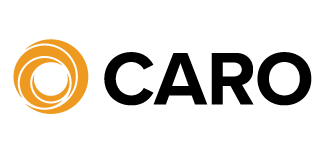

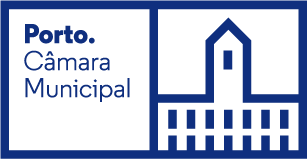
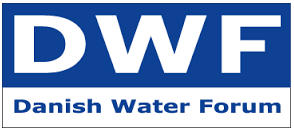
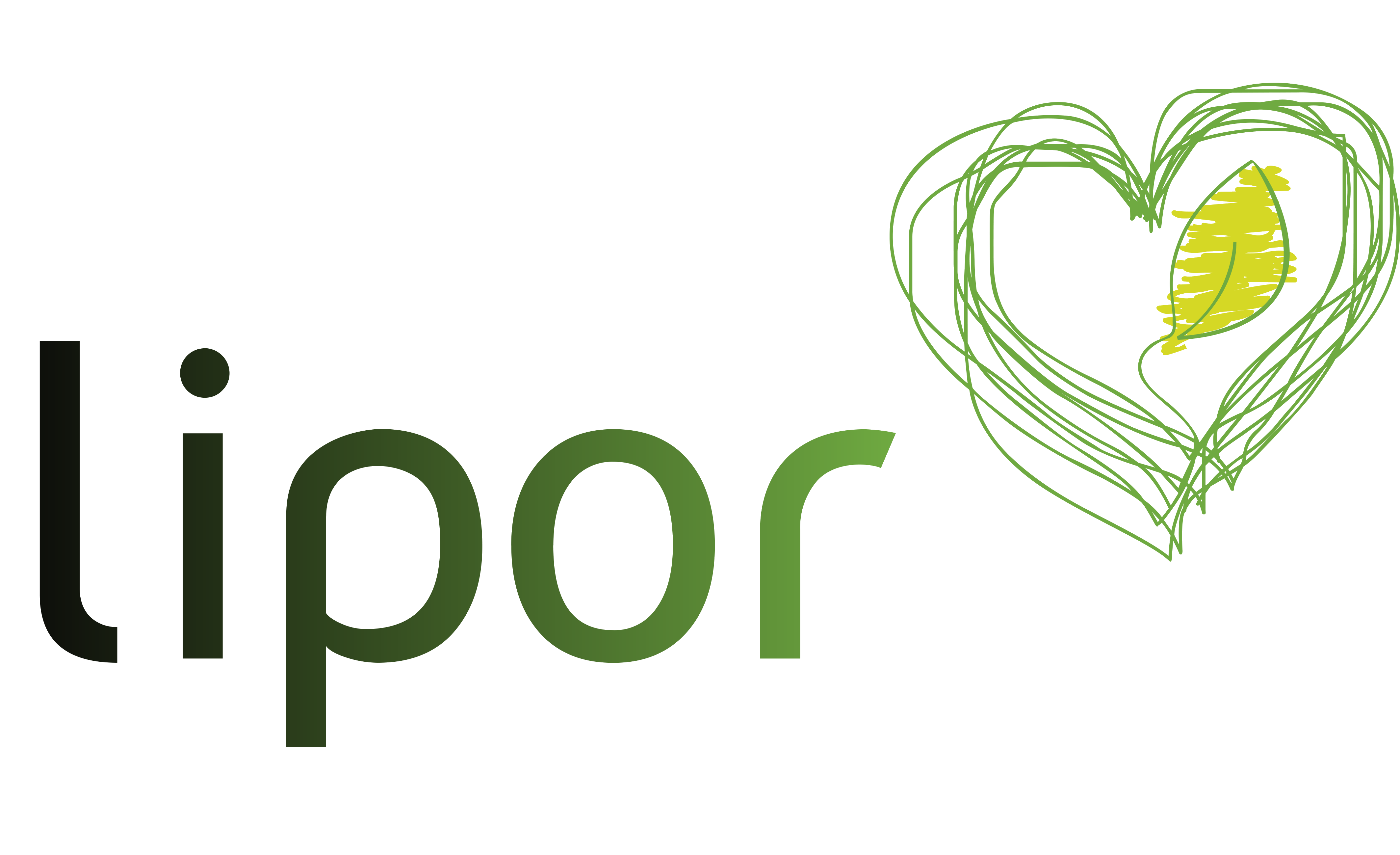
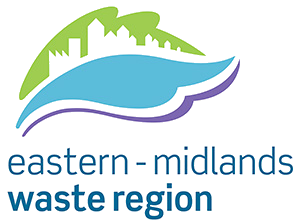
SUPPORT FROM EXTERNAL STAKEHOLDERS:
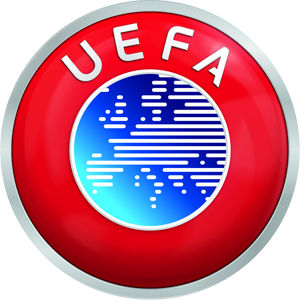
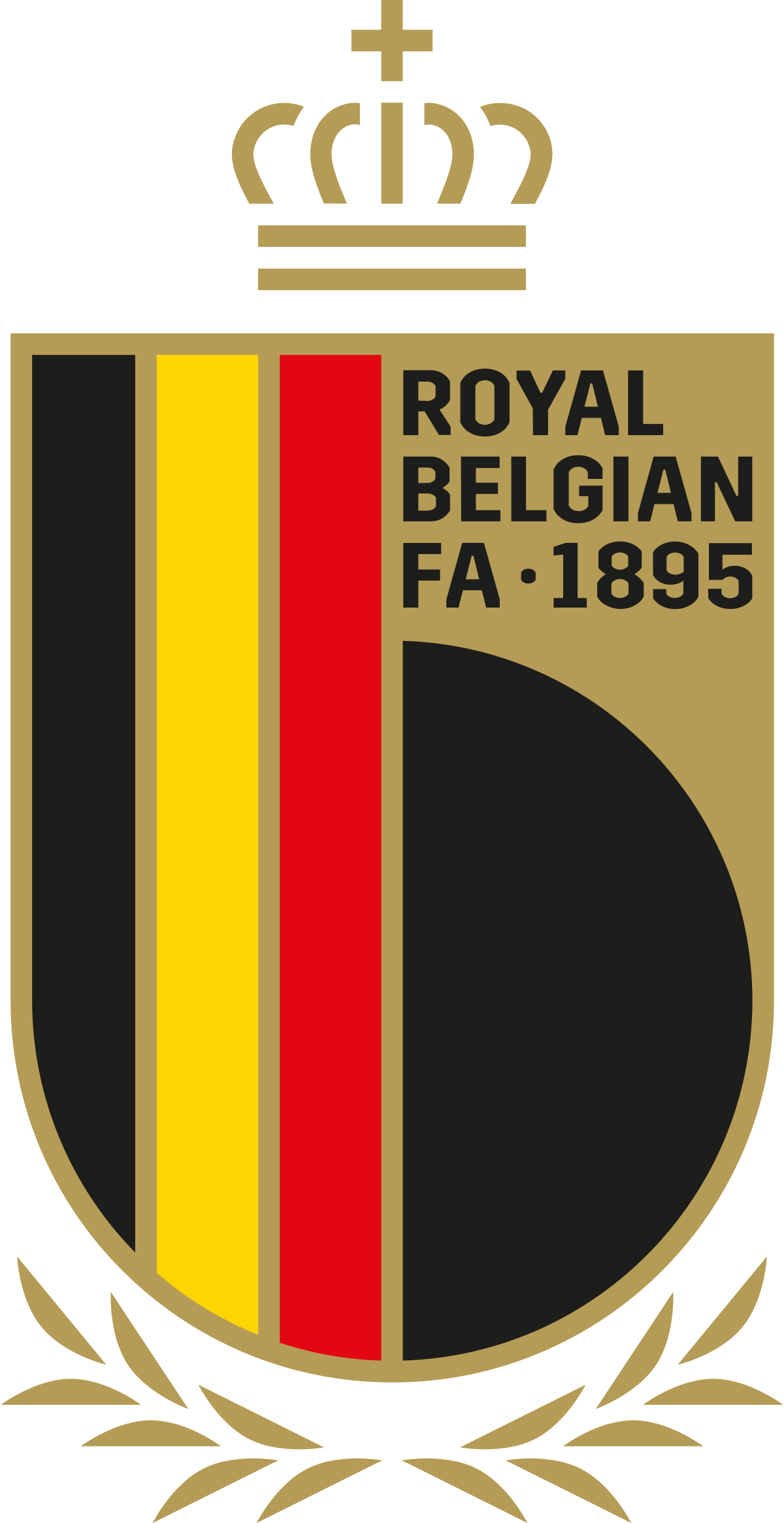

About us
The participating technical partners, namely ACR+ and the Sant’Anna School of Advanced Studies have a long running record in both working with sports organisations and local and regional authorities, as well as a various set of respective stakeholders. This experience comes from projects and initiatives which were addressing circular economy principles in various sectors such as tourism, sports, and heritage cities. While these technical partners bring their expertise in circular economy and environmental management principles, knowledge on examples of best practices and facilitation of cross-sectoral initiatives, the four sports organisations will open their doors to assessments, interviews, and identifications of relevant local and regional stakeholders.
Nonetheless, the fact that ACR has more than 100 members across Europe and beyond and that SSSA is present in numerous academic events and that the sports organisations gather sports clubs and regional offices across their countries opens a door to an extensive dissemination and replicability potential reaching out to the most remote areas.
The sports organisations brought on board were carefully selected. The underlying principle when creating the consortium was indeed addressing their relevance to the project’s objectives. The four sports organisations explicitly have environmental protection, sustainable development, and community support among their objectives, also reflected in their activities. The extent of these activities differs between the project partners and will allow the project to come up with deliverables addressing sport organisations with various degrees of knowledge, skills, and activities in place. By participating in this project, they would be brought to a level playing field. Meet the technical partners:
ACR+

ACR+ is an international network of cities and regions sharing the aim of promoting a sustainable resource management and accelerating the transition towards a circular economy on their territories and beyond. Circular economy calling for cooperation between all actors, ACR+ is open to other key players in the field of material resource management such as NGOs, academic institutions, consultancy or private organisations.
Sant’Anna School of Advanced Studies – Institute for Management

The Institute of Management is active in the field of management in the context of private and public organisations as support to a renewed entrepreneurship, in a synergetic perspective, among business, institutions and research. The Institute is the result of a long-term cultural project with particular reference to the management of innovation, sustainability and health.
Gaelic Athletic Association

The Gaelic Athletic Association is an Irish international amateur sporting and cultural organisation, focused primarily on promoting indigenous Gaelic games and pastimes, which include the traditional Irish sports of hurling, camogie, Gaelic football, Gaelic handball and rounders. The association also promotes Irish music and dance, as well as the Irish language. Since its foundation in 1884, the association has grown to become a major influence in Irish sporting and cultural life, with considerable reach into communities throughout Ireland and among the Irish diaspora.
Football Association of Denmark

The Danish Football Union is the governing body of football in Denmark. It is the organisation of the Danish football clubs and runs the professional Danish football leagues and the men’s and women’s national teams. It is based in the city of Brøndby and is a founding member of both FIFA and UEFA. The DBU has also been the governing body of futsal in Denmark since 2008. The DBU was founded on 18 May 1889 and was the first national football association outside Great Britain and Ireland
FC Porto

Futebol Clube do Porto, commonly known as FC Porto or simply Porto, is a Portuguese professional sports club based in Porto. It is best known for the professional football team playing in the Primeira Liga, the top flight of Portuguese football. Founded in 1893, Porto is one of the "Big Three" teams in Portugal – together with Lisbon-based rivals Benfica and Sporting CP, that have appeared in every season of the Primeira Liga since its establishment in 193
Football Association of Wales

The Football Association of Wales is the governing body of association football and futsal in Wales, and controls the Welsh national football team, its corresponding women's team, as well as the Welsh national futsal team. It is a member of FIFA, UEFA and the IFAB. Established in 1876, it is the third-oldest national association in the world, and one of the four associations, along with the English Football Association, Scottish Football Association, Irish Football Association and FIFA, that make up the International Football Association Board, responsible for the Laws of the Game.
Project
The ACCESS project is one of the latest advanced European projects which explore the world of environmental sustainability and environmental management in sports. Funded by the European Union’s Erasmus+ programme, ACCESS is looking at narrowing the gap between the current environmental performances of sport clubs and associations, their strategies, and practices on one side and on the other side – strategies and targets of the respective cities or regions they are located in and where their activities are taking place.
While many cities and regions in Europe are following the European wide pattern of adopting required strategies that would enhance and deploy various European policies and frameworks locally regarding waste, water, energy, mobility and other fields, their successful implementation or uptake among sports organisations is often limited and requires additional efforts to be achieved. This project will address these key challenges and turn them into enabling actions which will drive the application of circular economy solutions to sports forward. The project wants to promote innovative and replicable circular economy solutions among sports organisations as well as their cooperation and synergies with local and regional authorities which would contribute to achieving circular cities.
This is why this project aims at bringing together those responsible for organising sport events and local and regional authorities who are on the frontline of implementing European and national policies as the most competent bodies. The project wants to enable and support a transfer of knowledge, skills and competences in the field of environmental management, circular economy and sustainable development onto sports organisations and allow them to develop their own knowledge base and ultimately – strategies, initiatives, road maps and action plans aligned and contributing to their respective local and regional authorities’ efforts.







